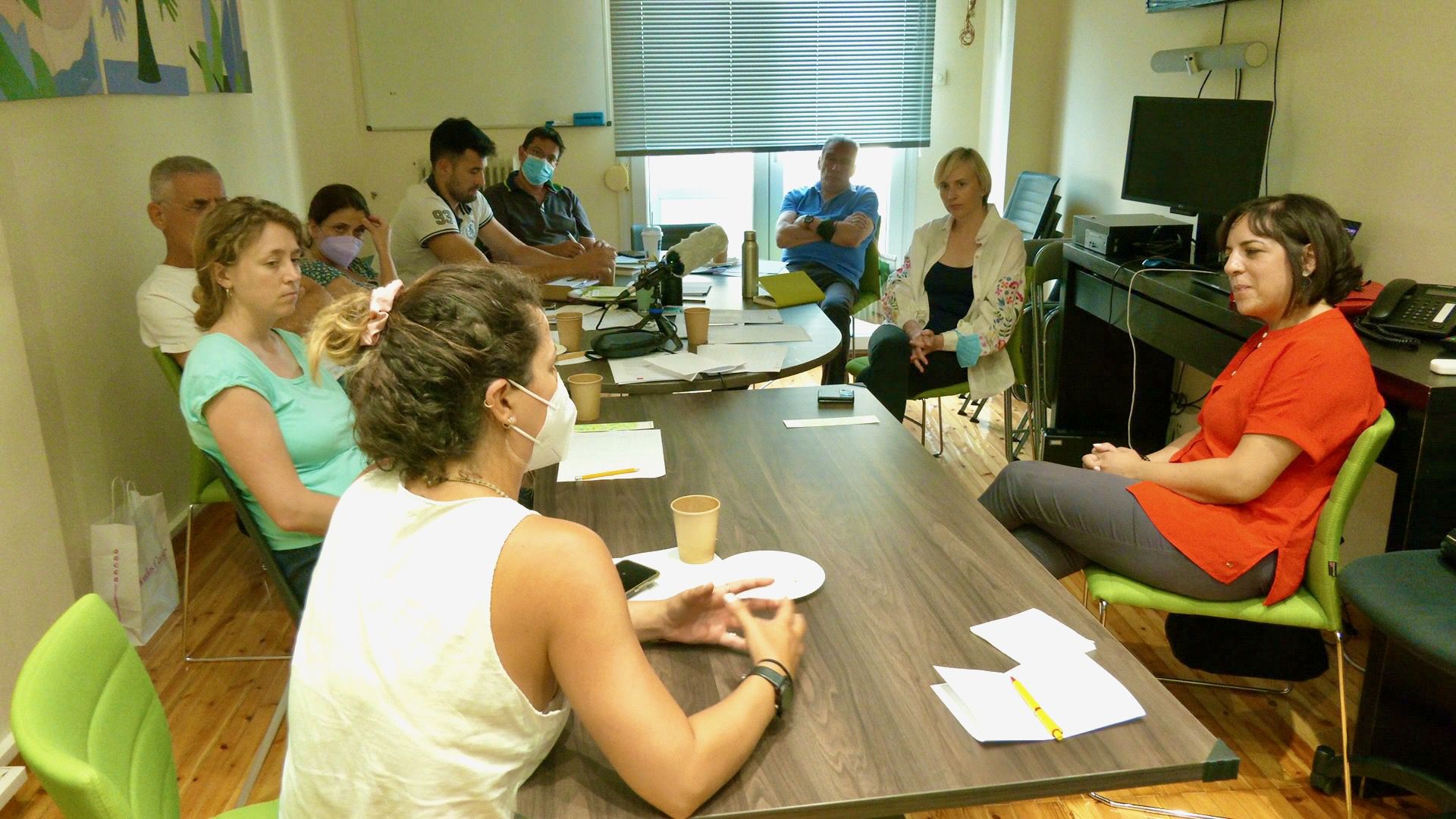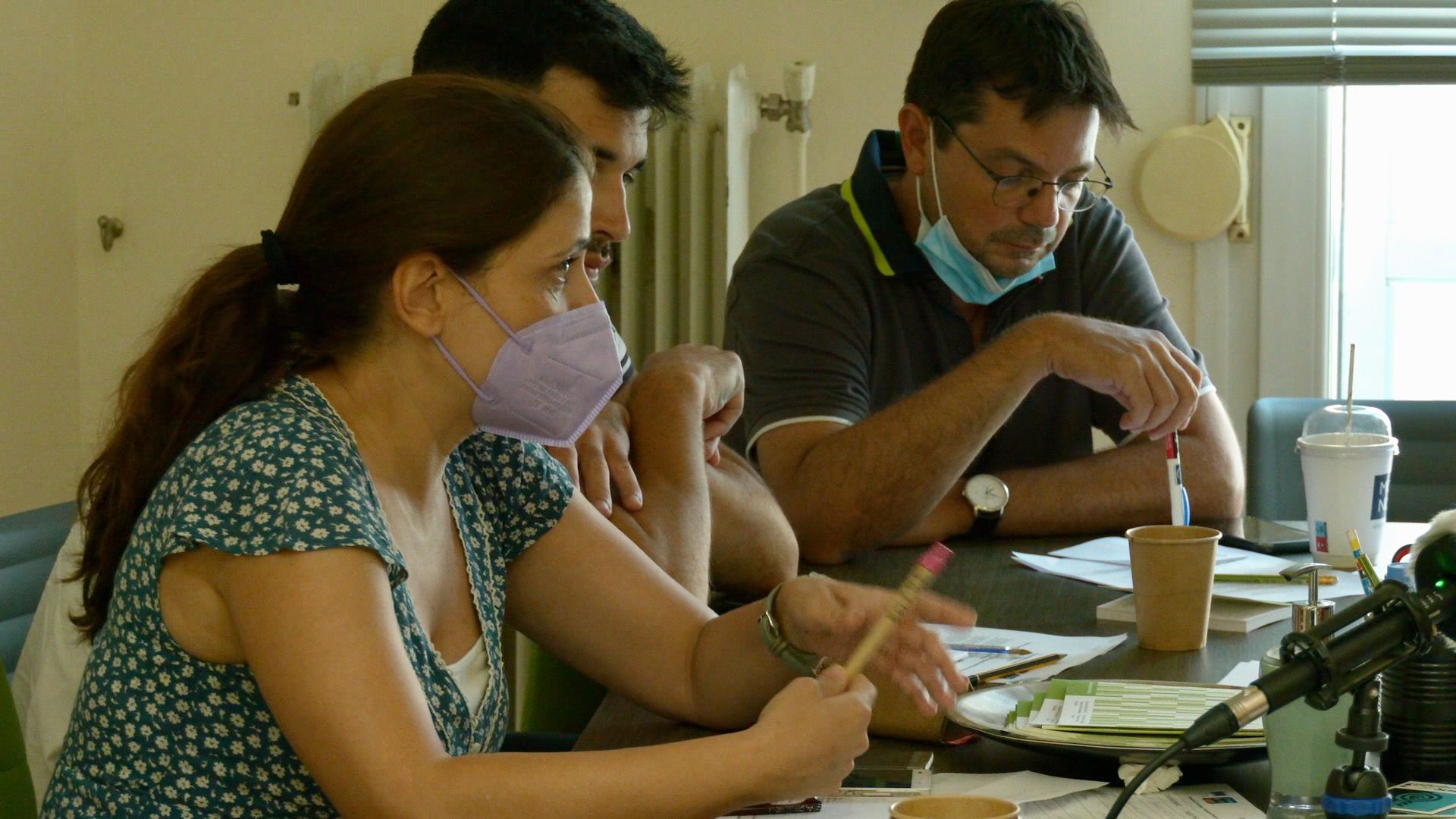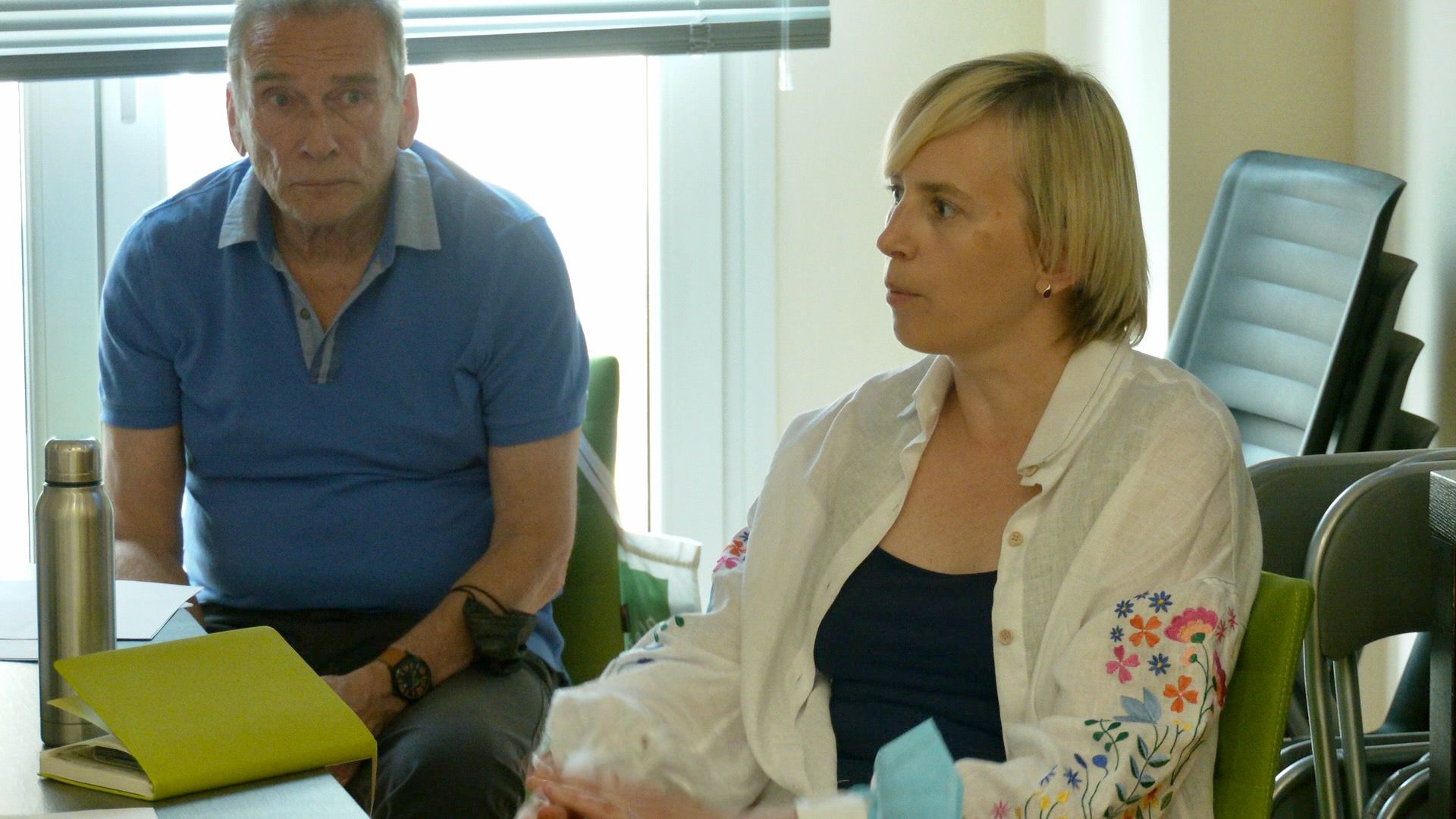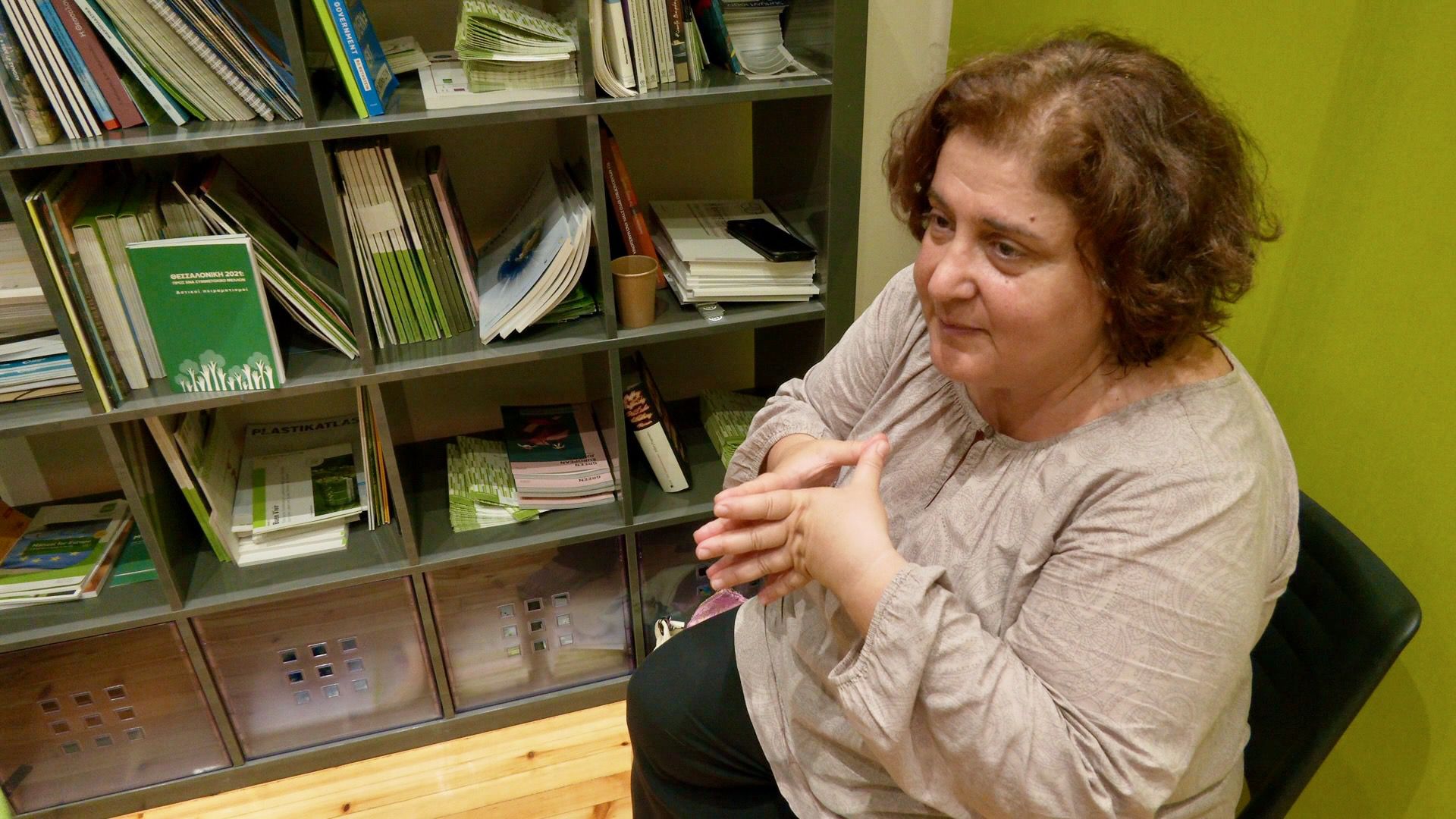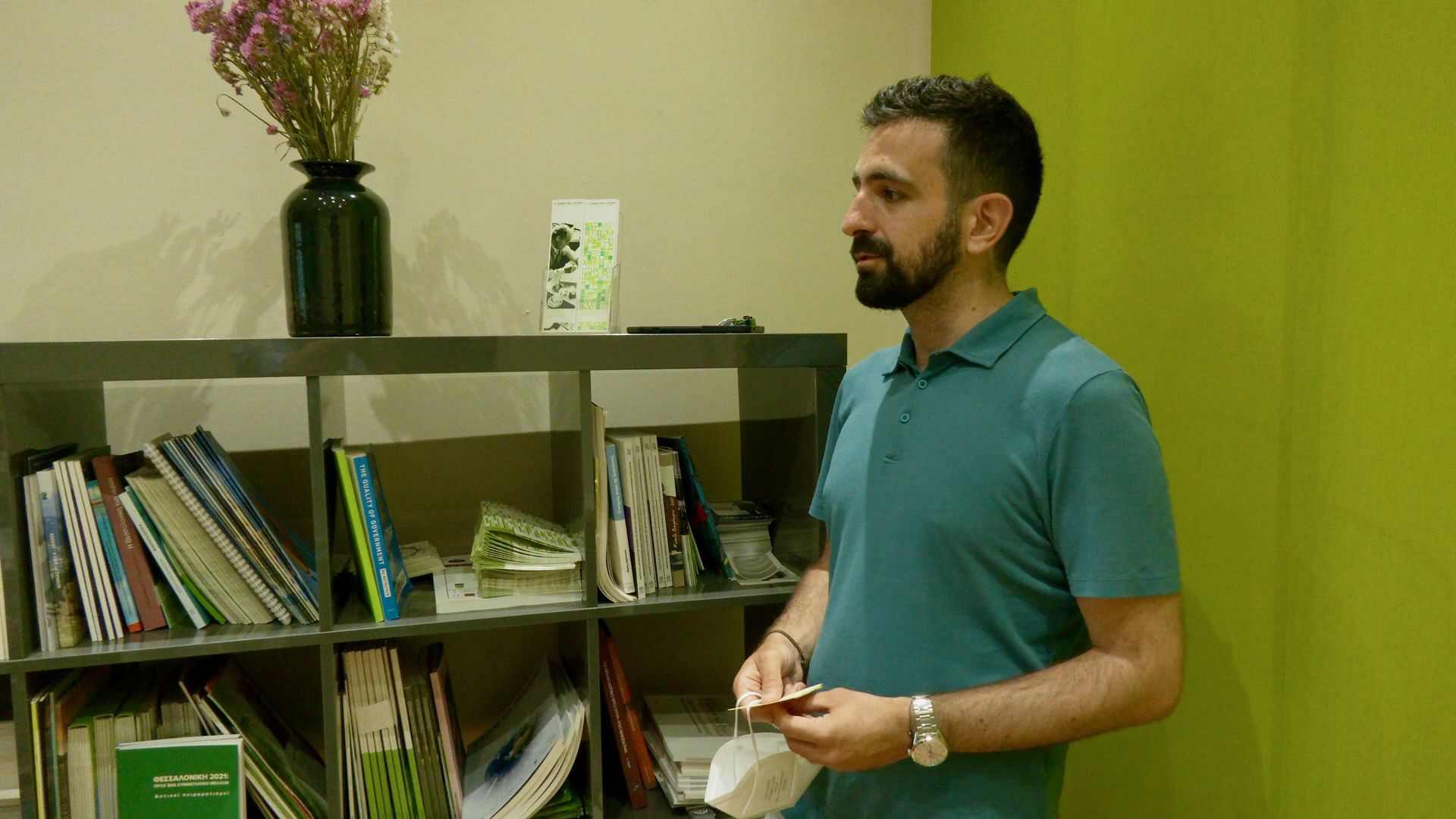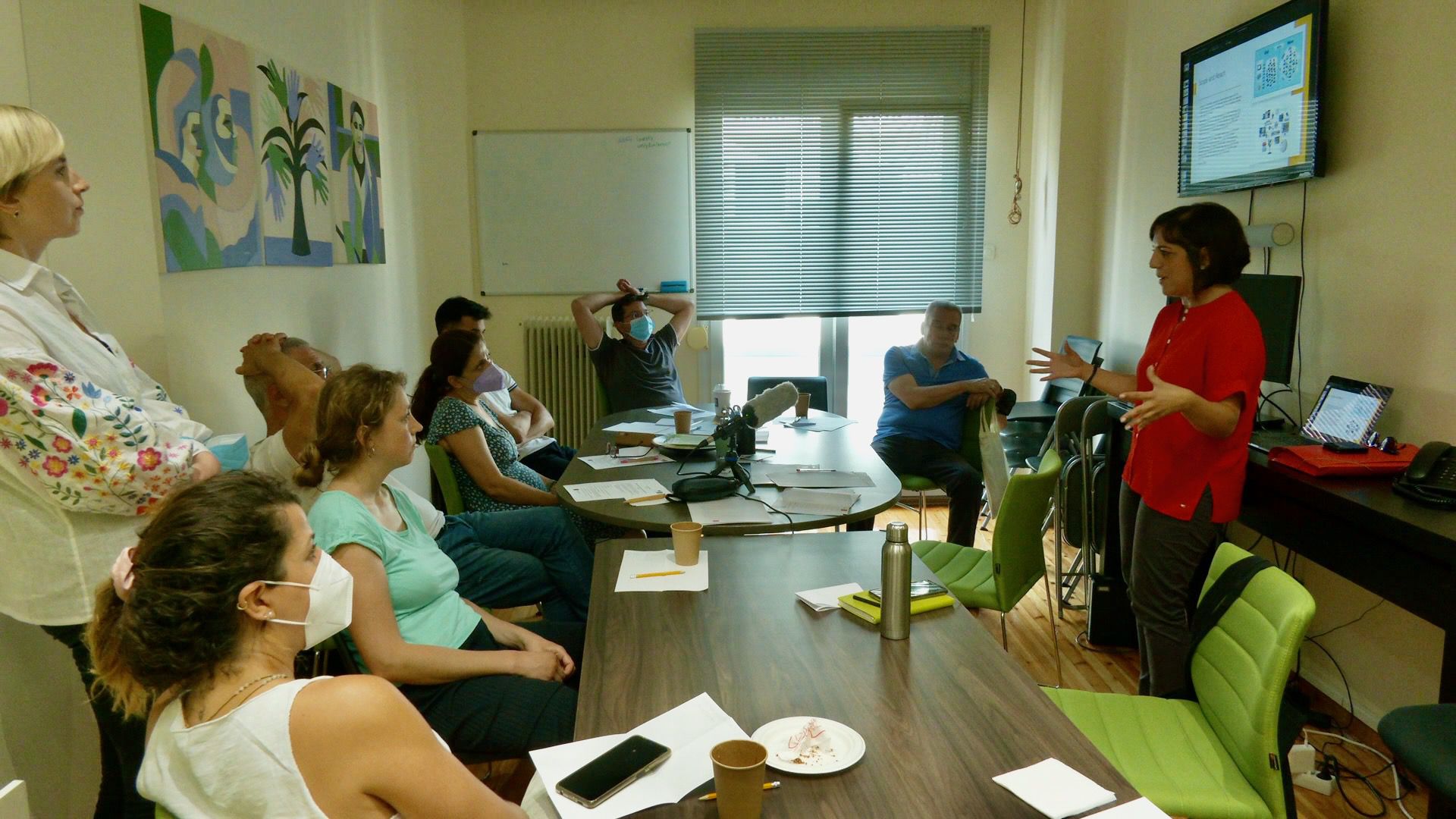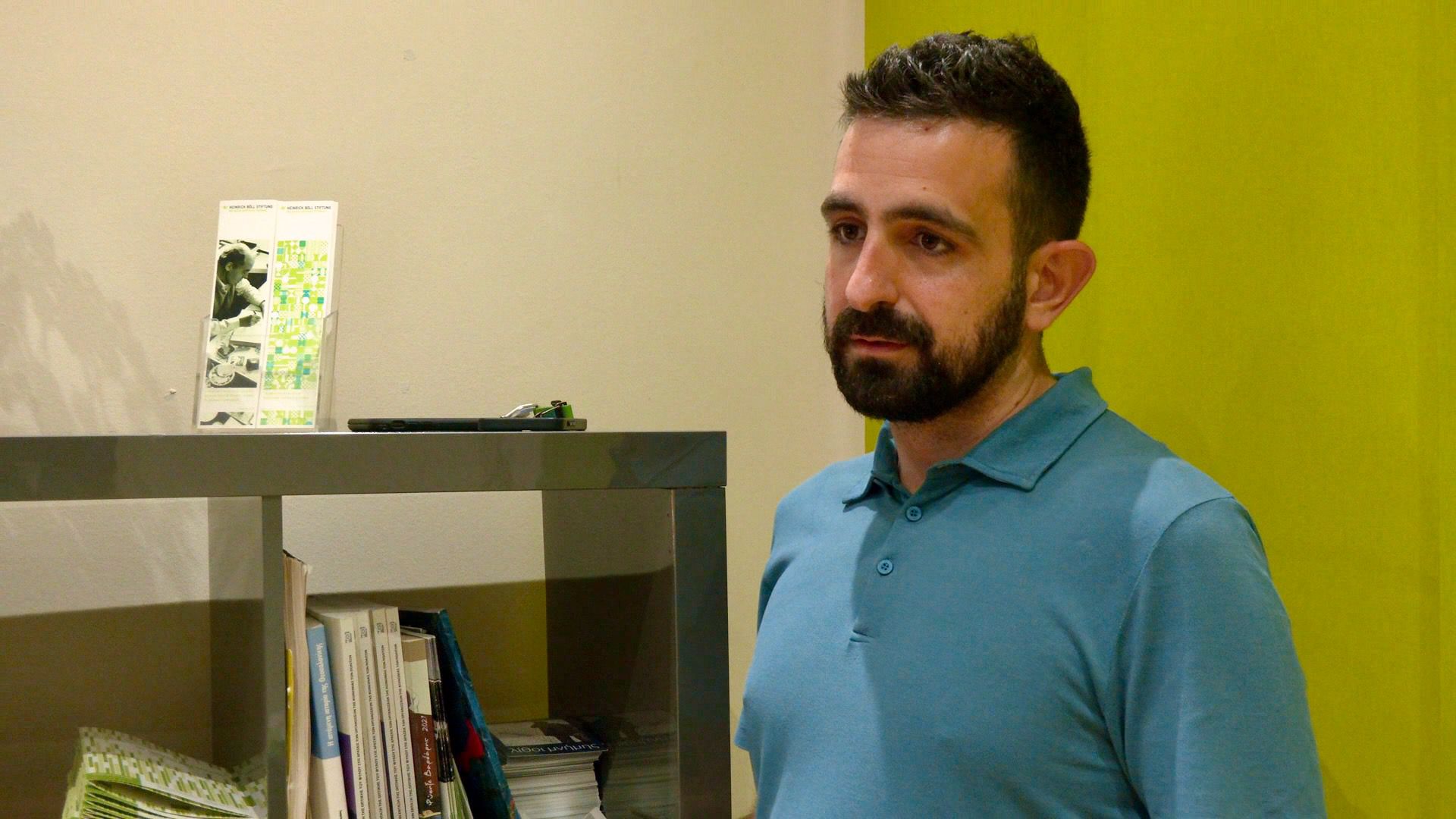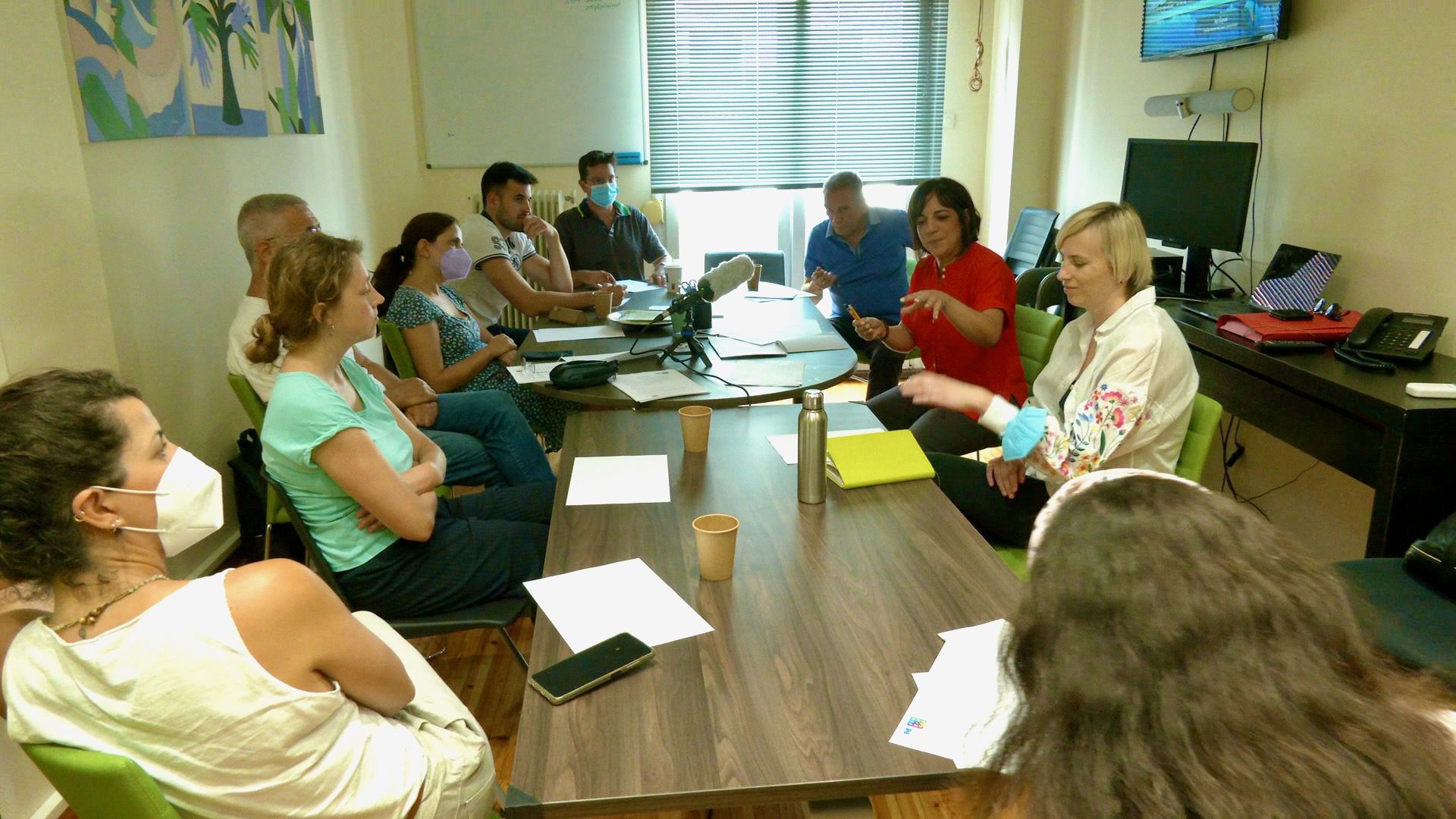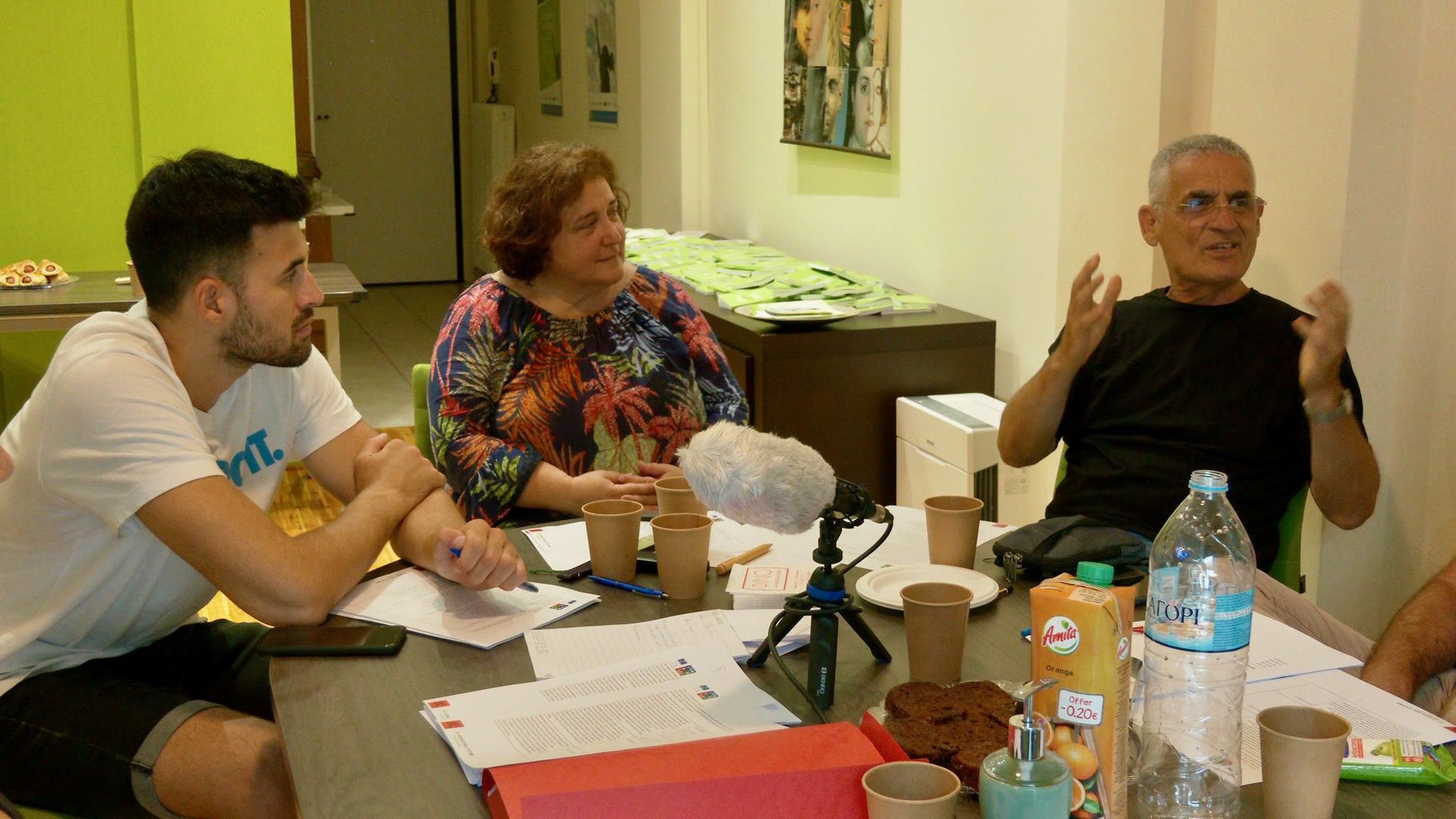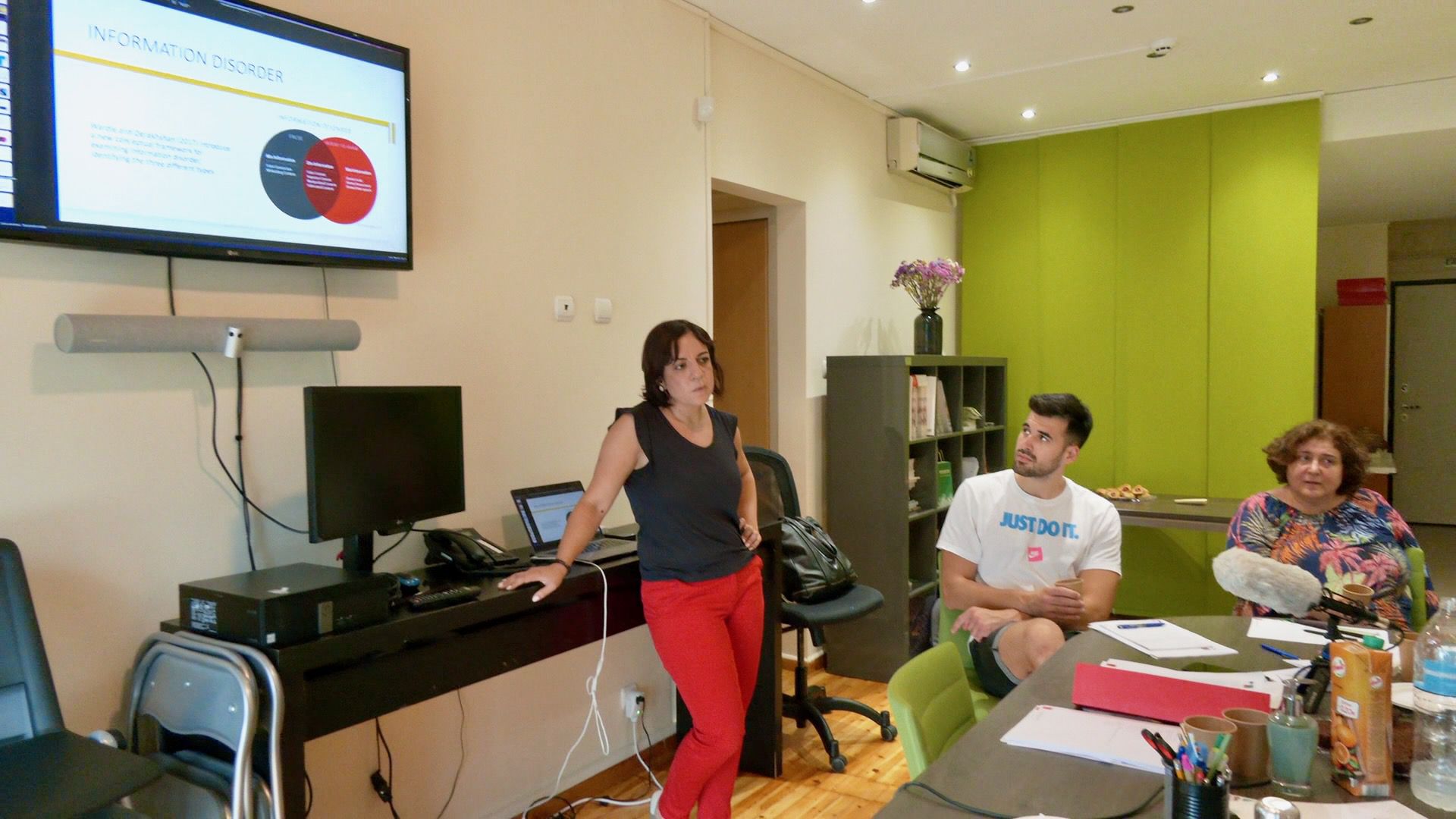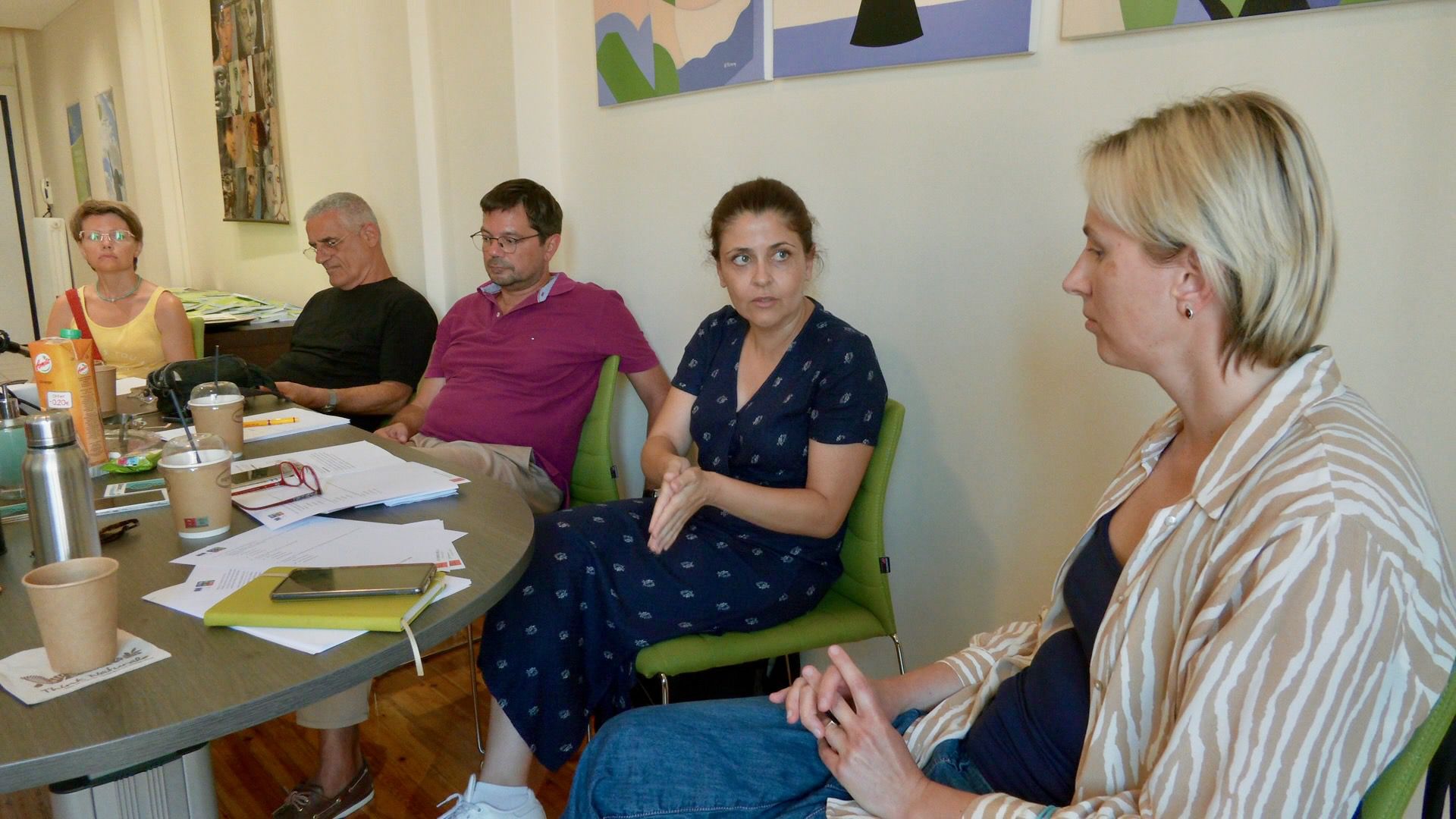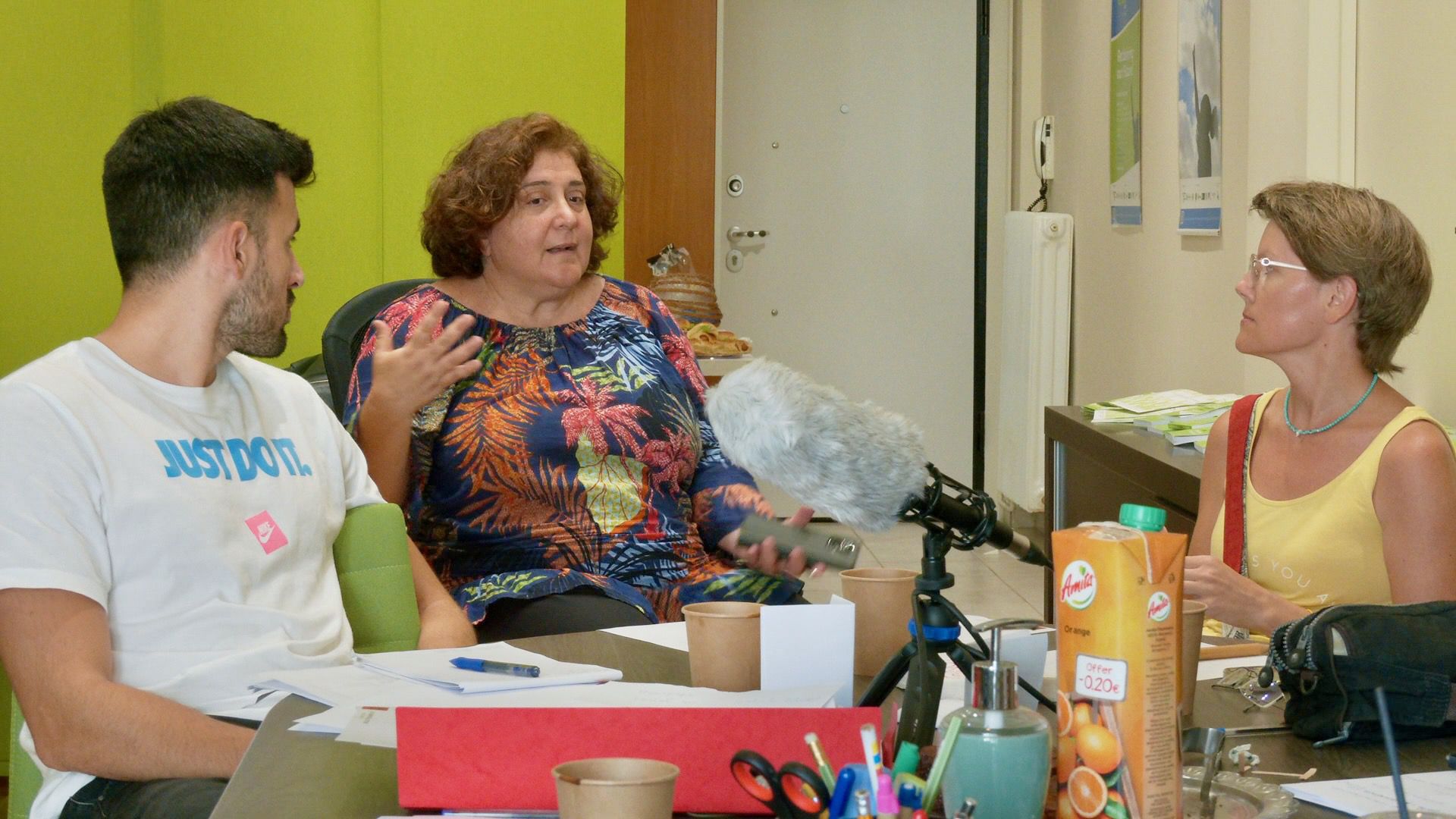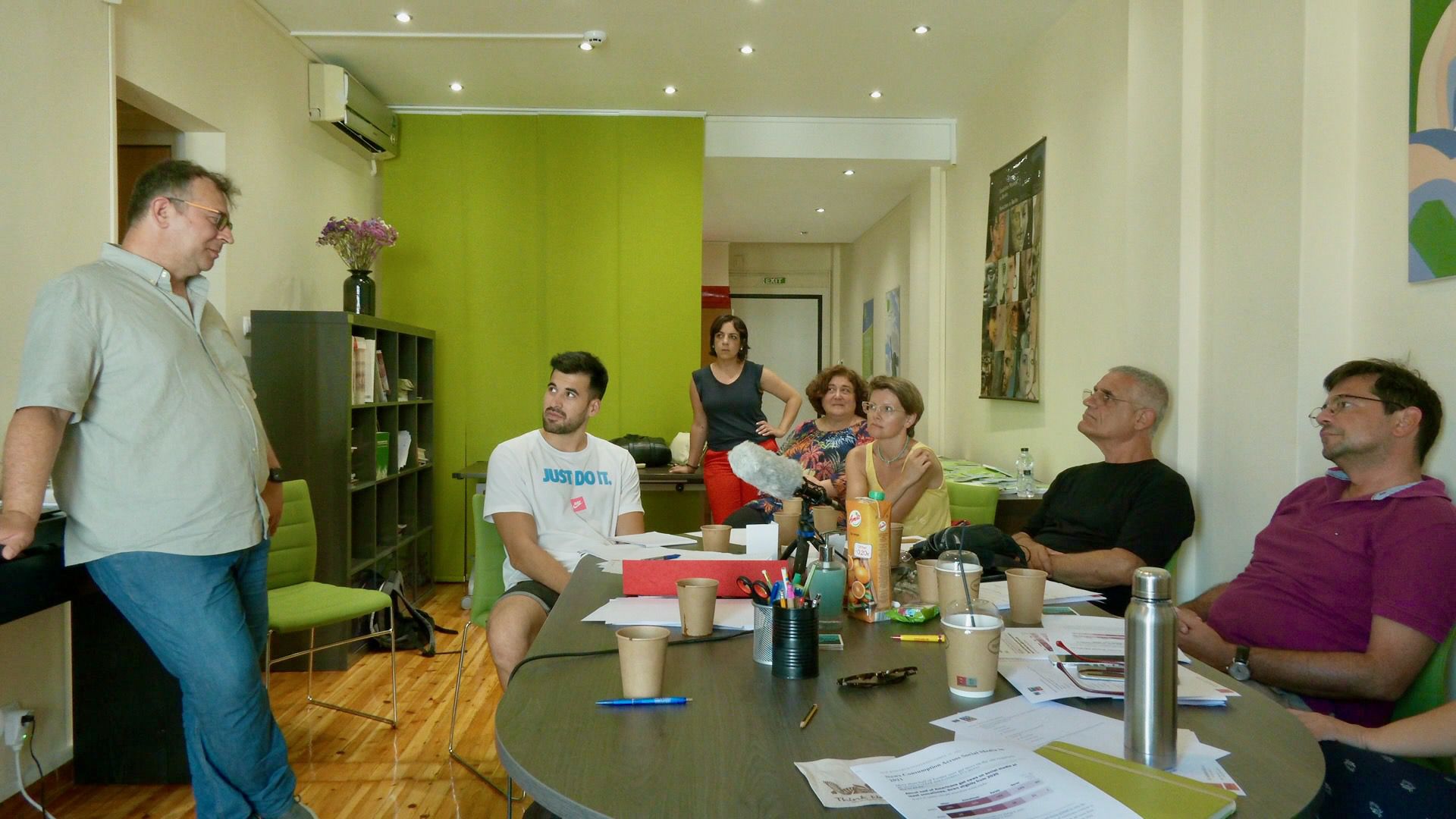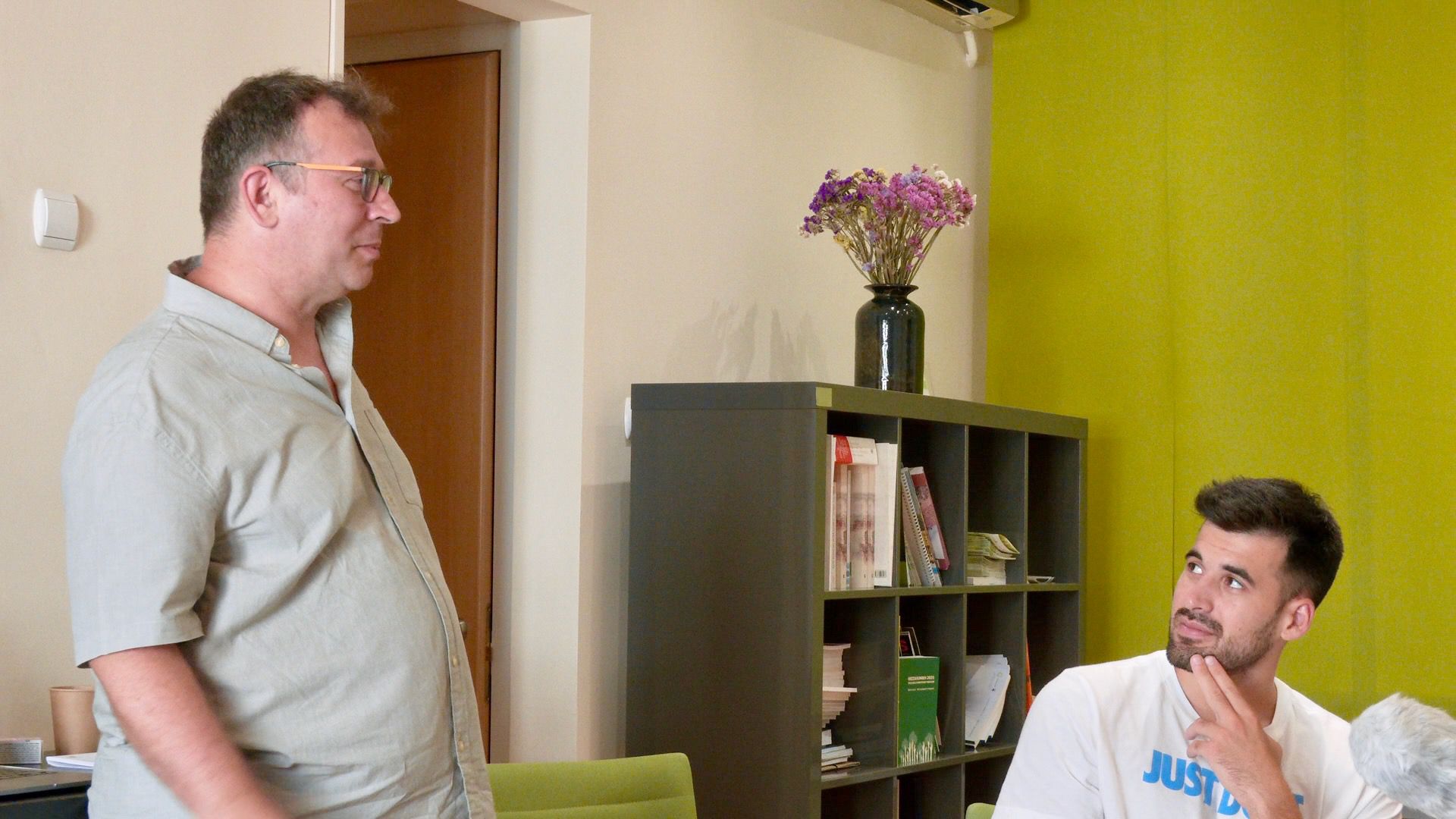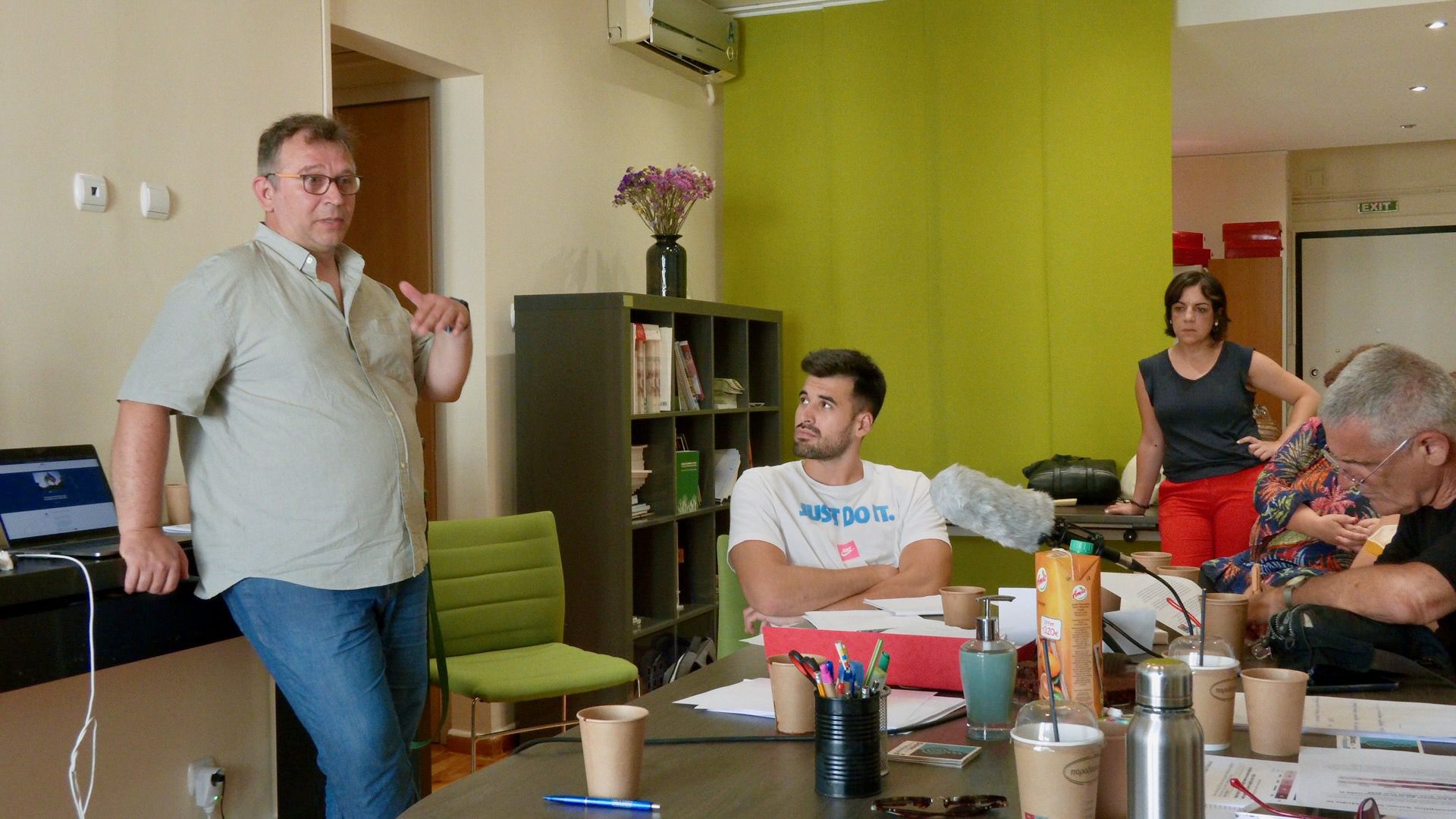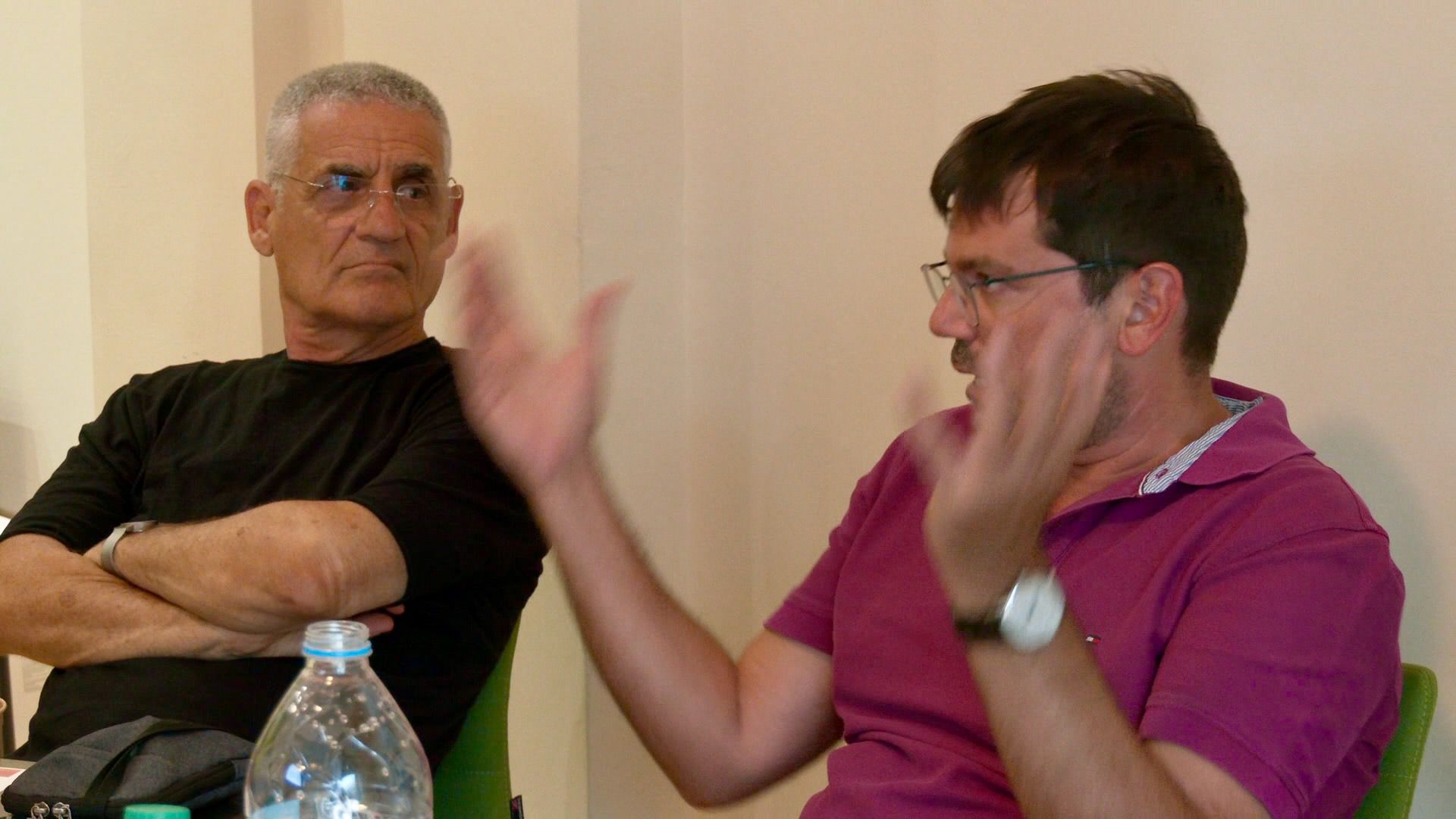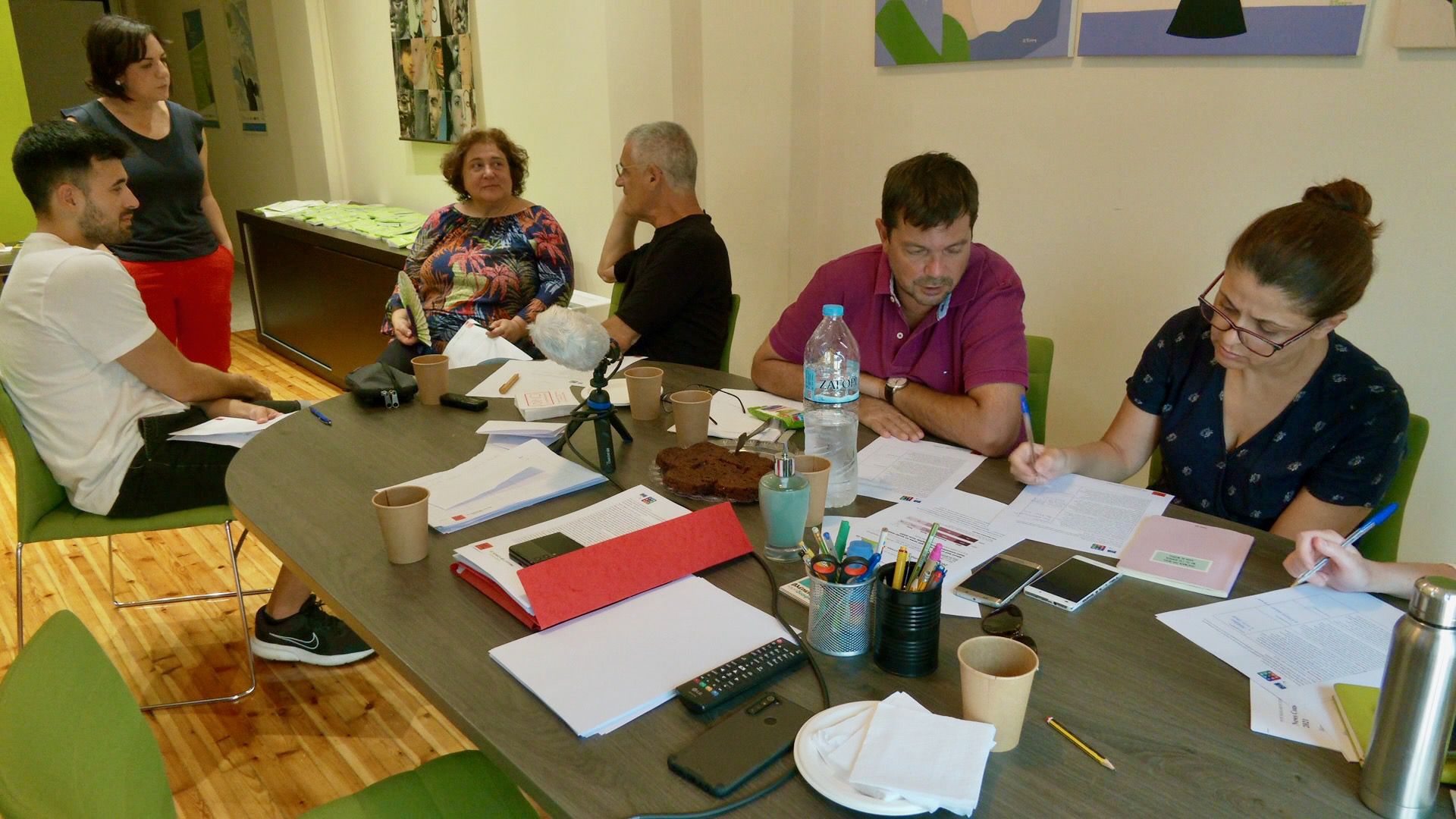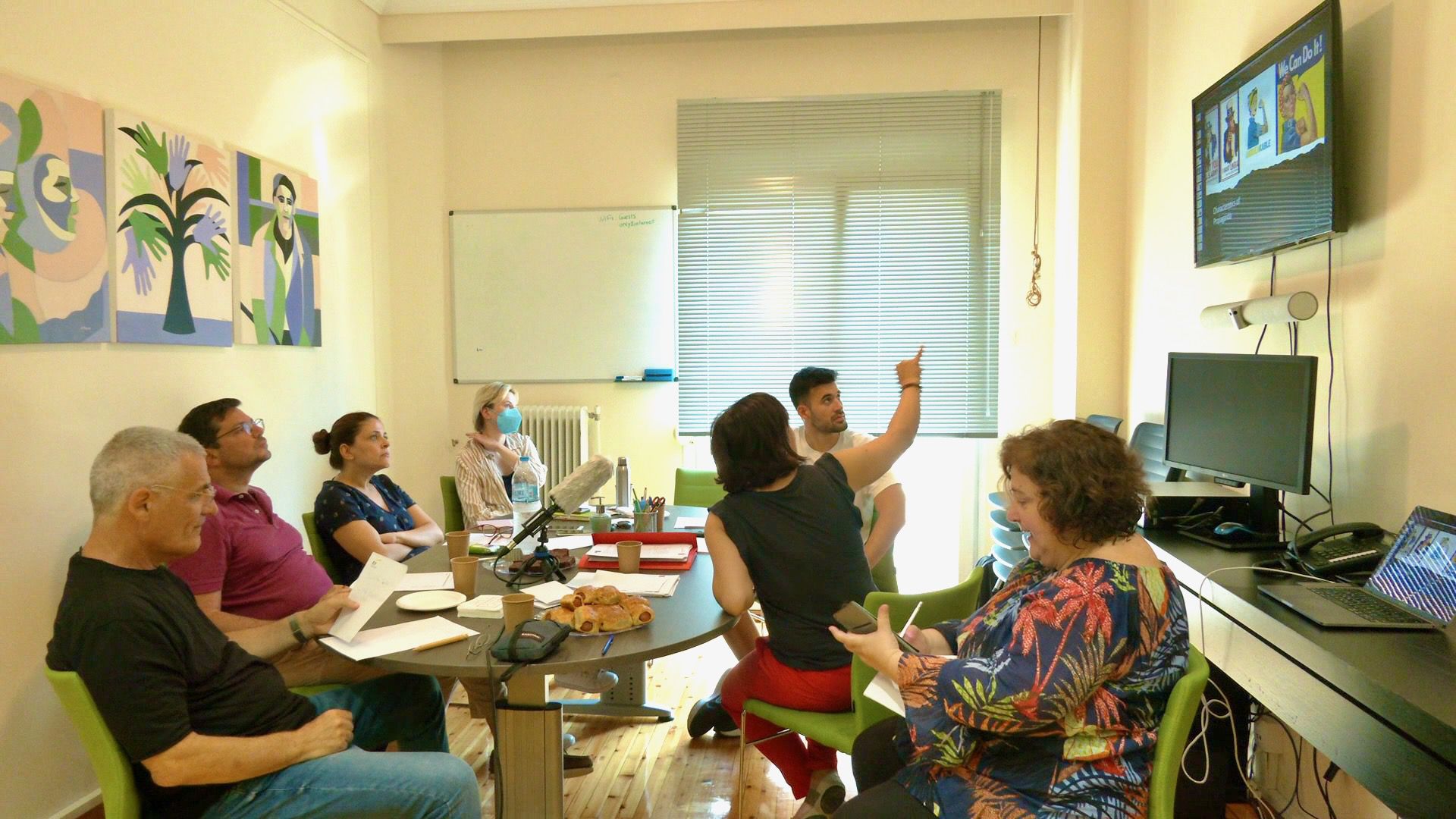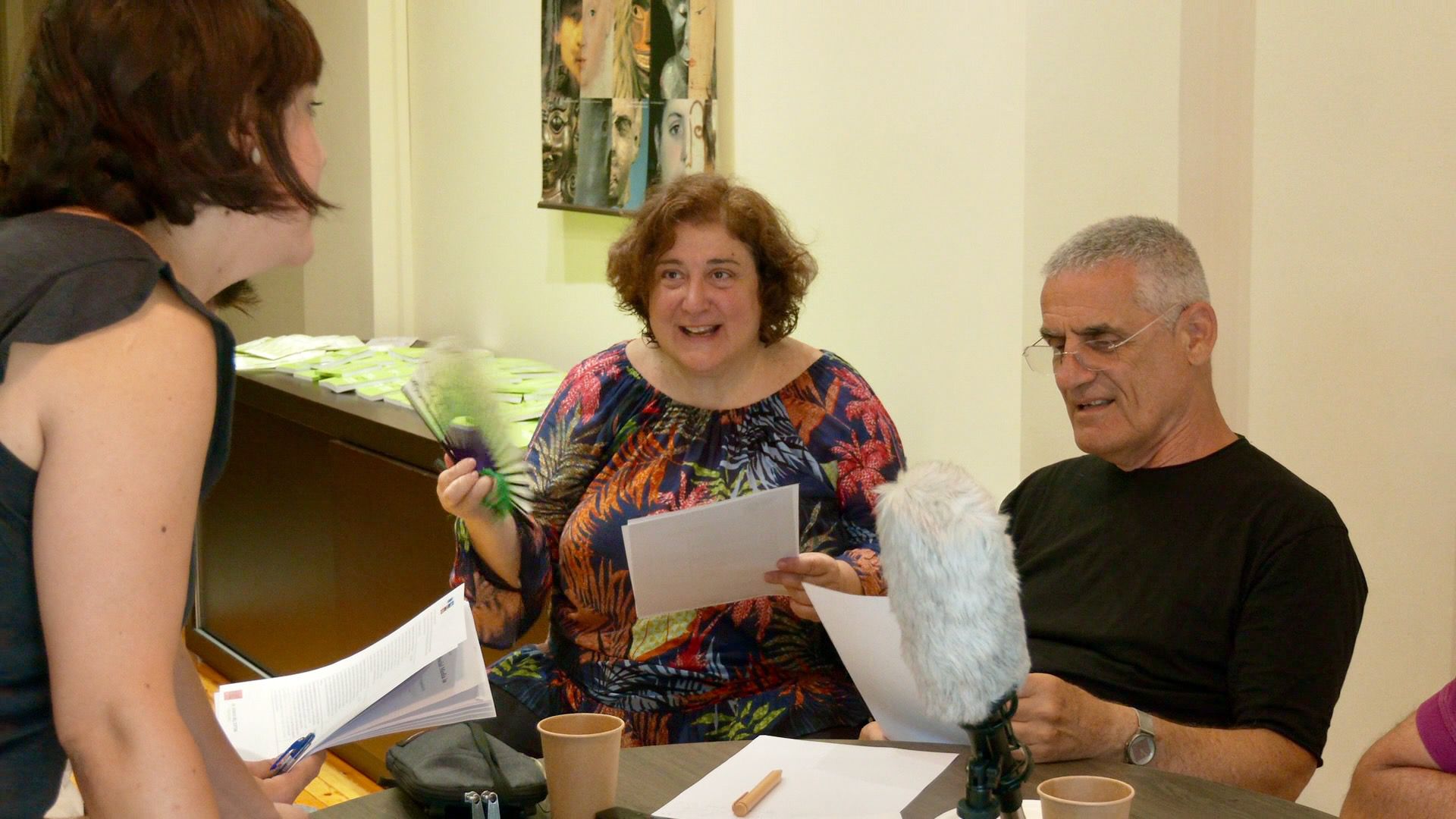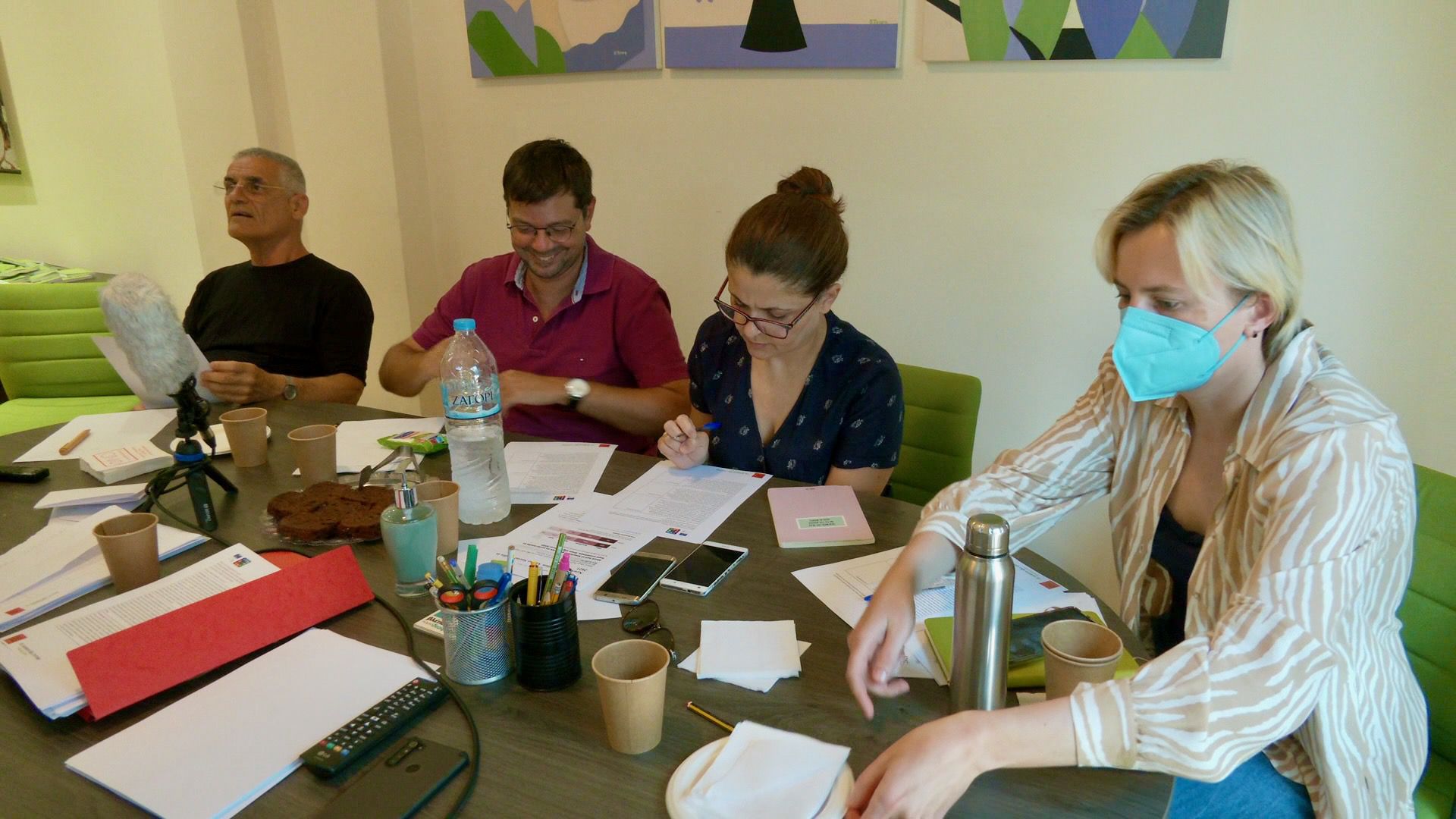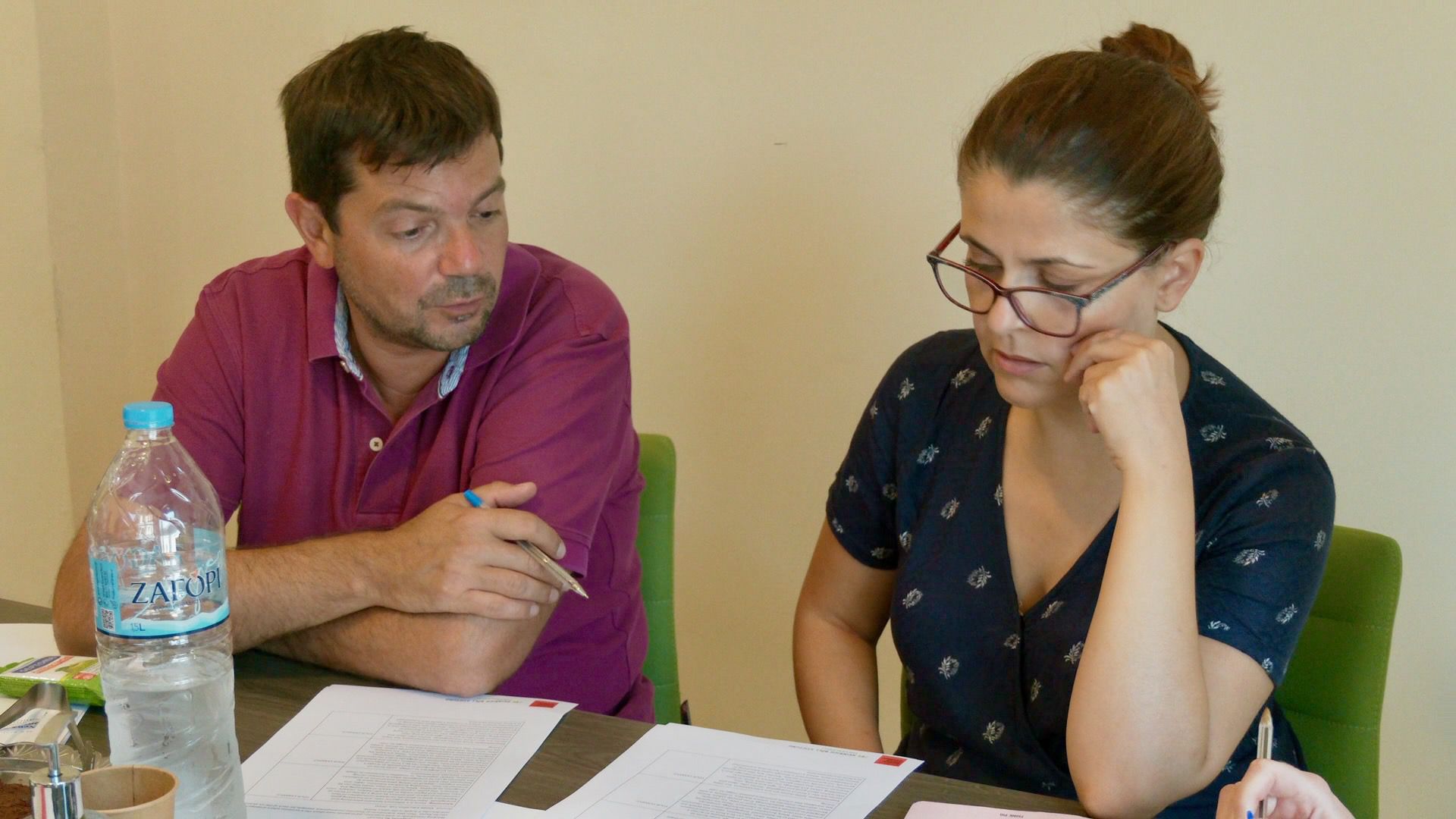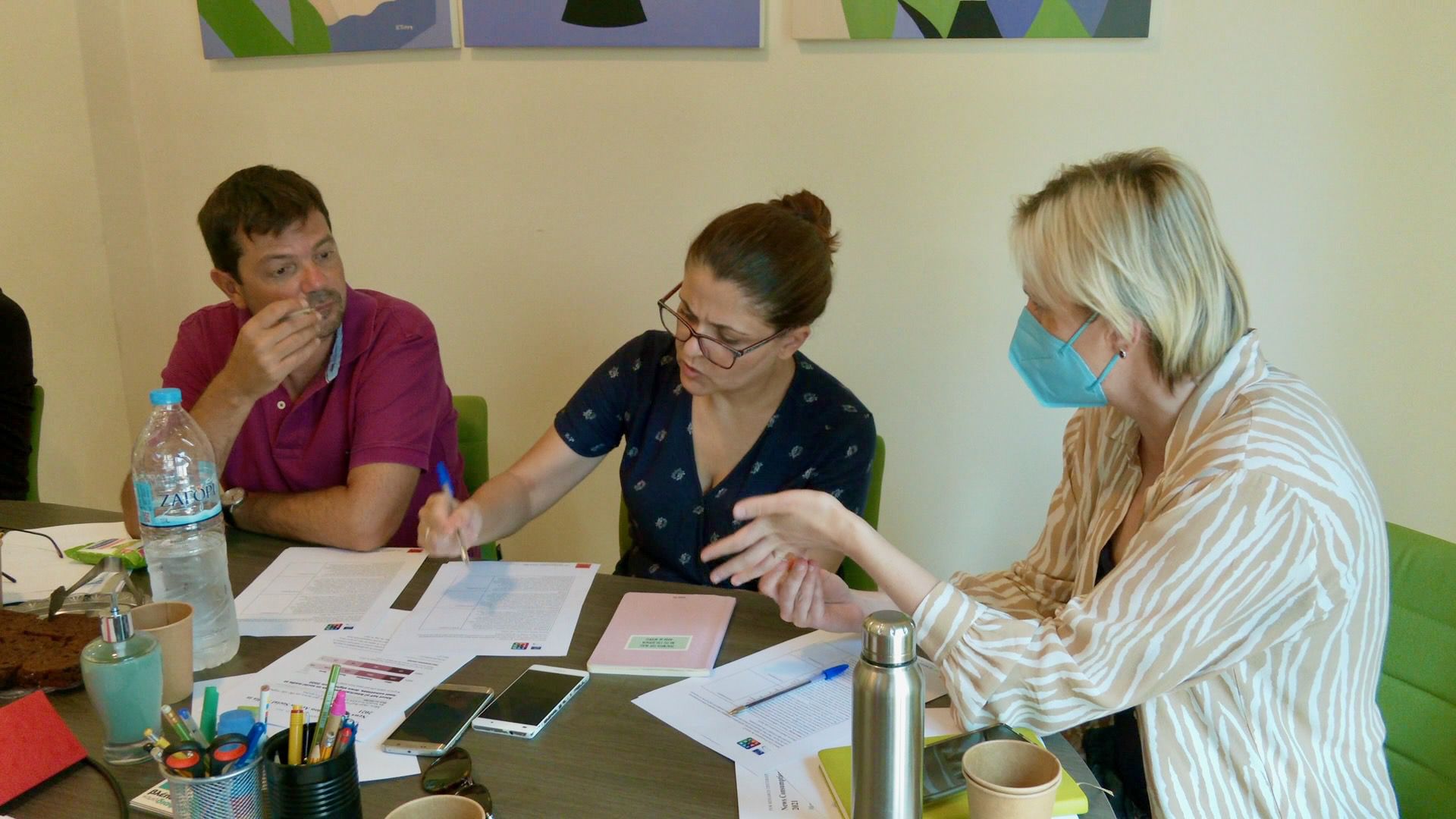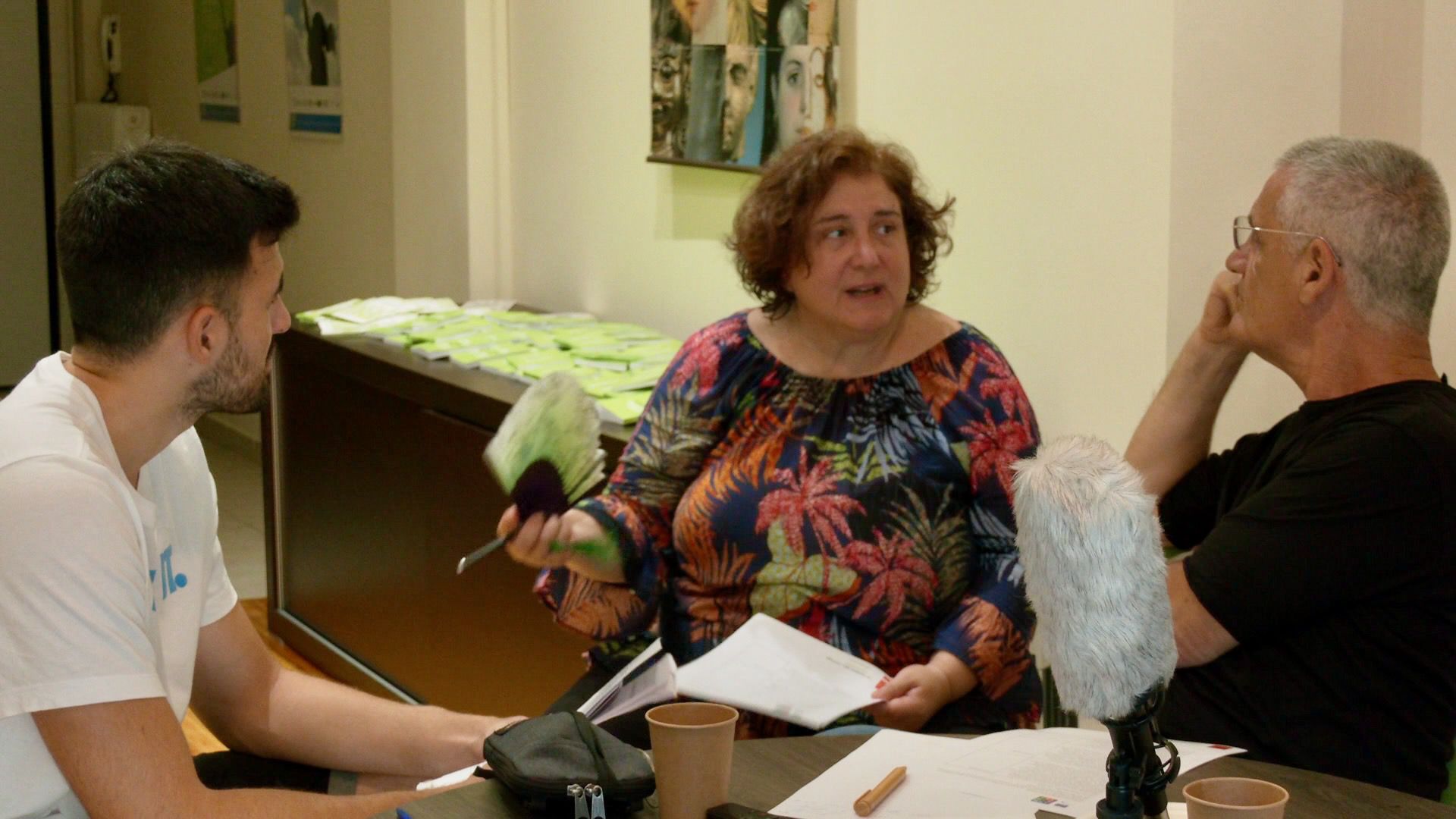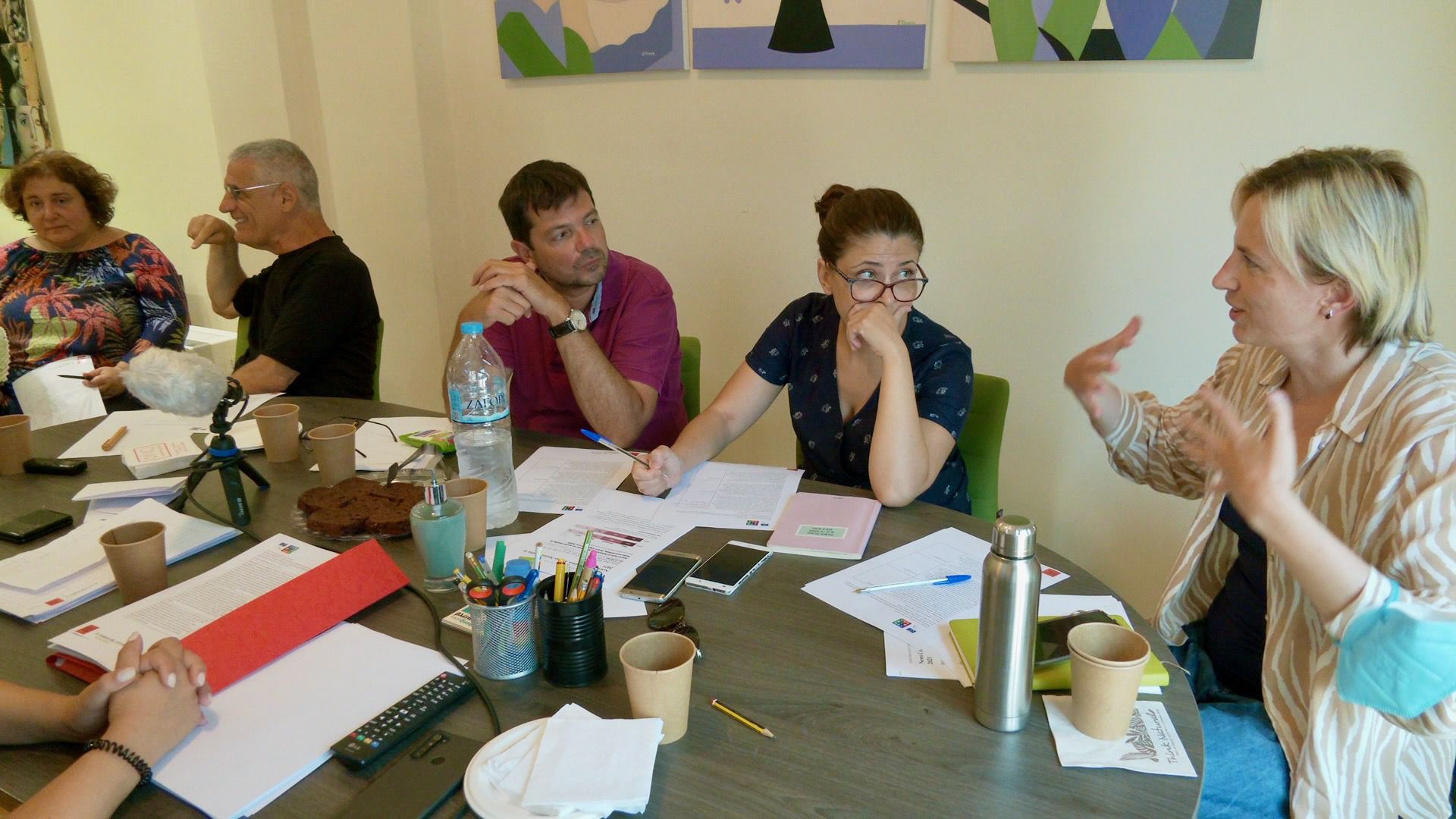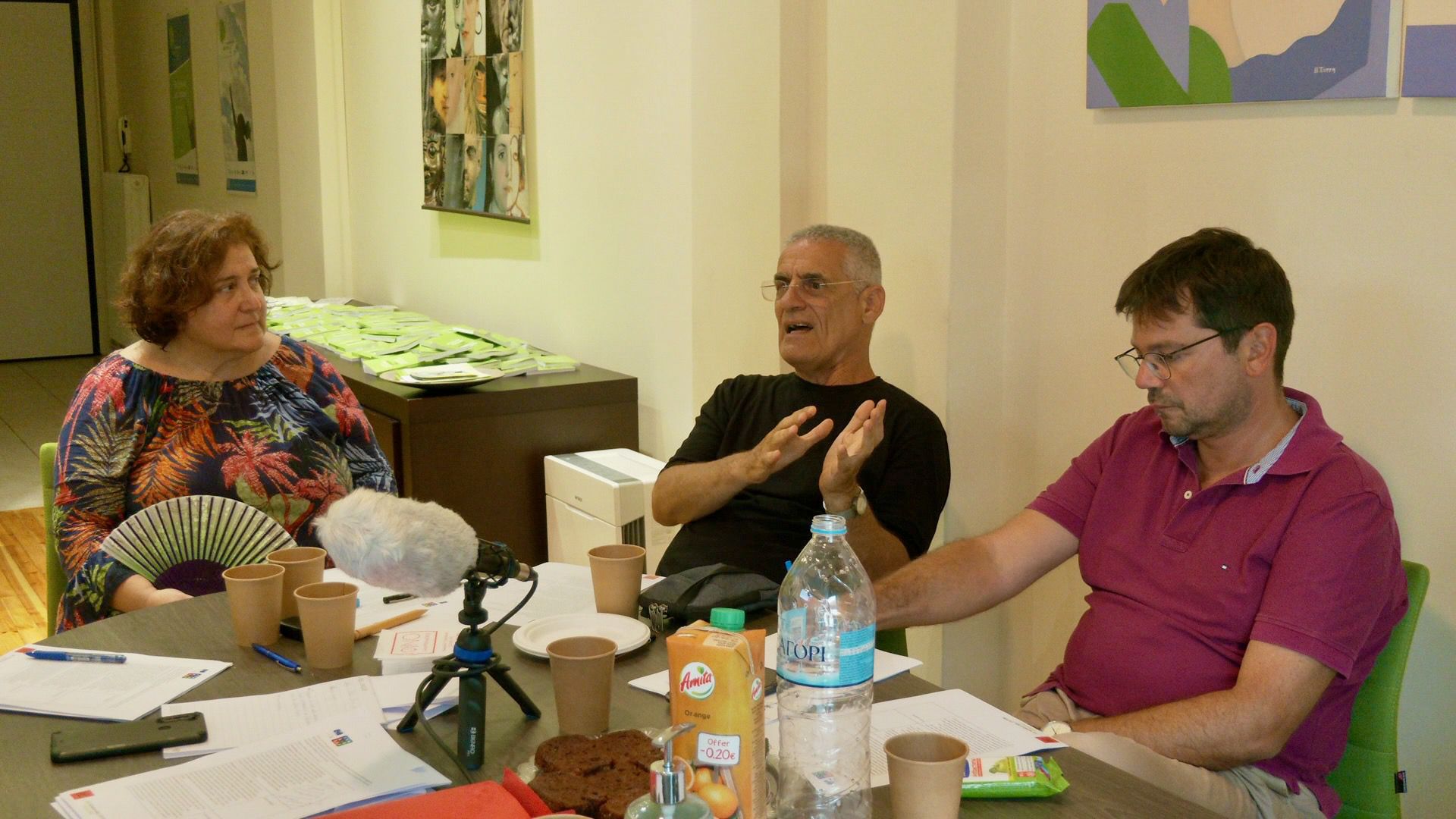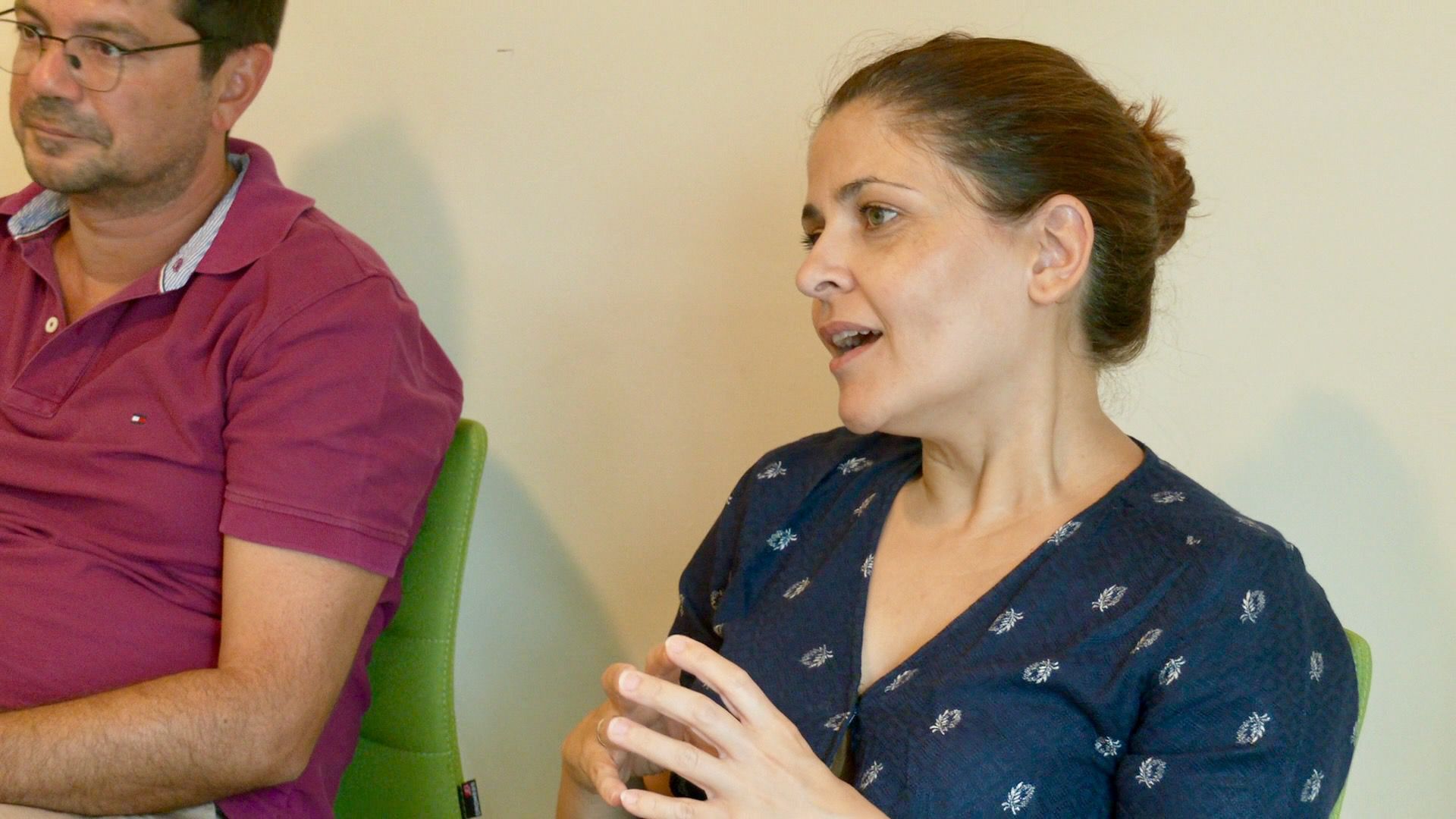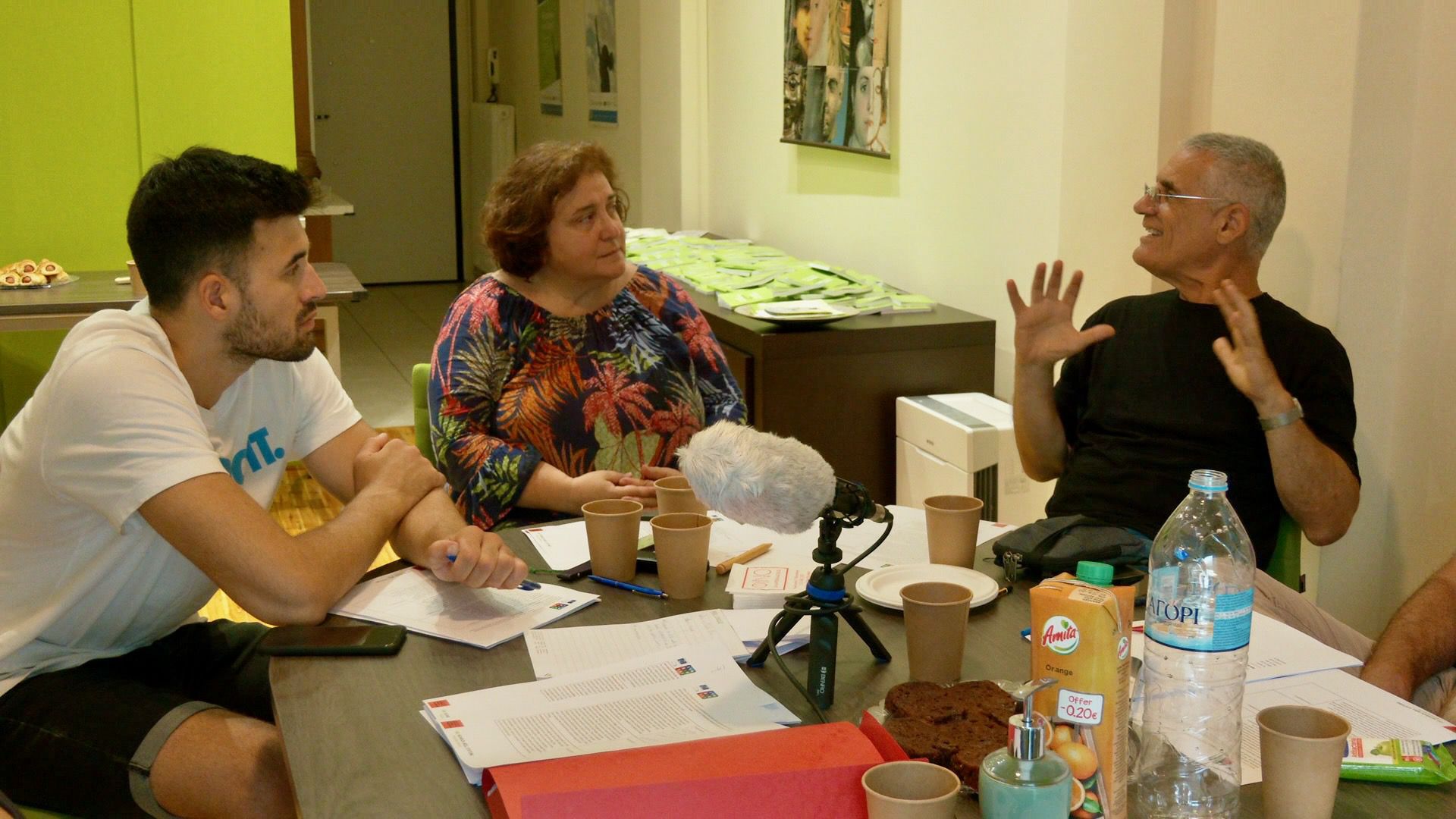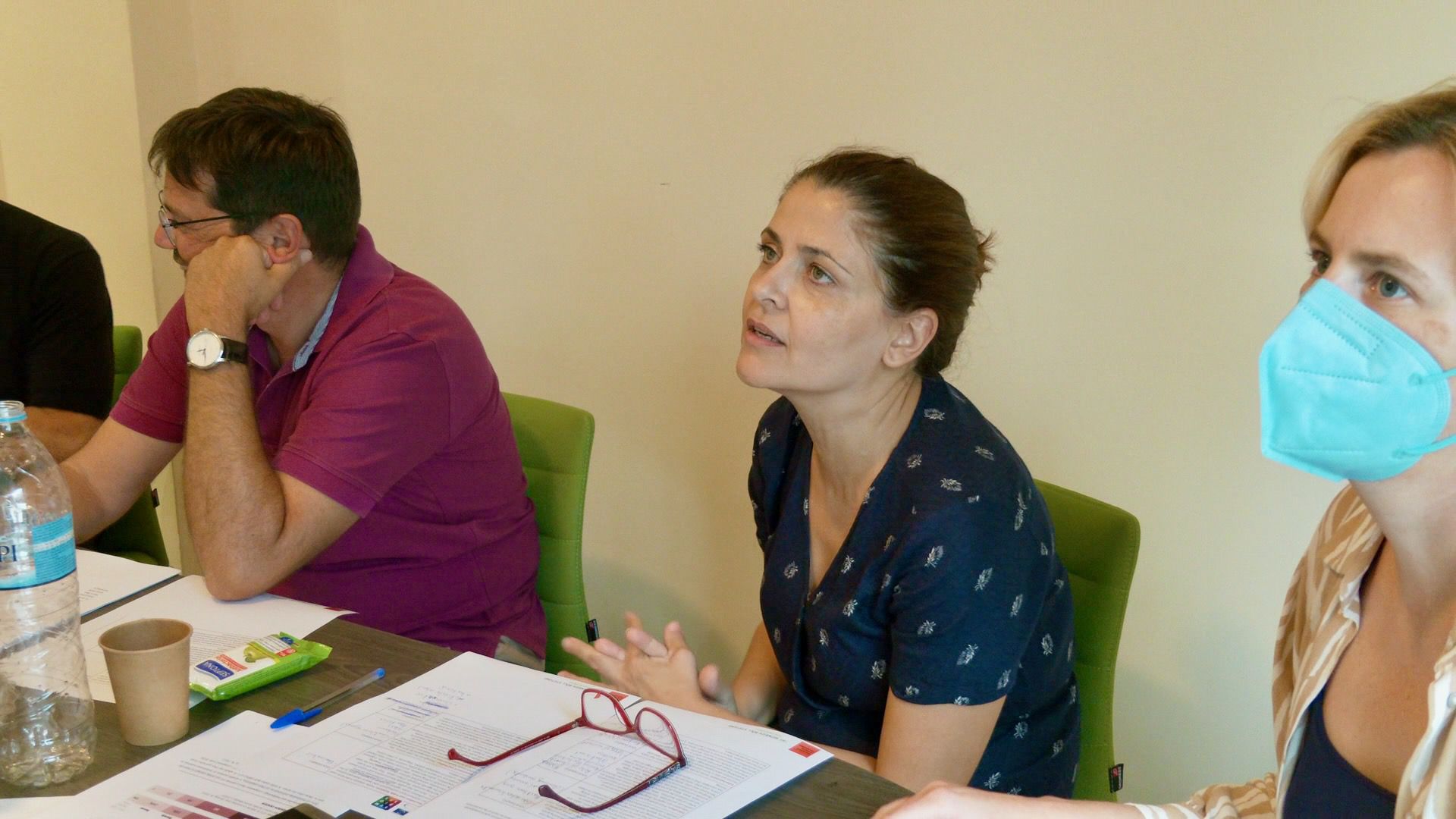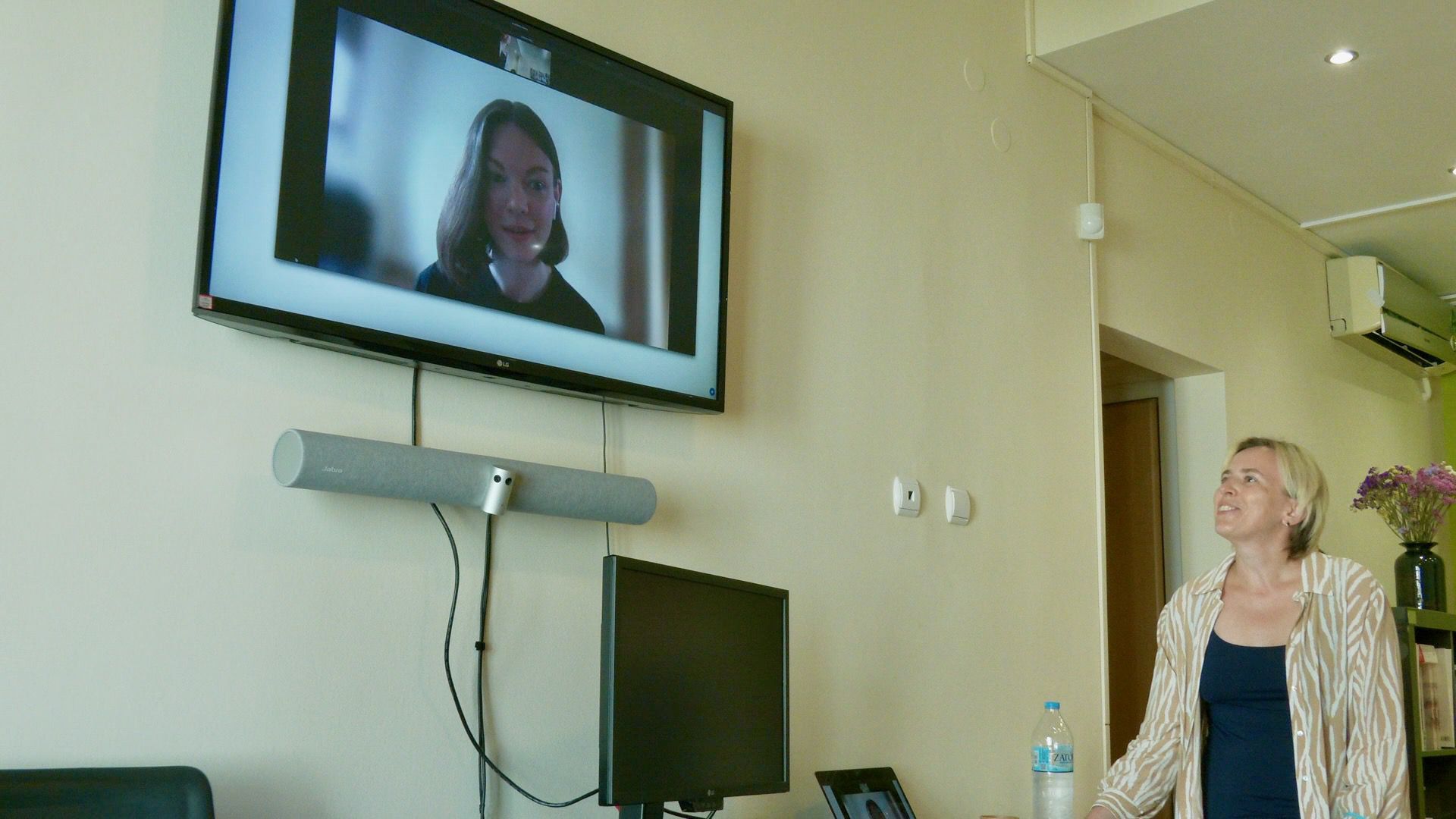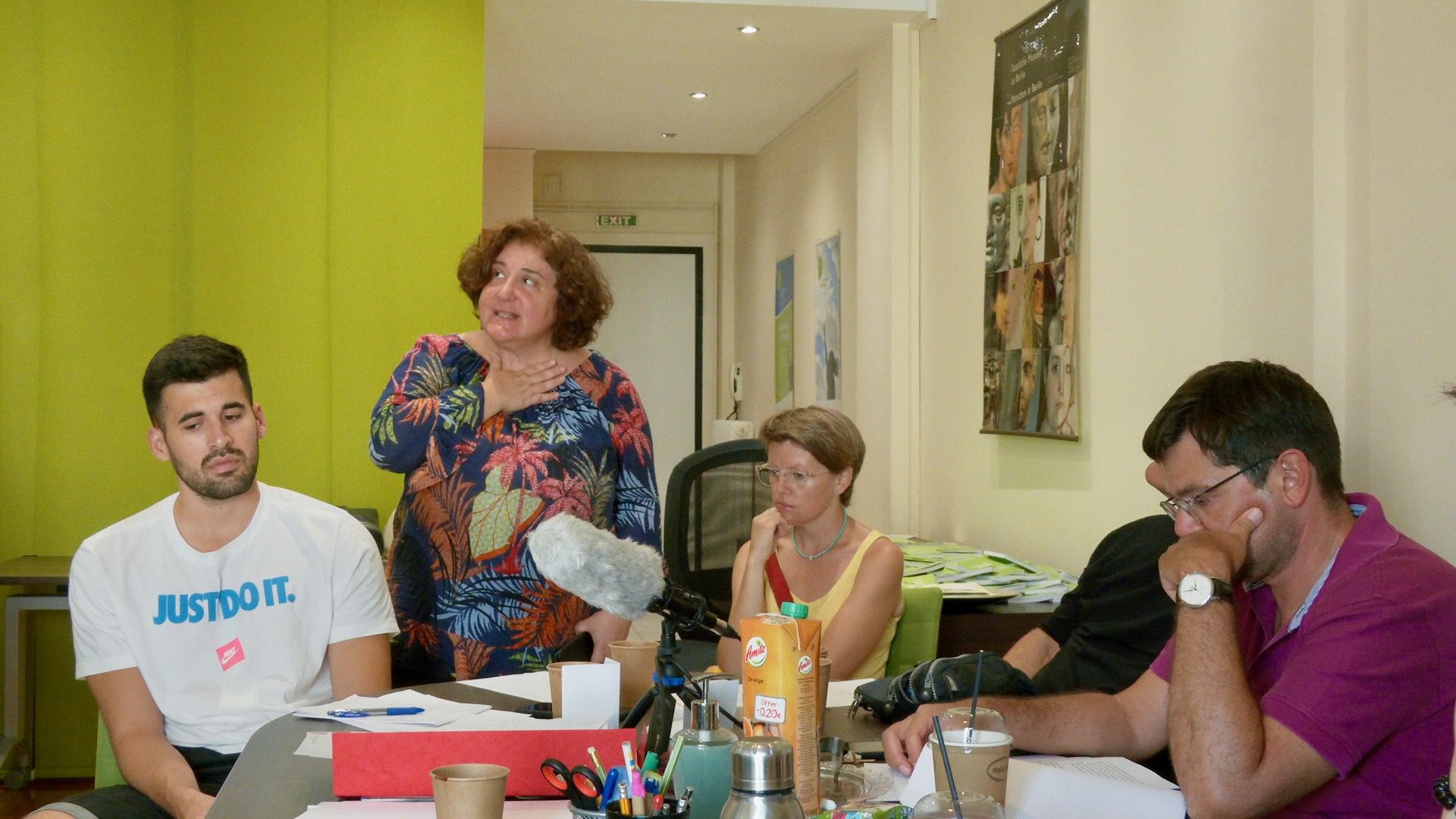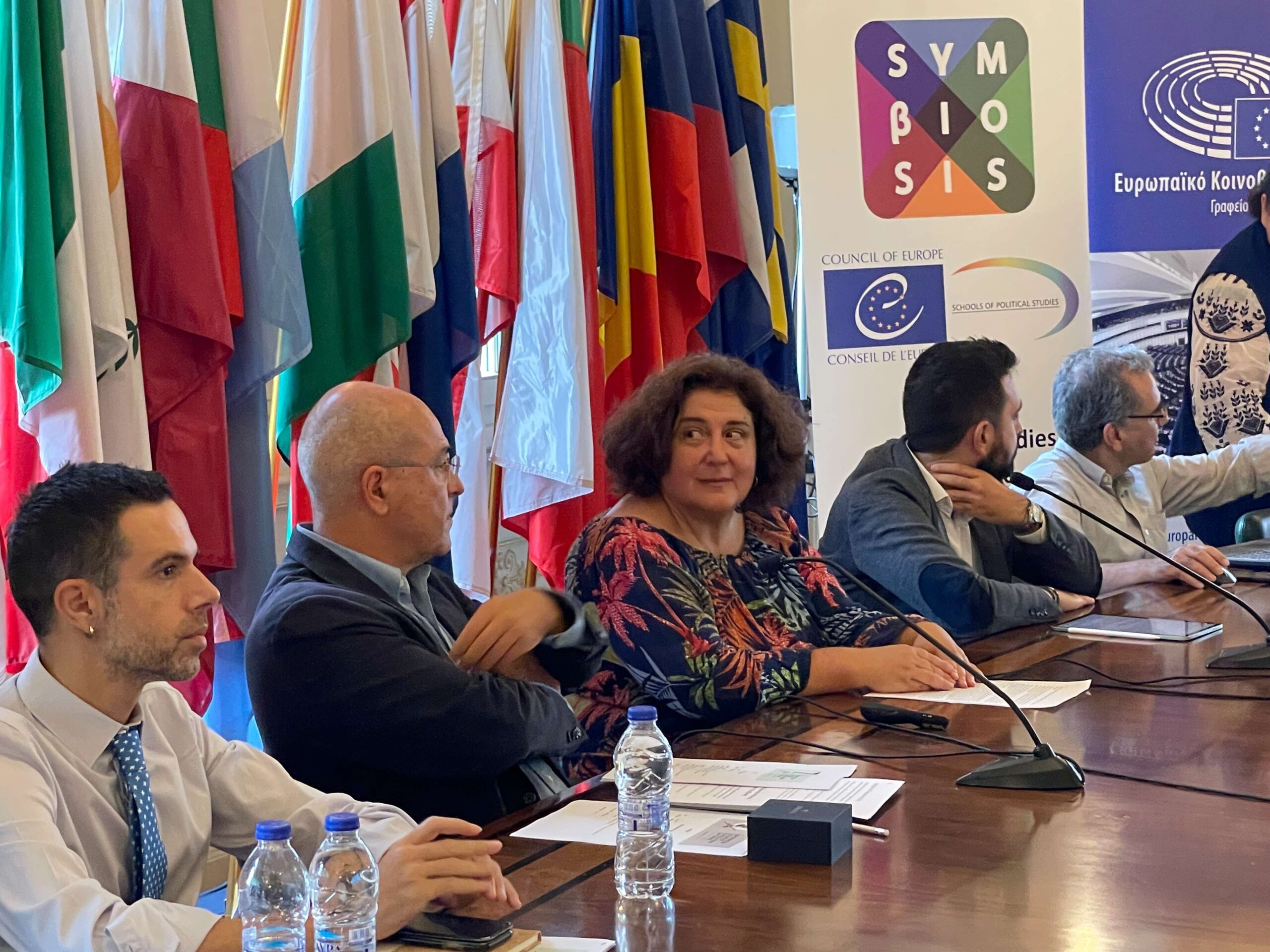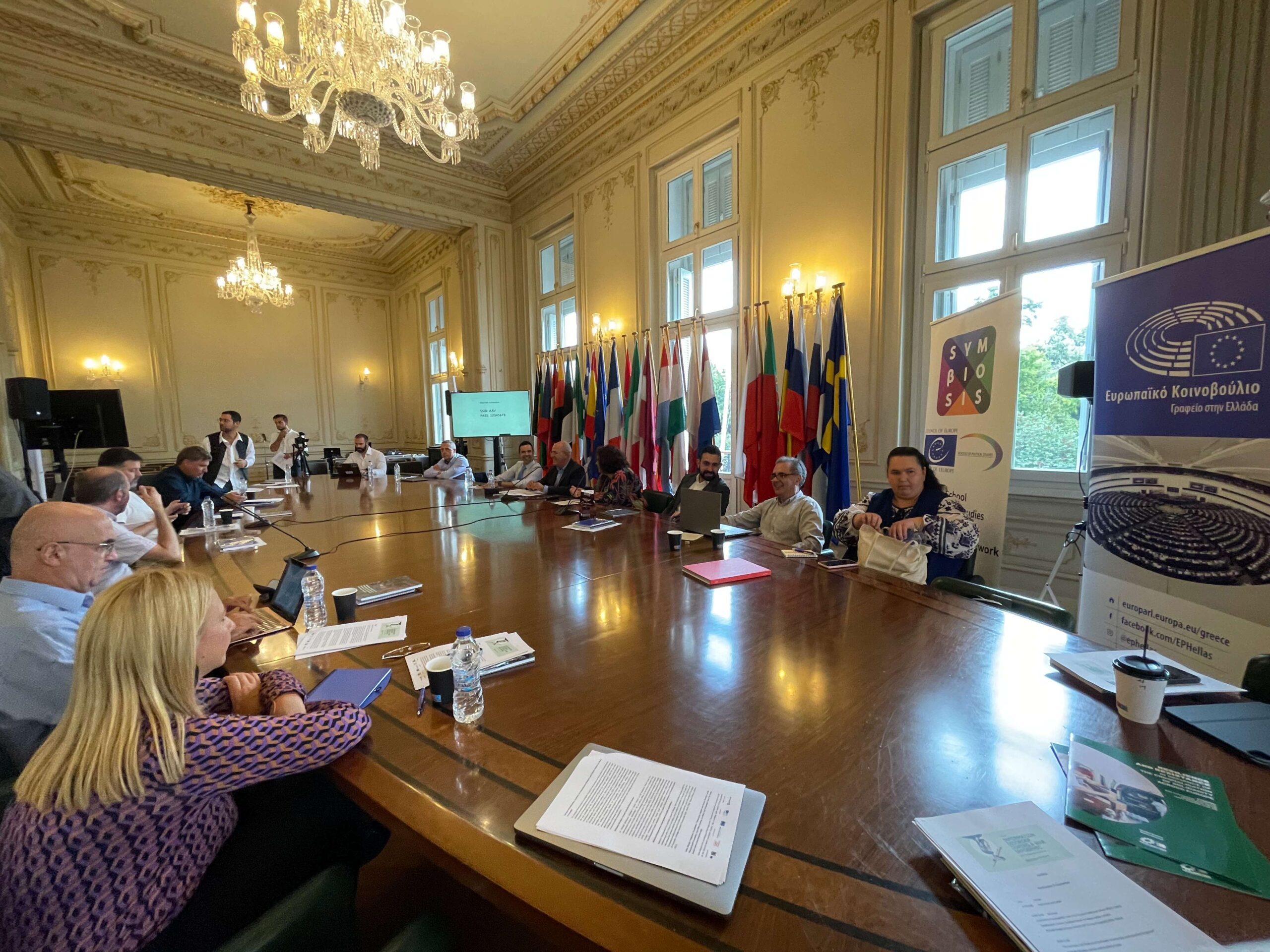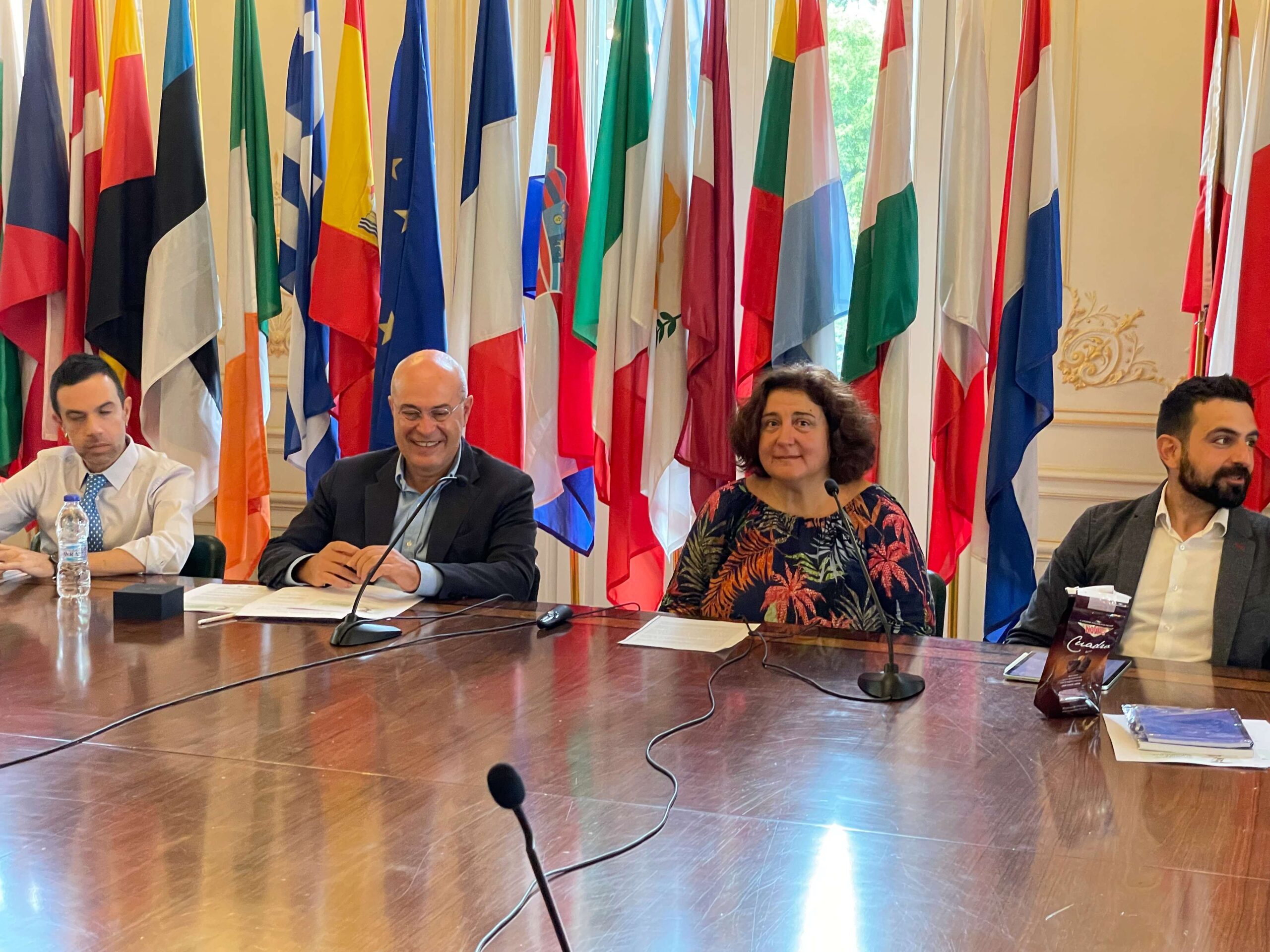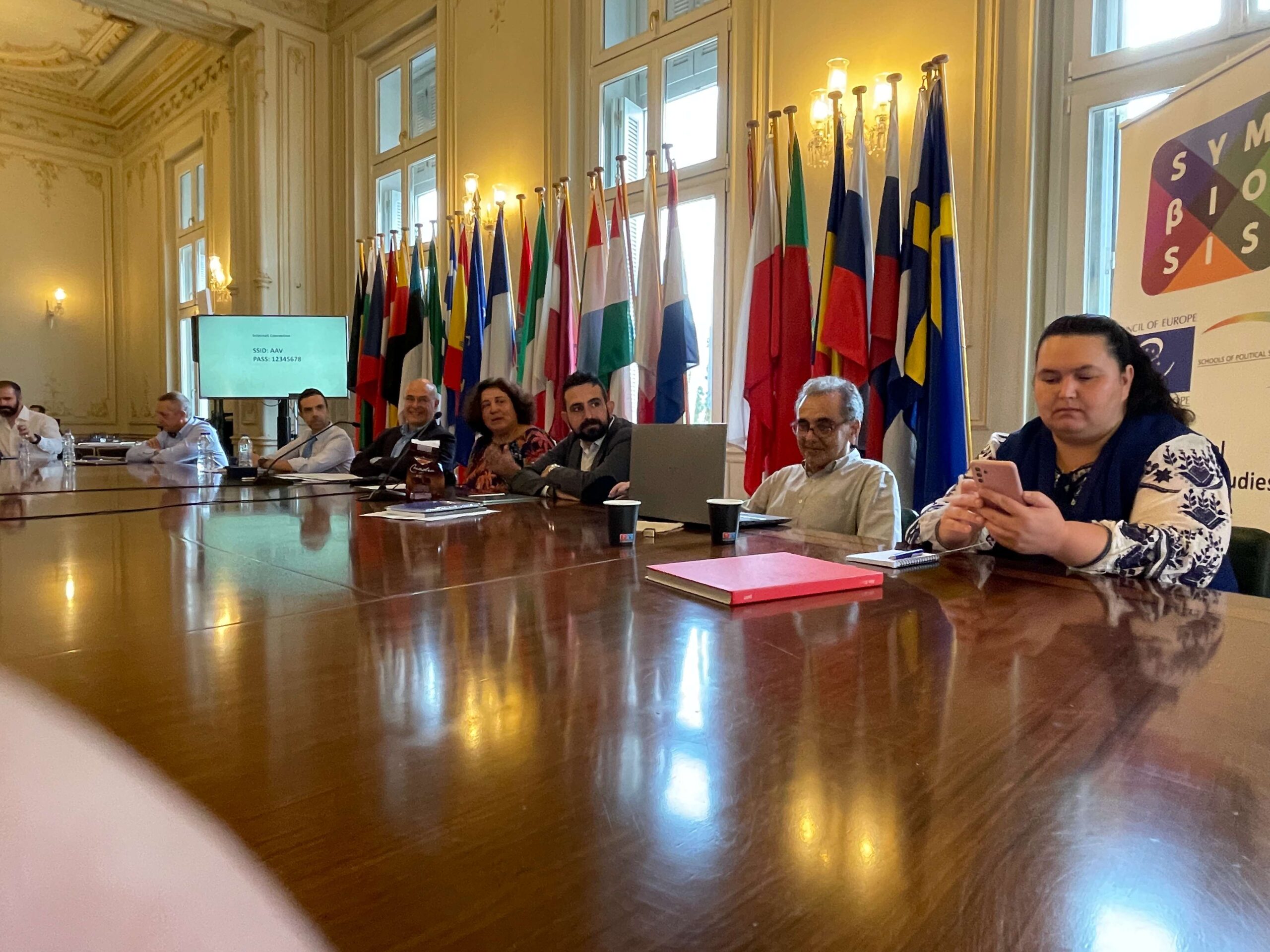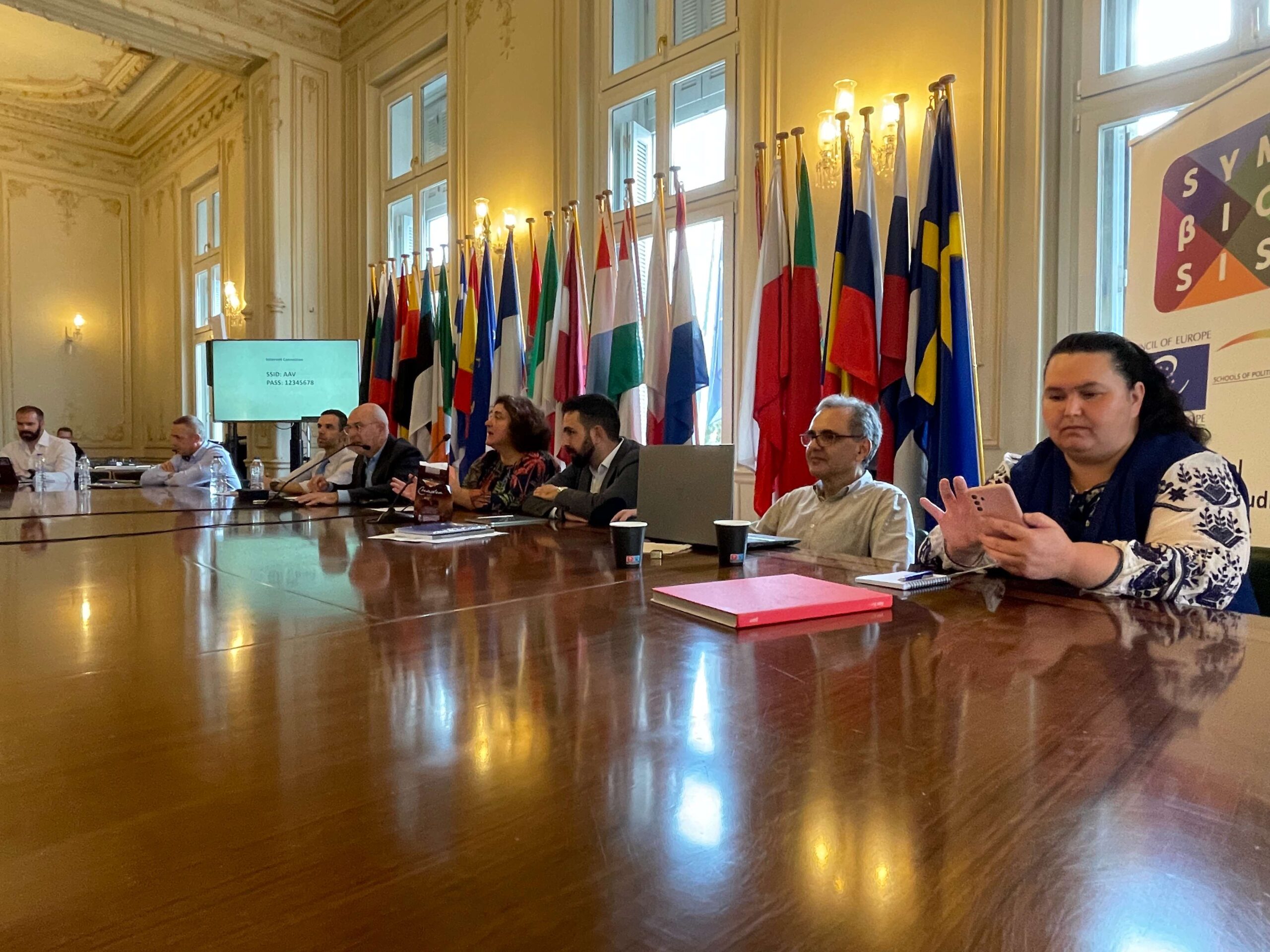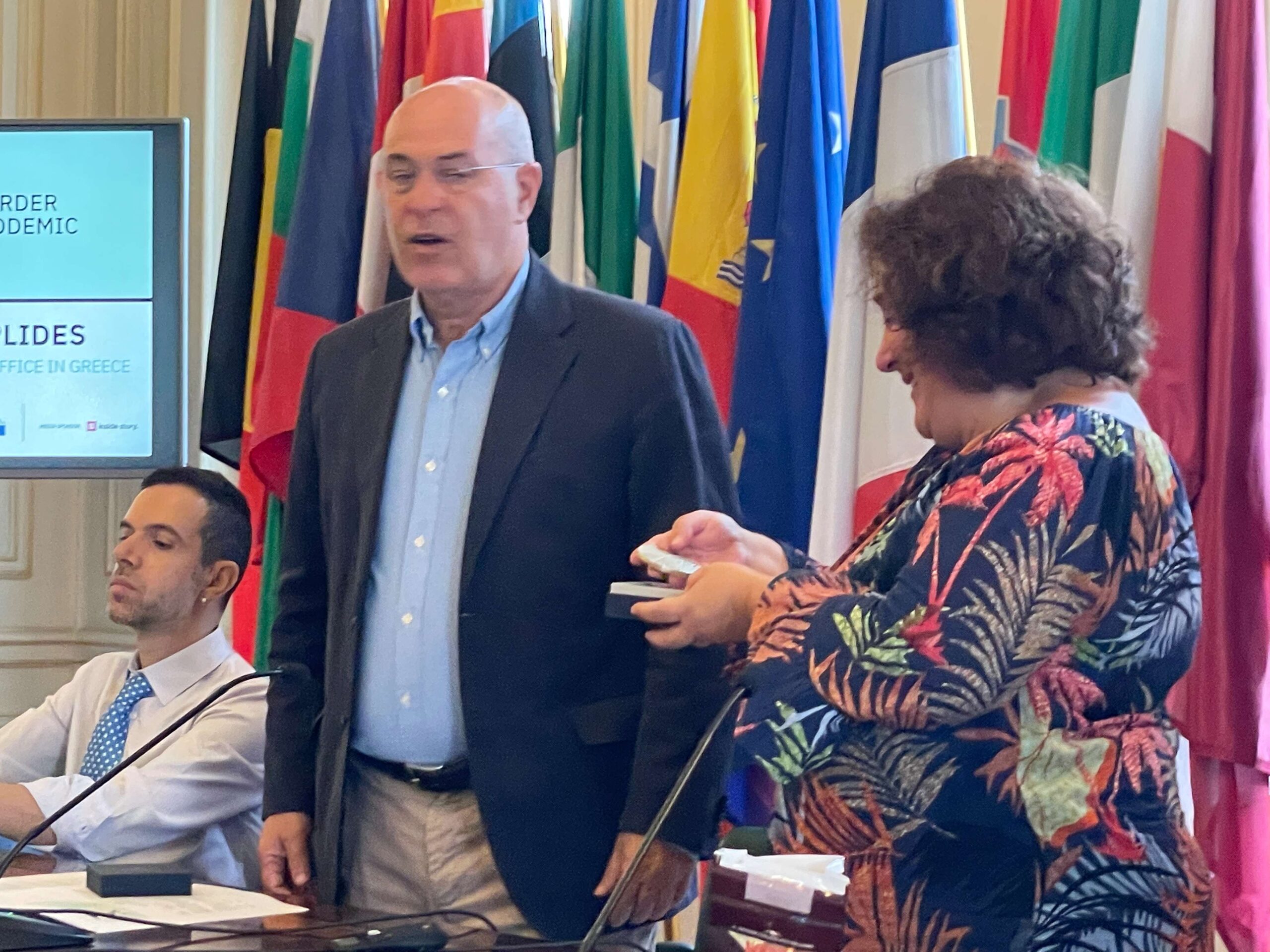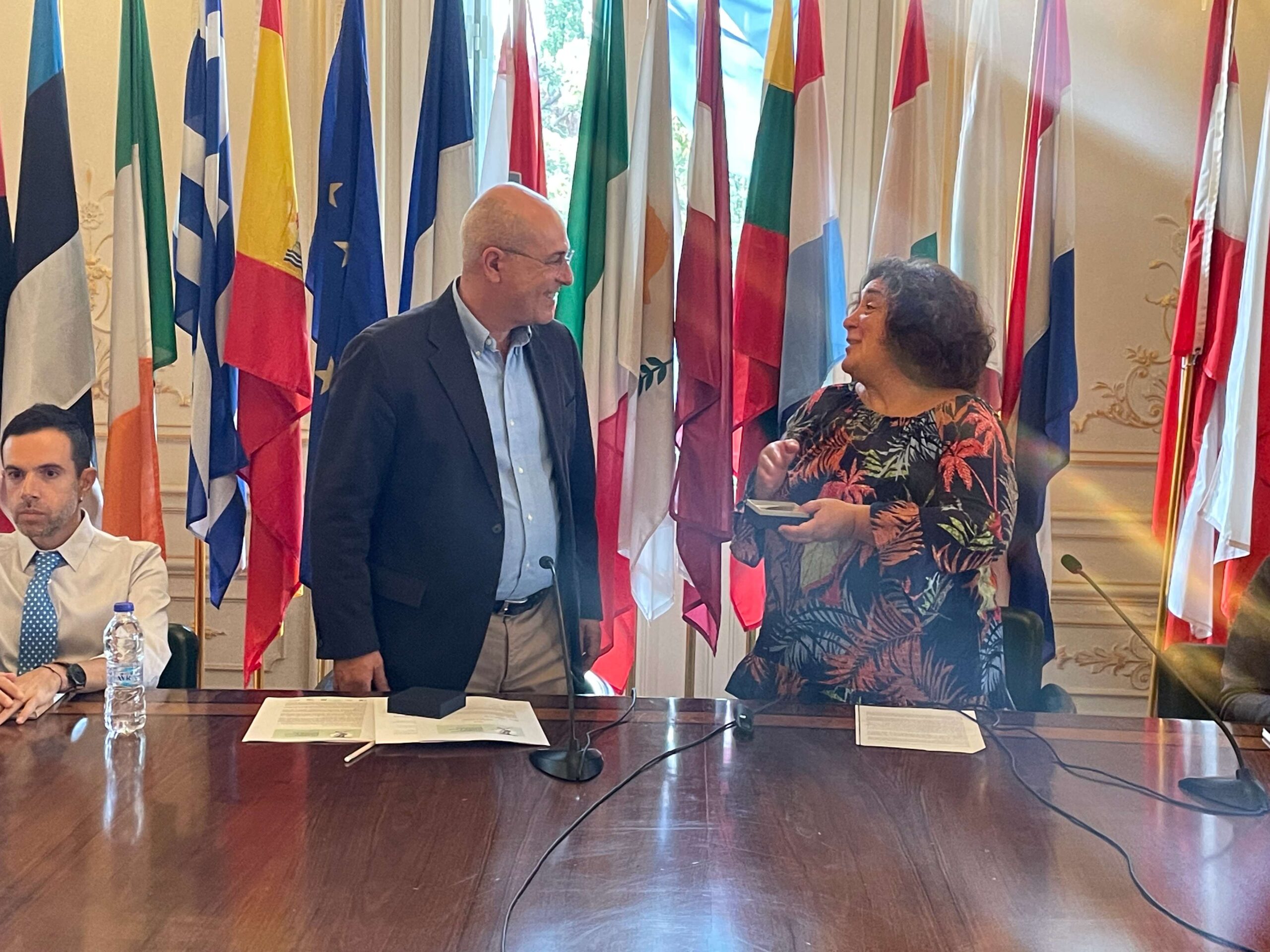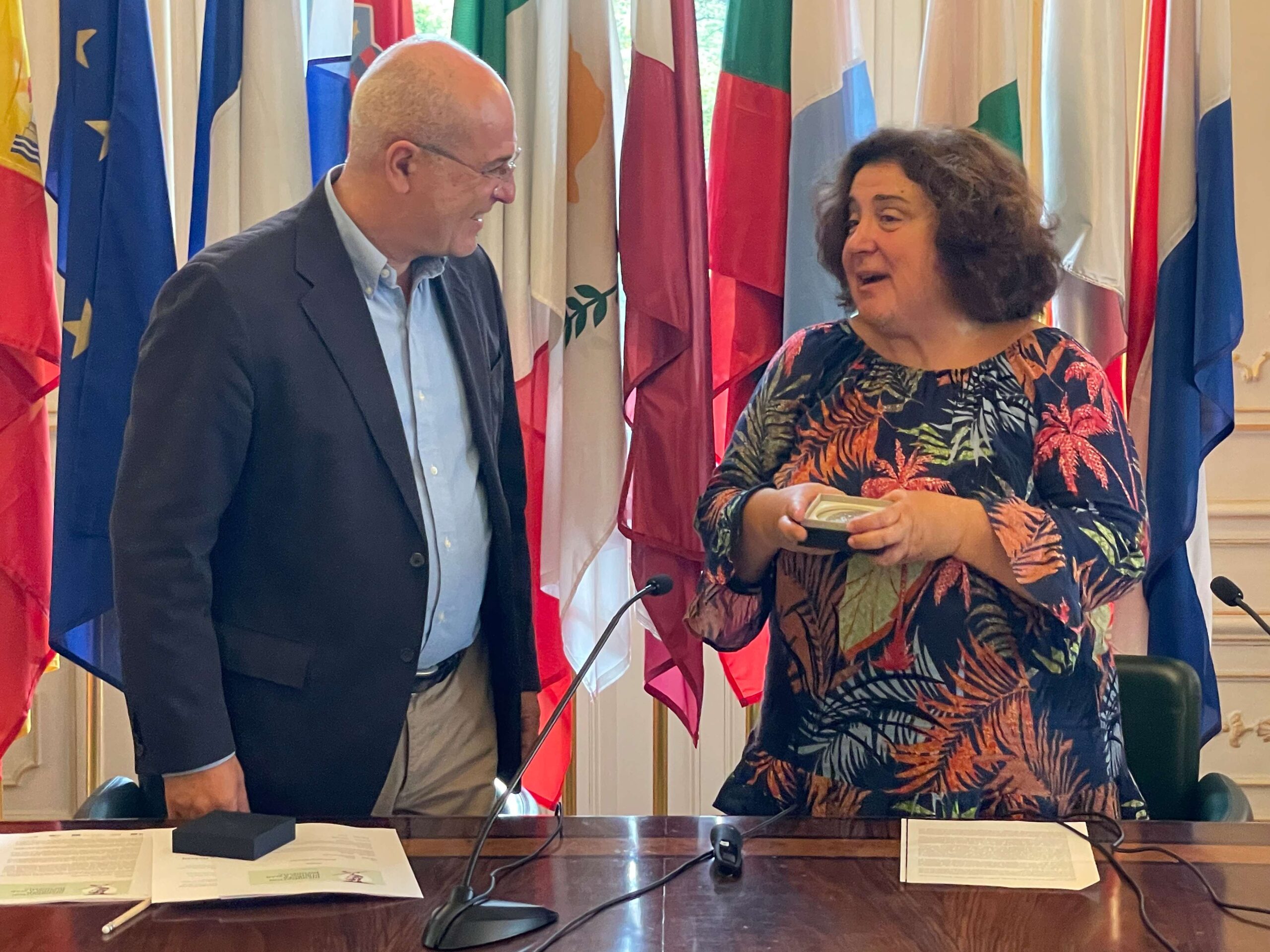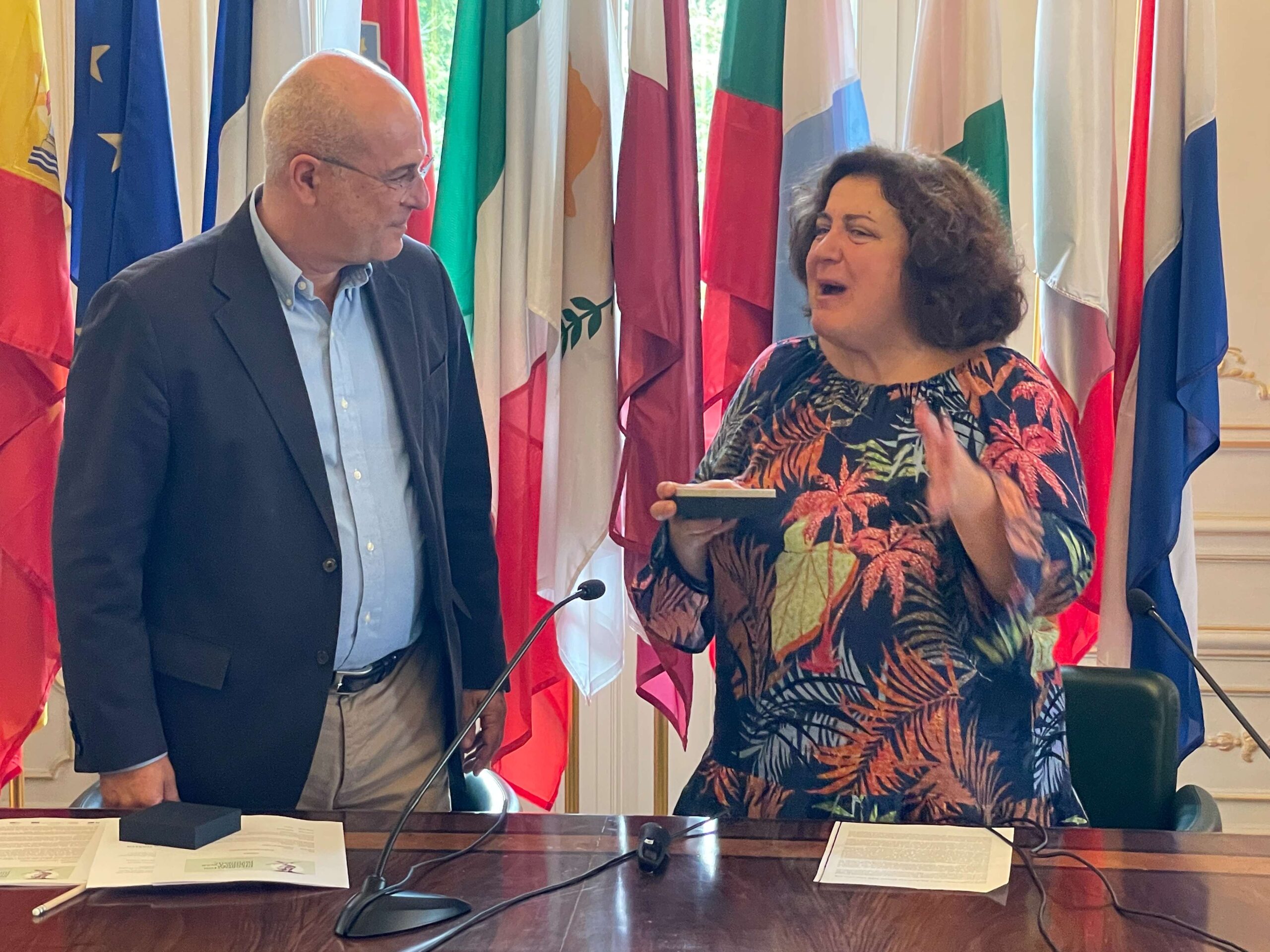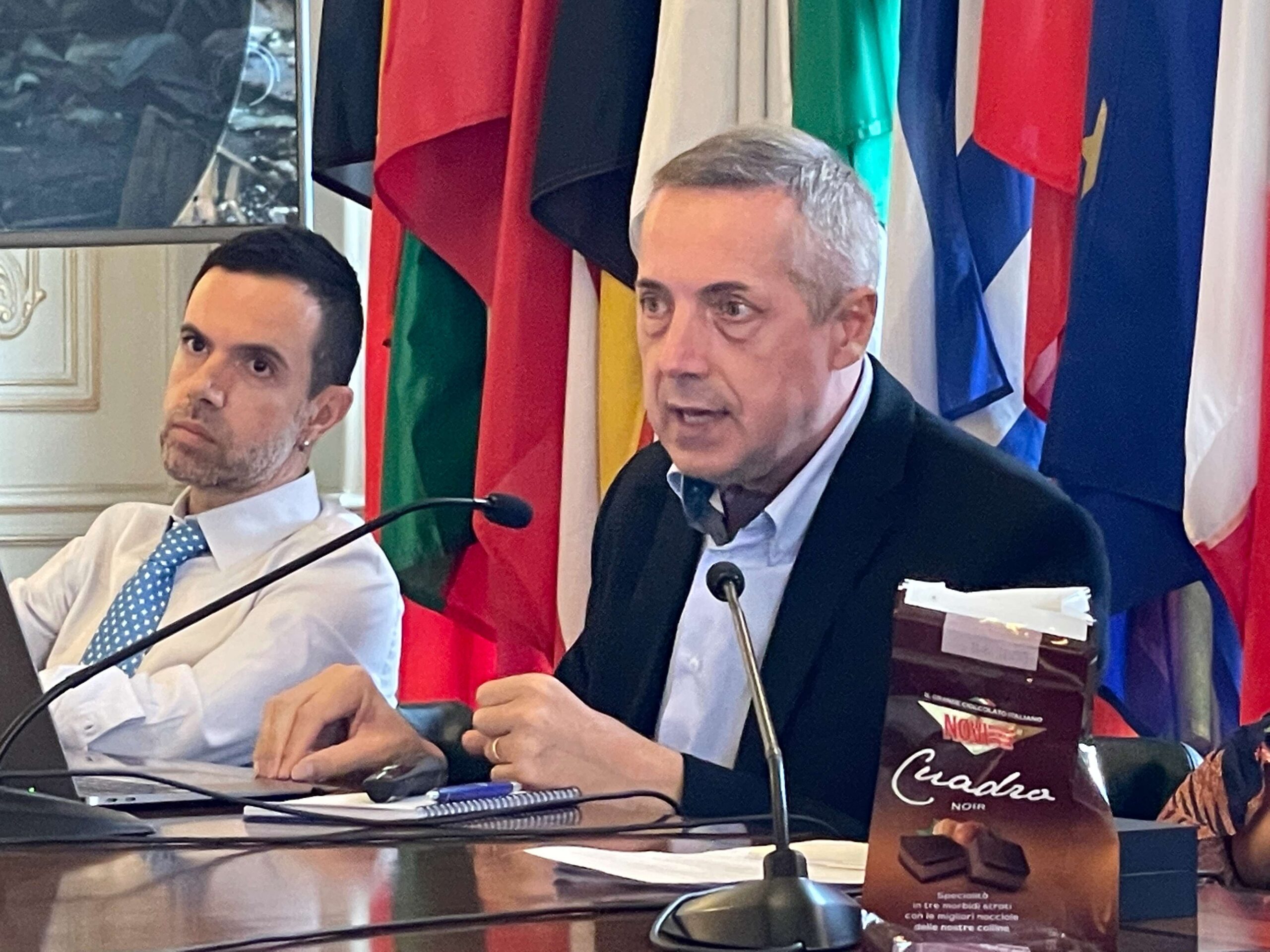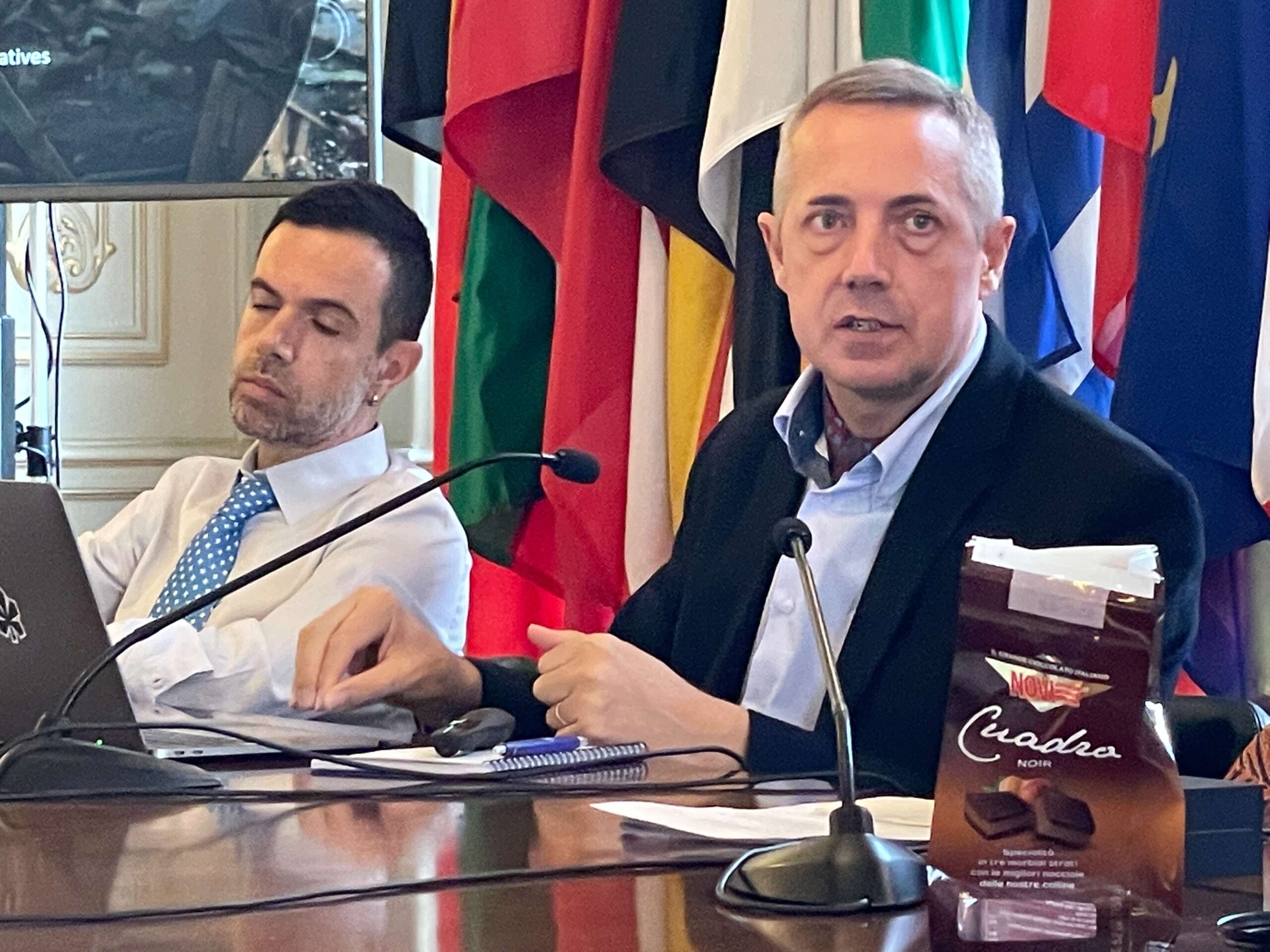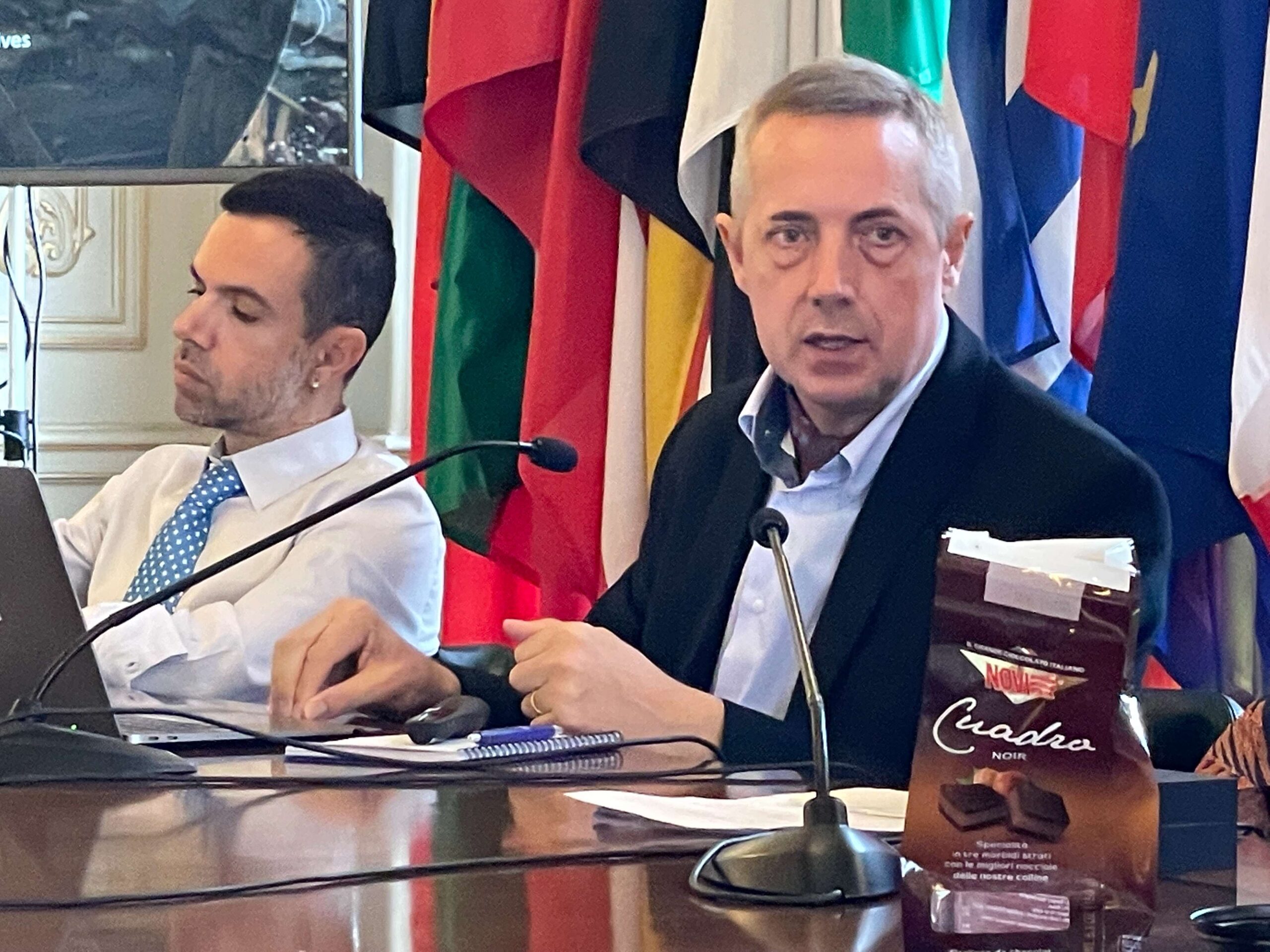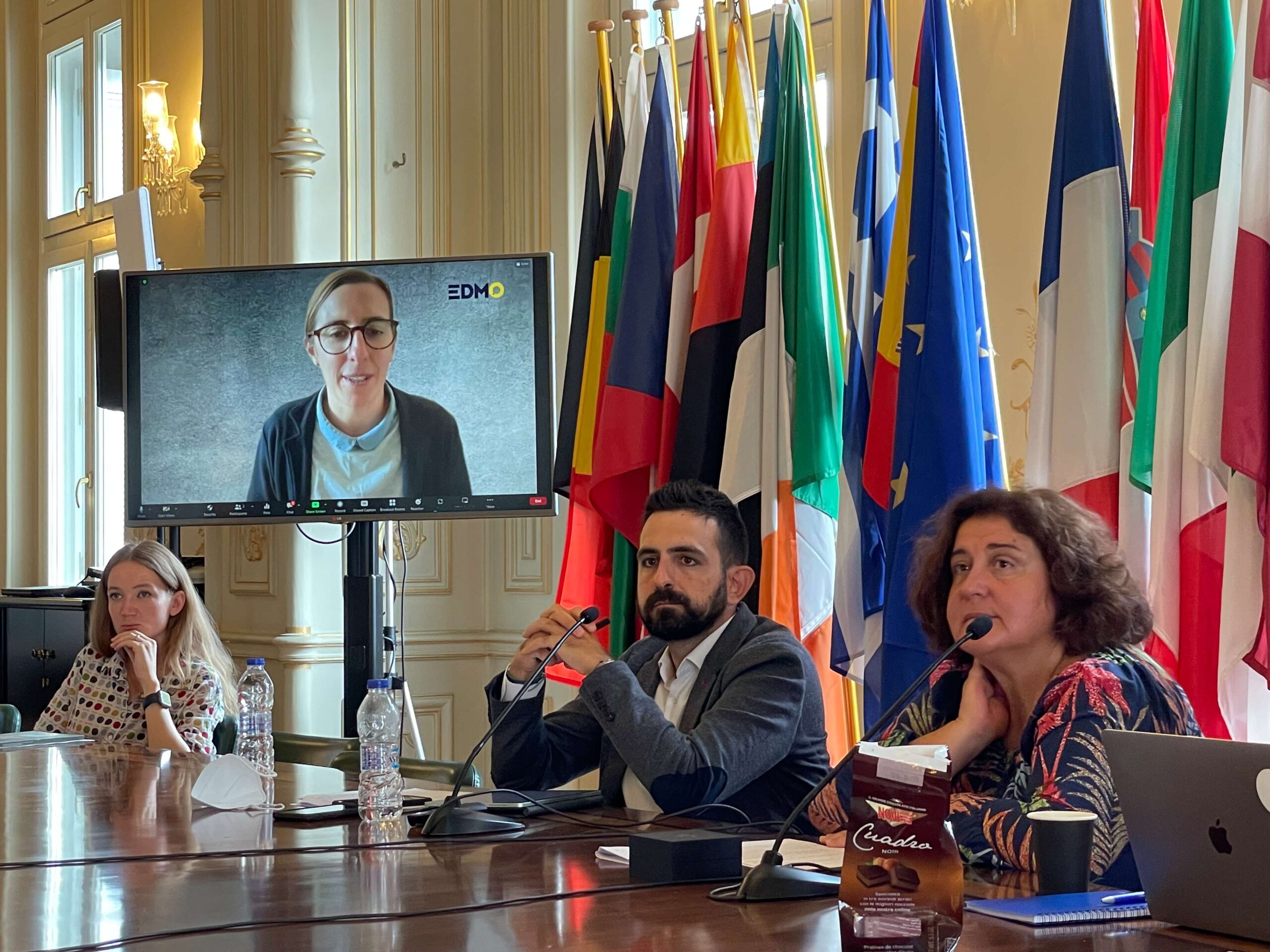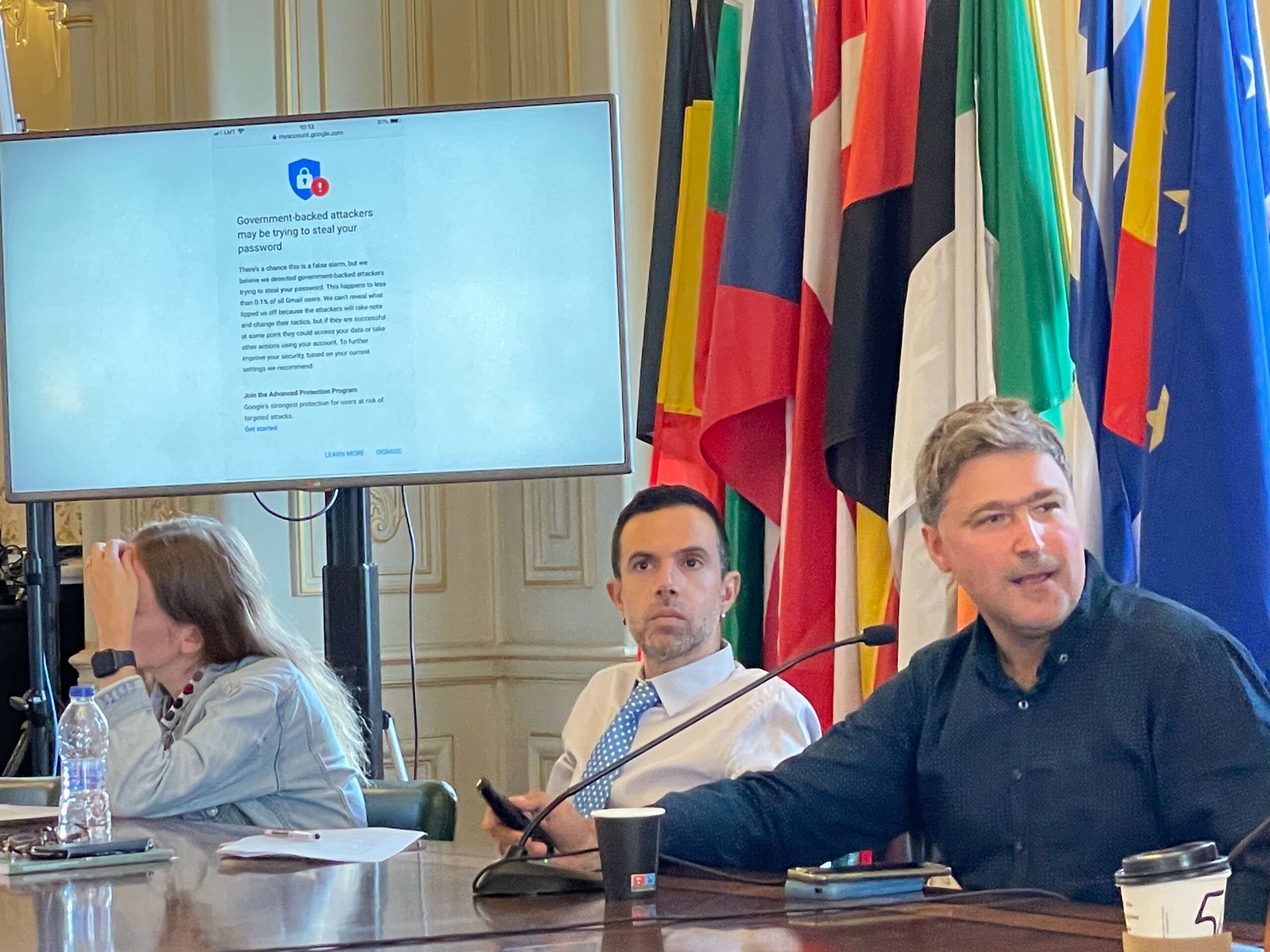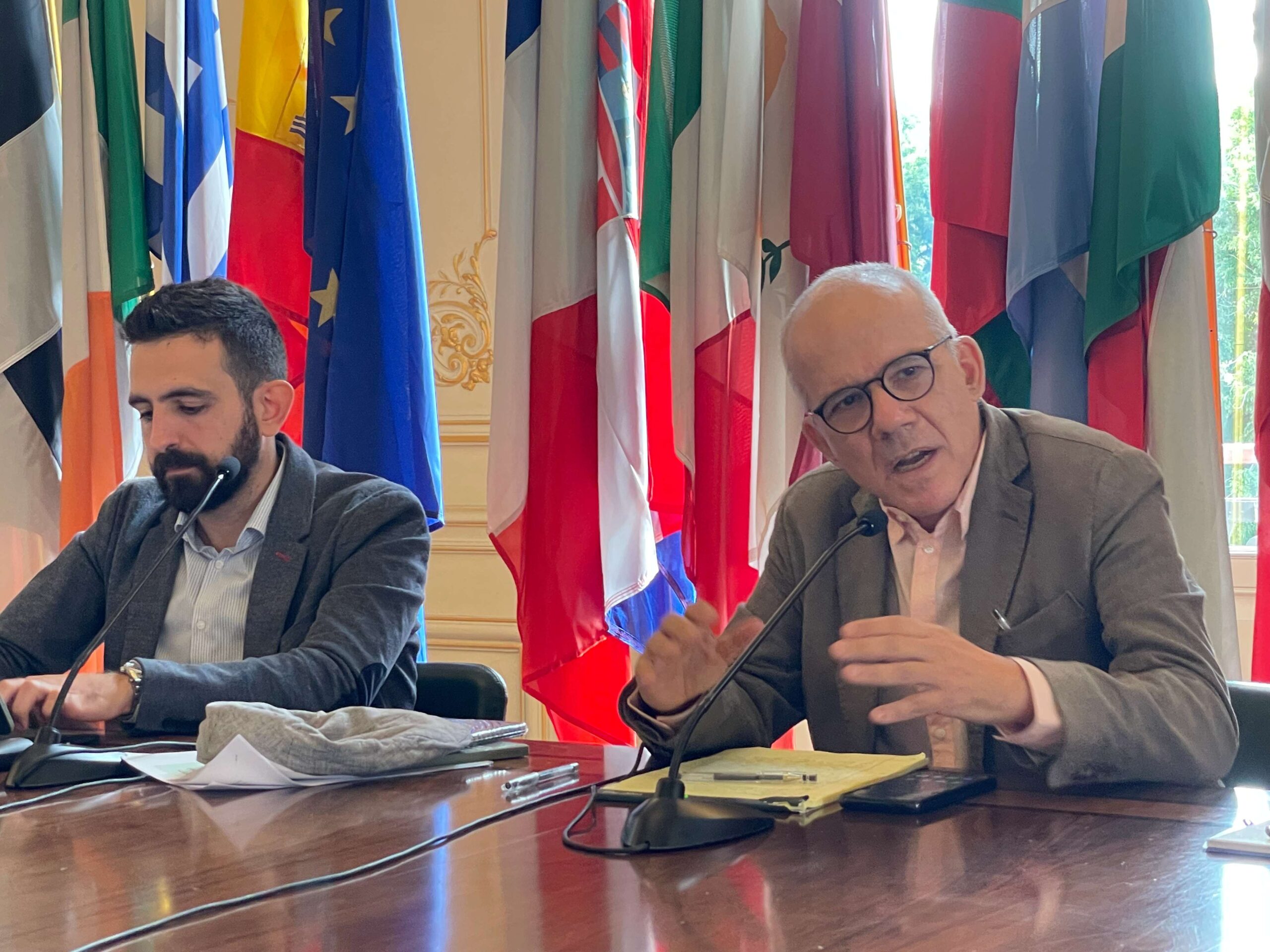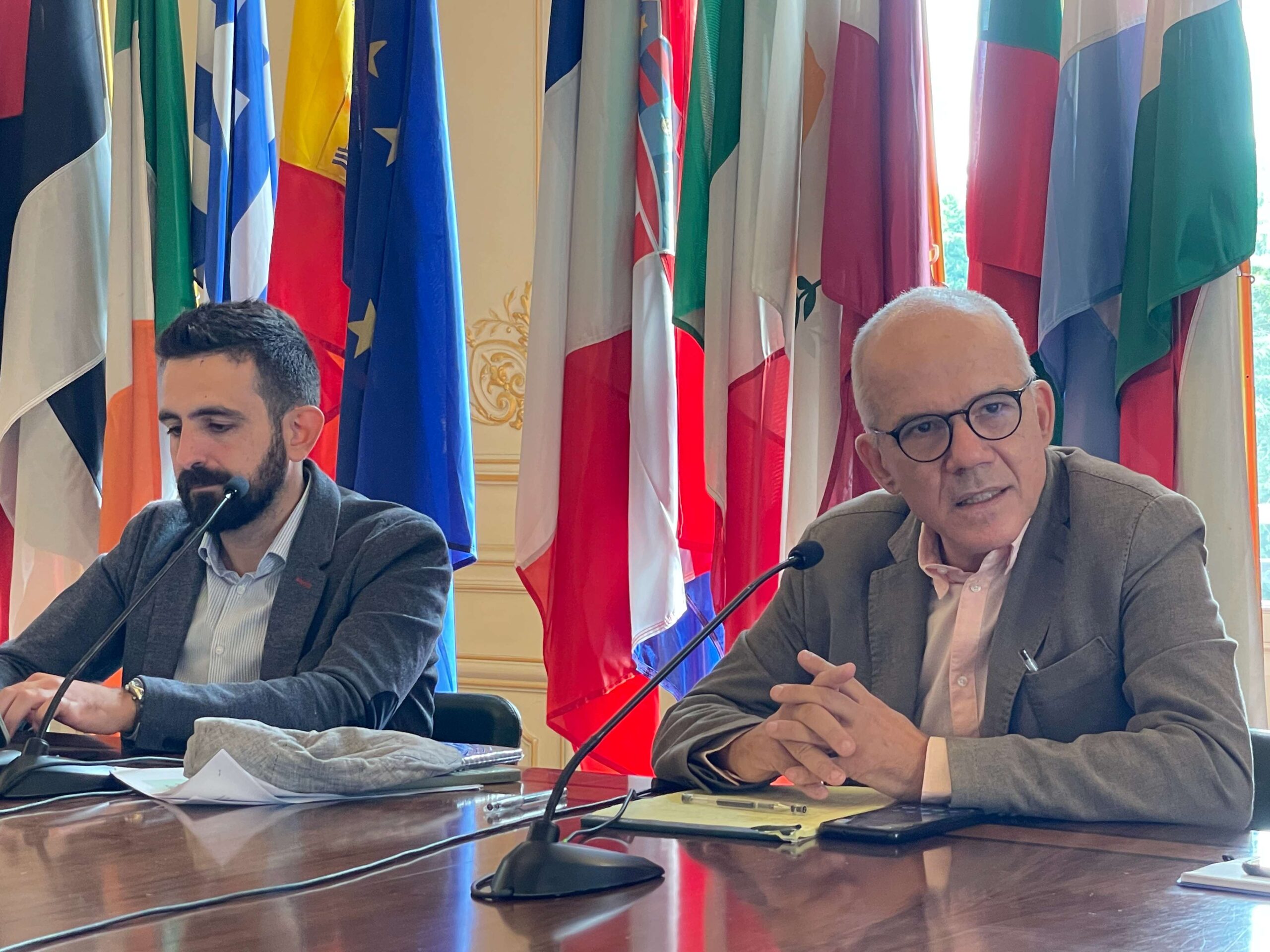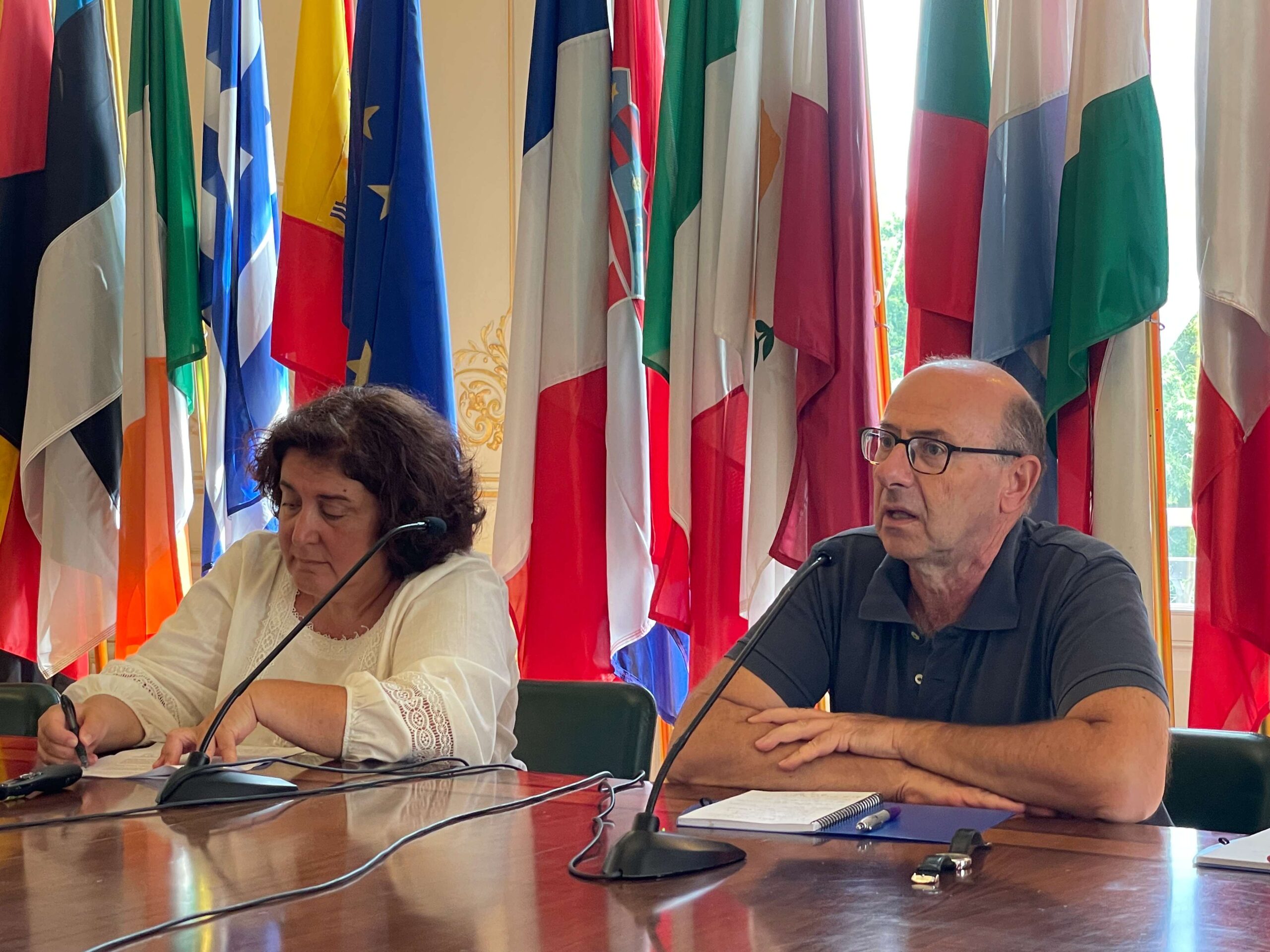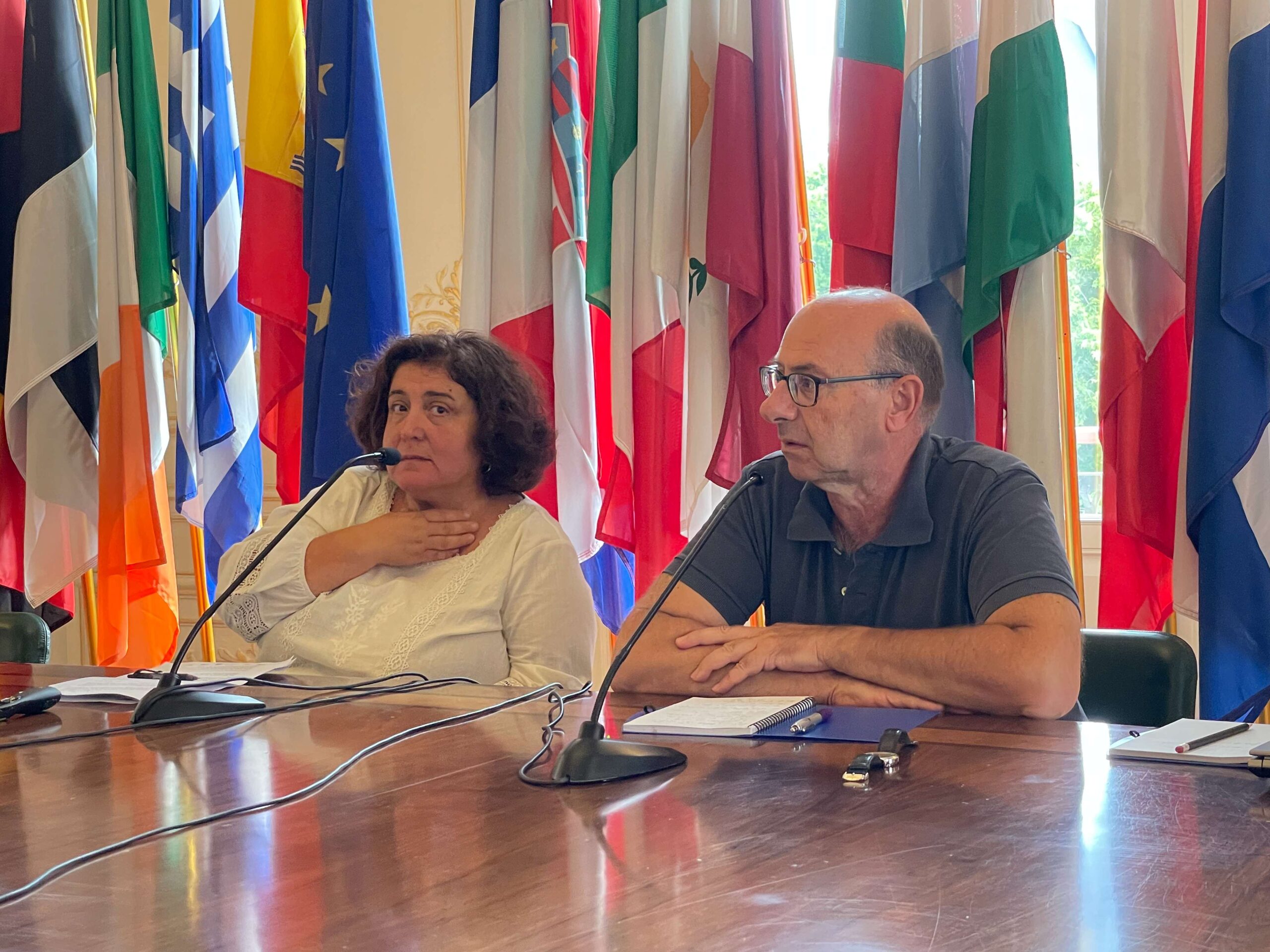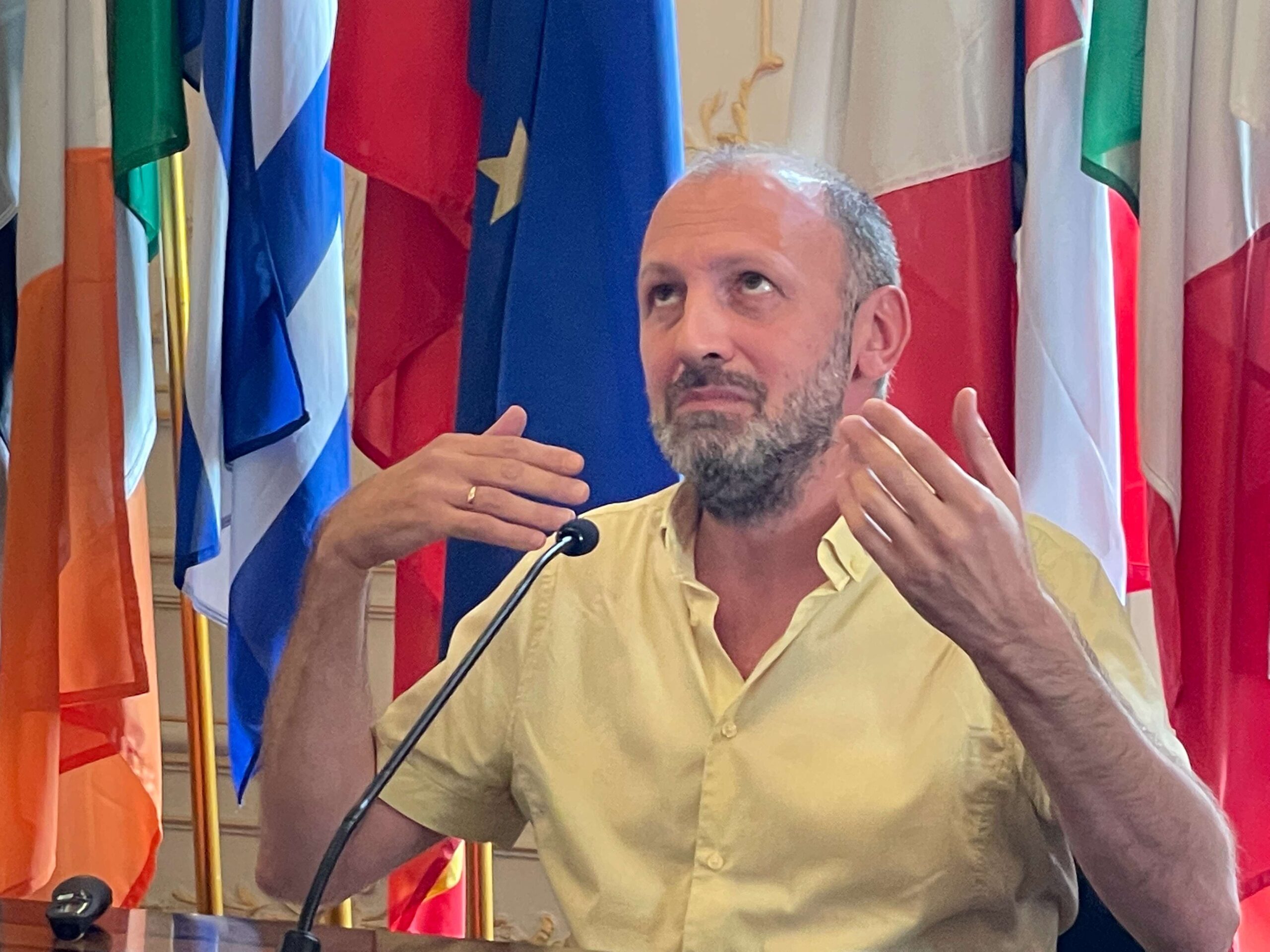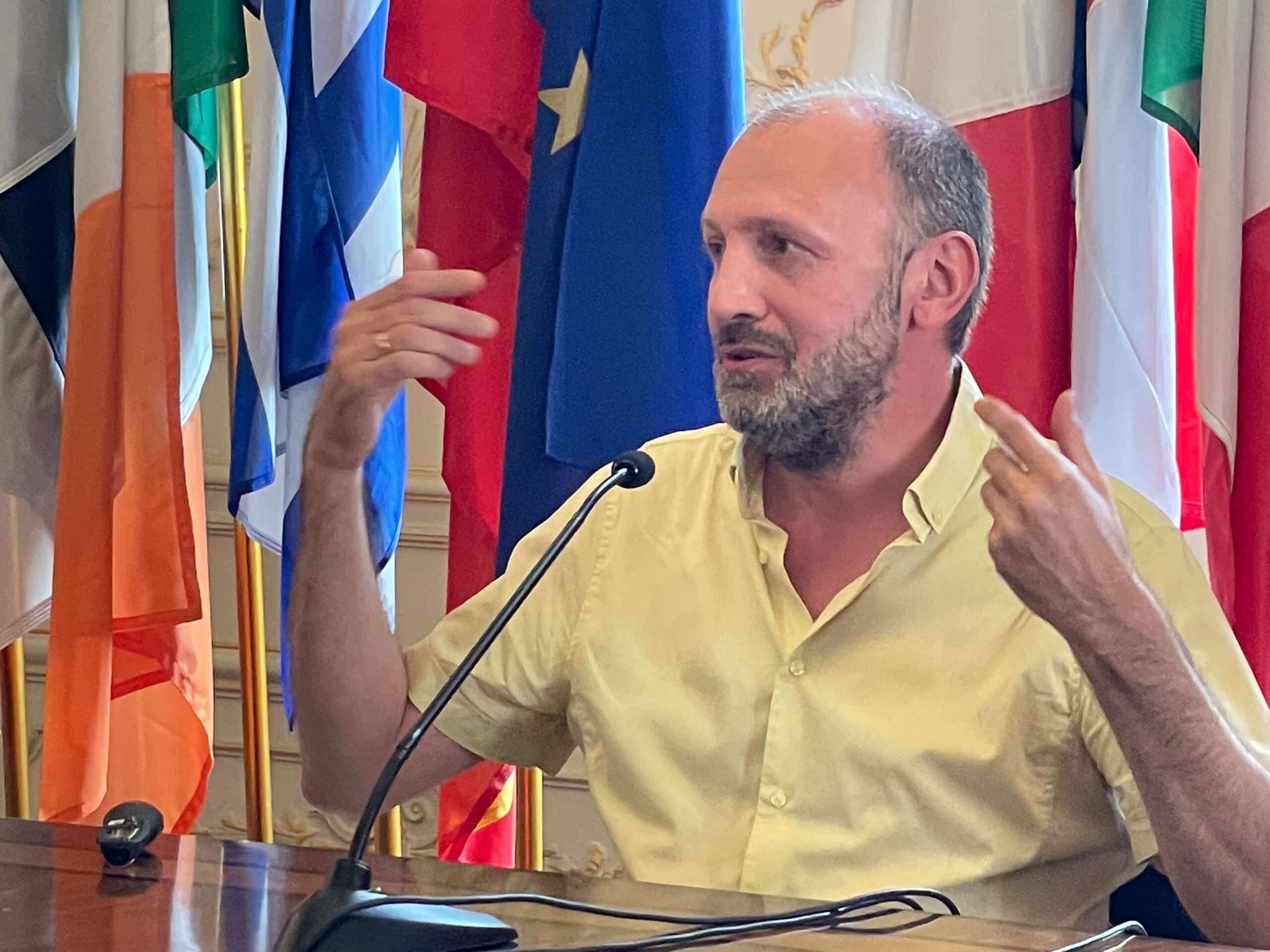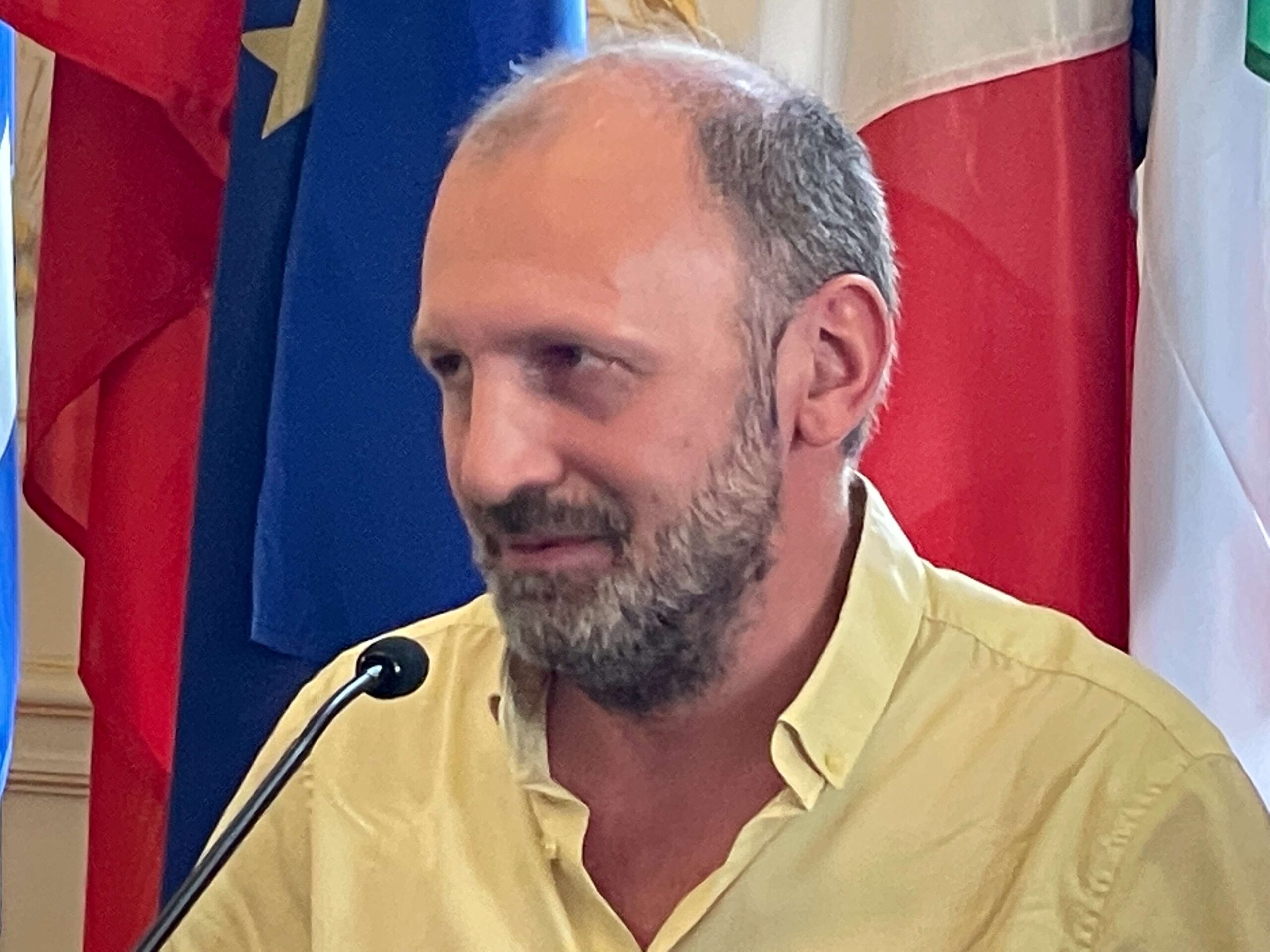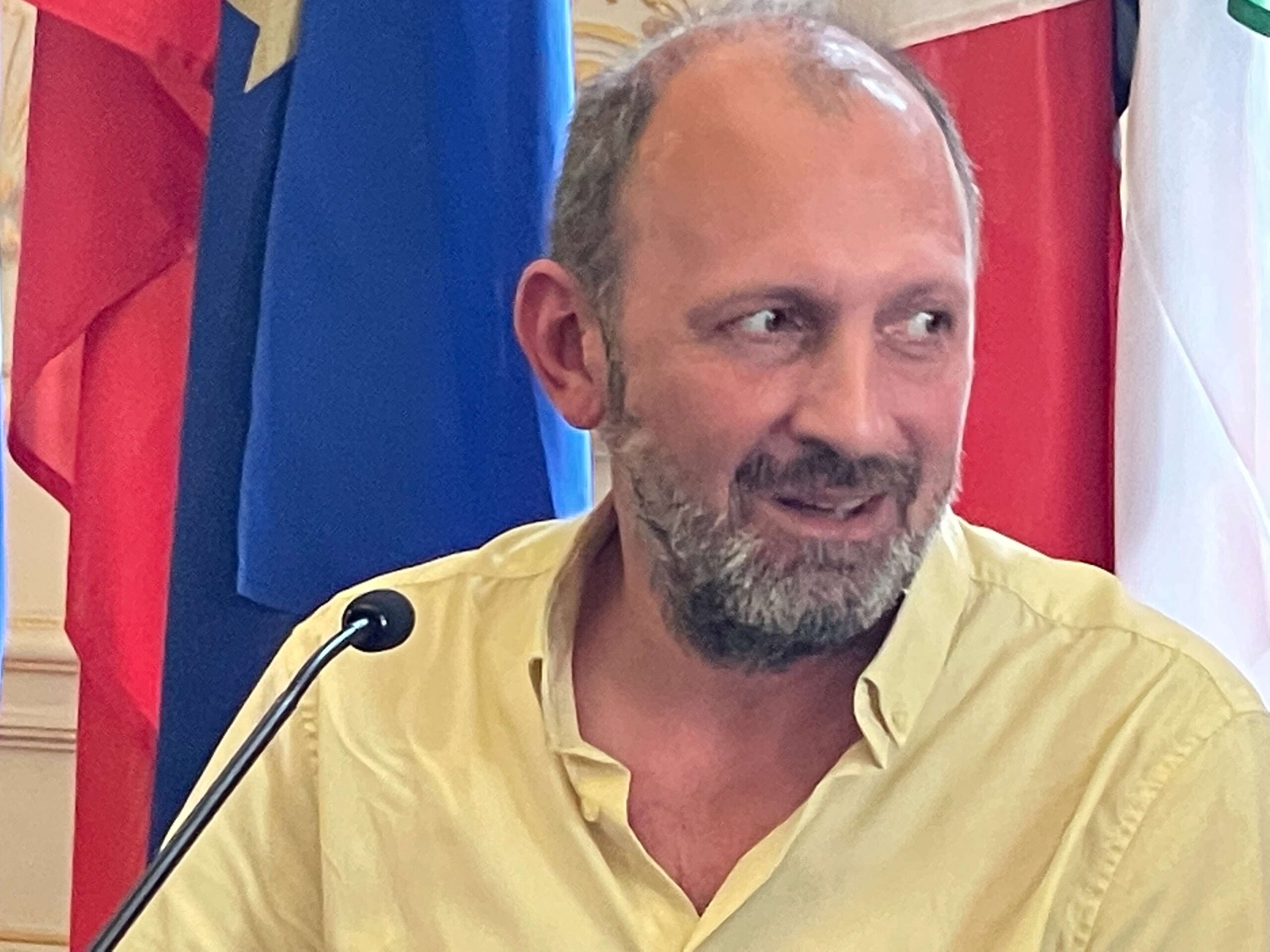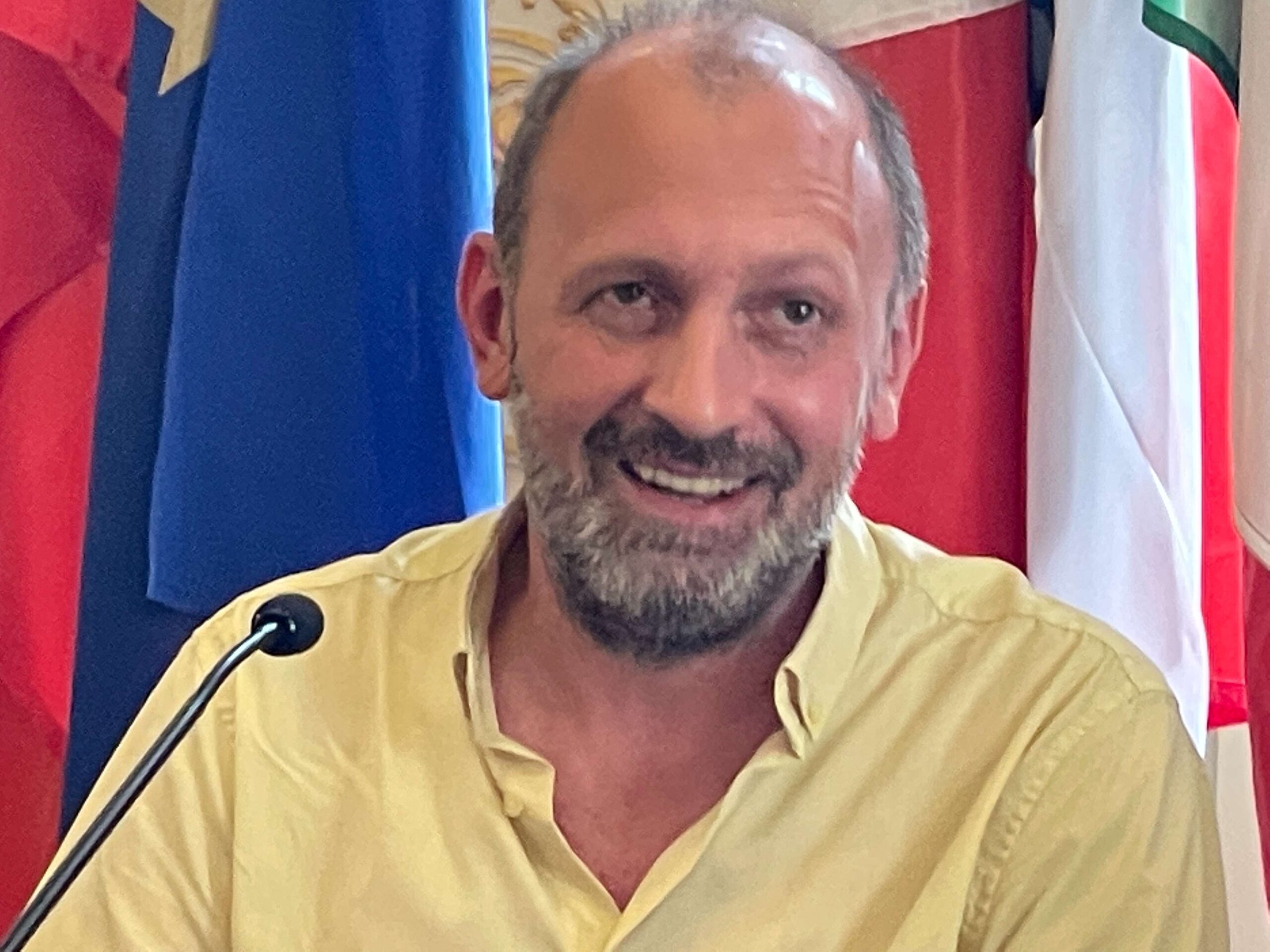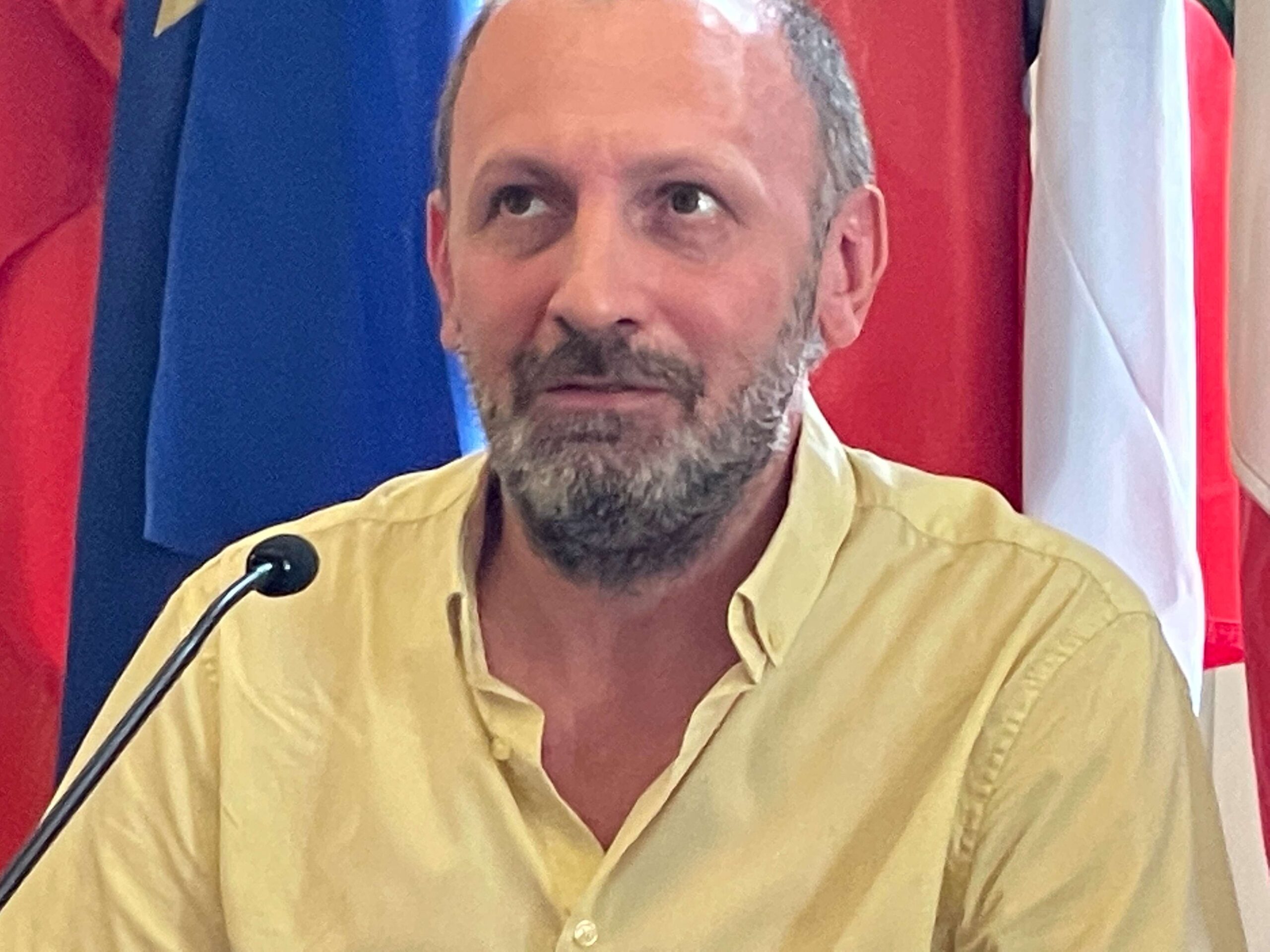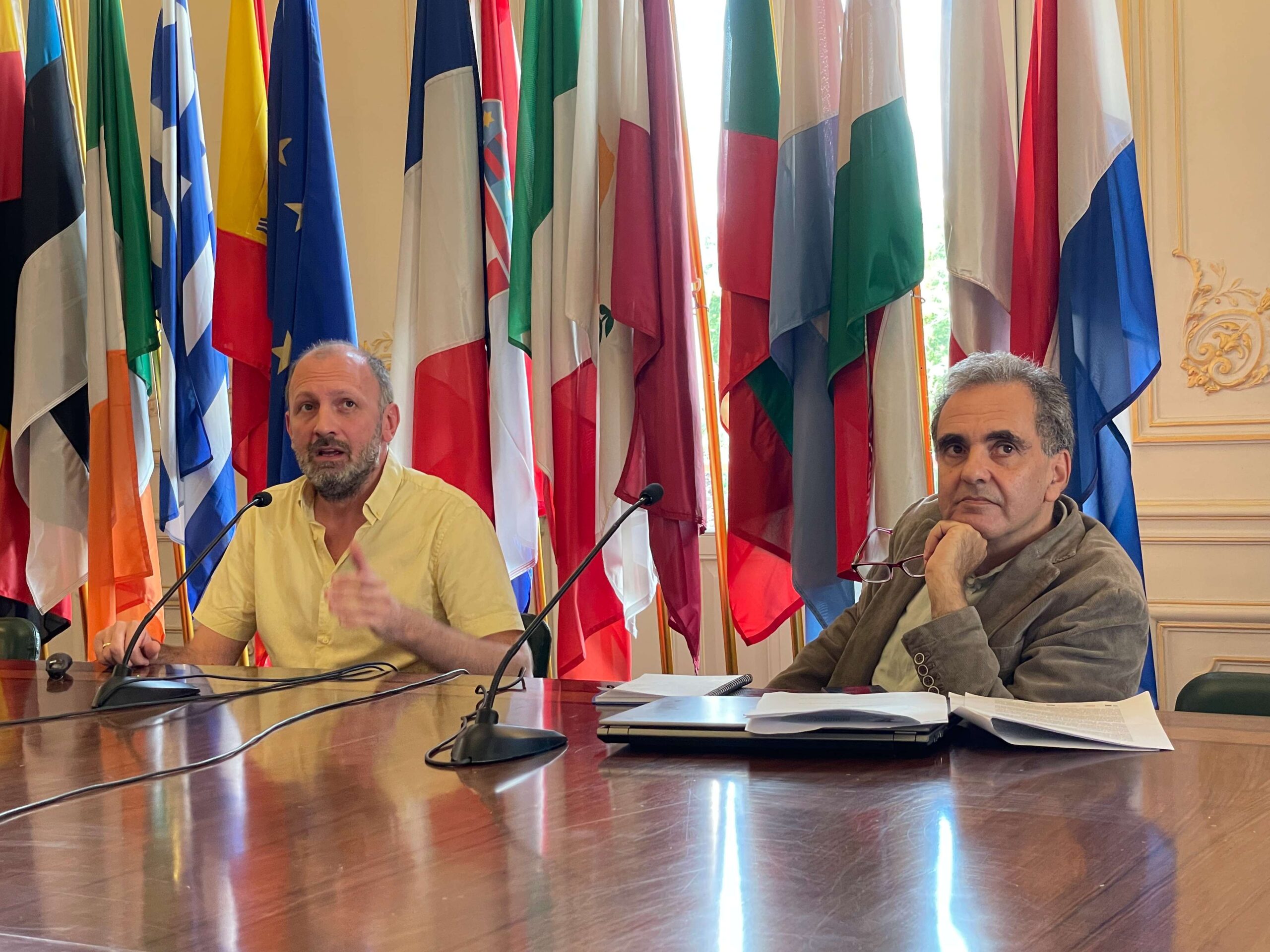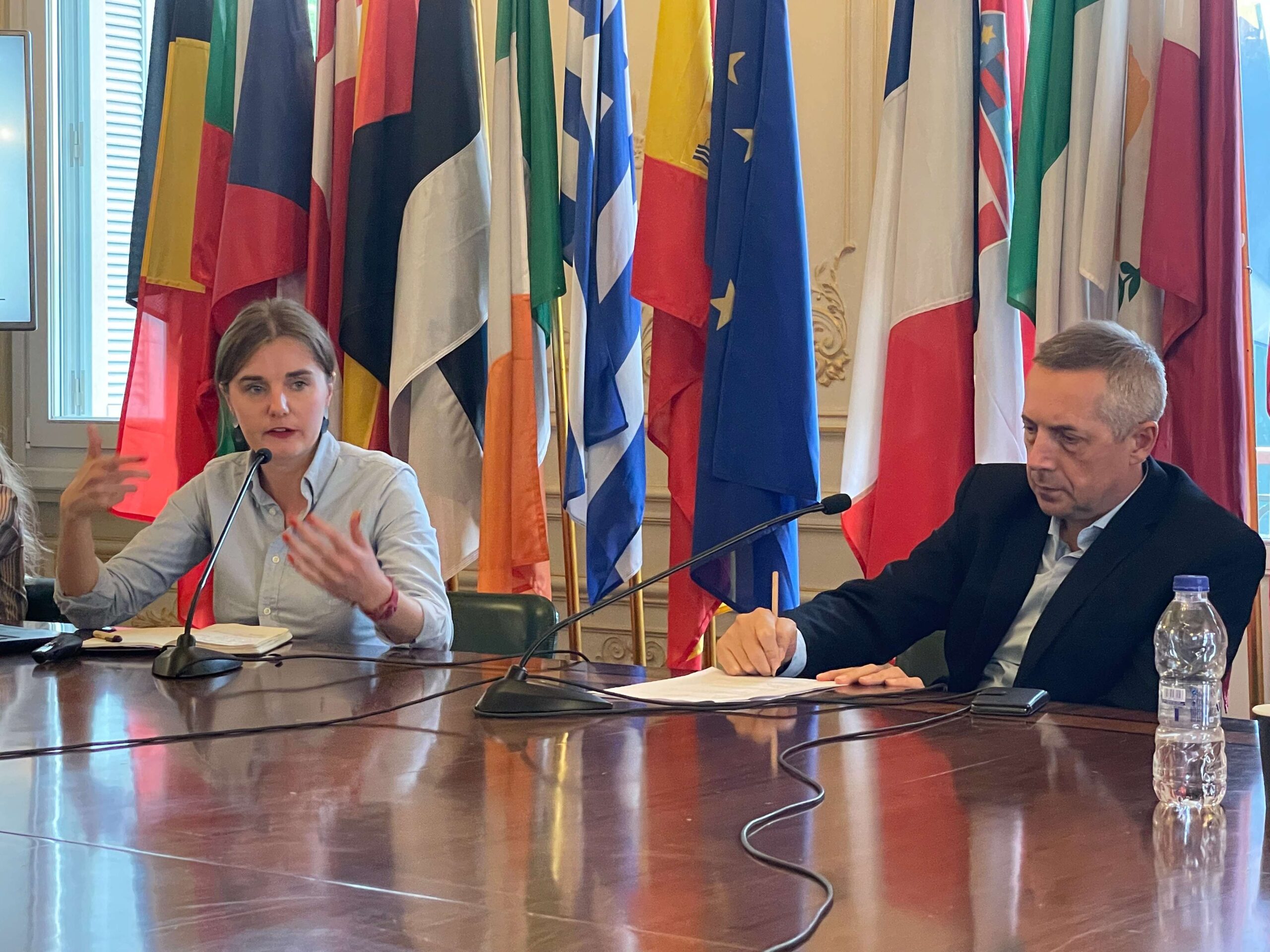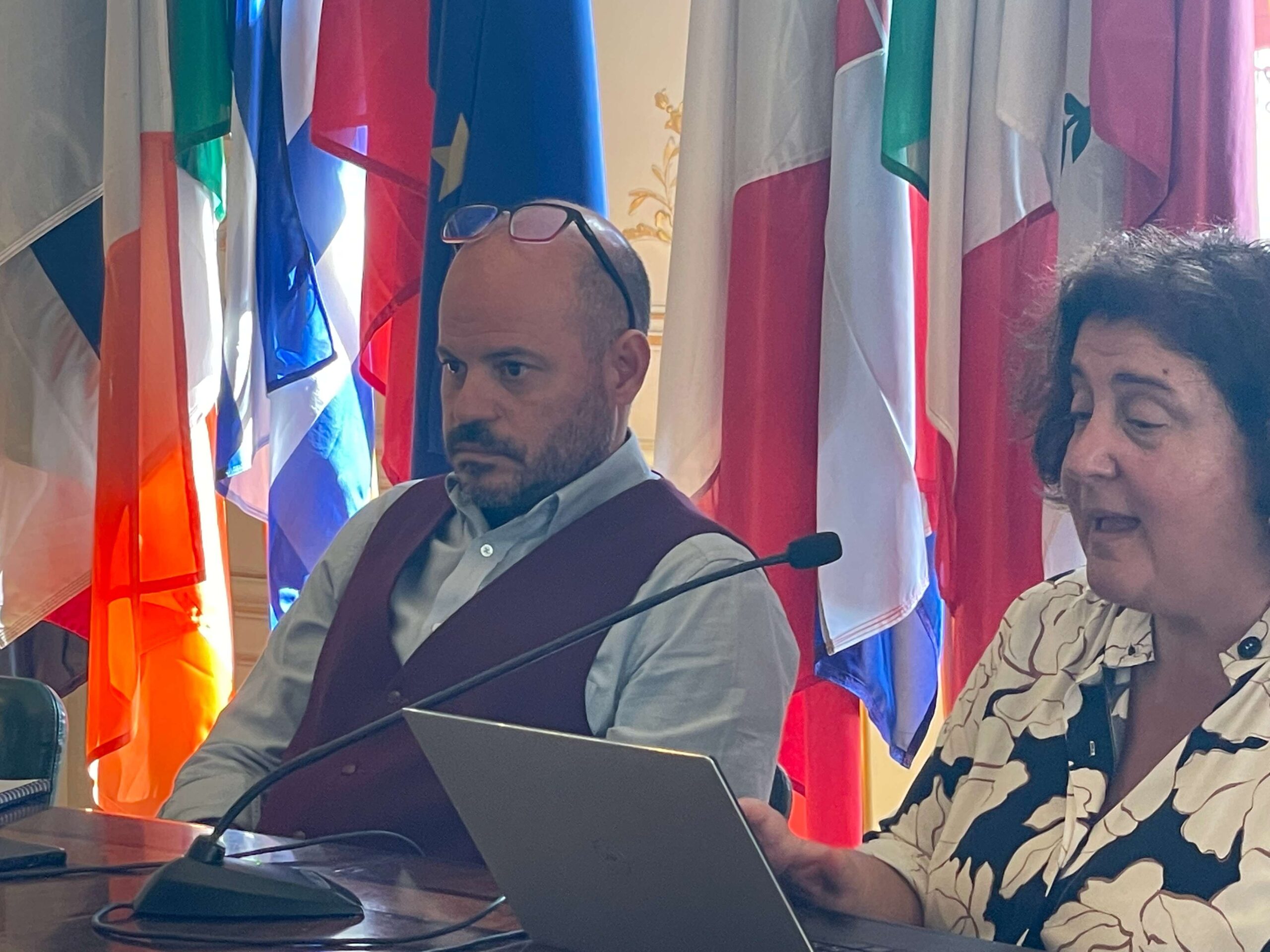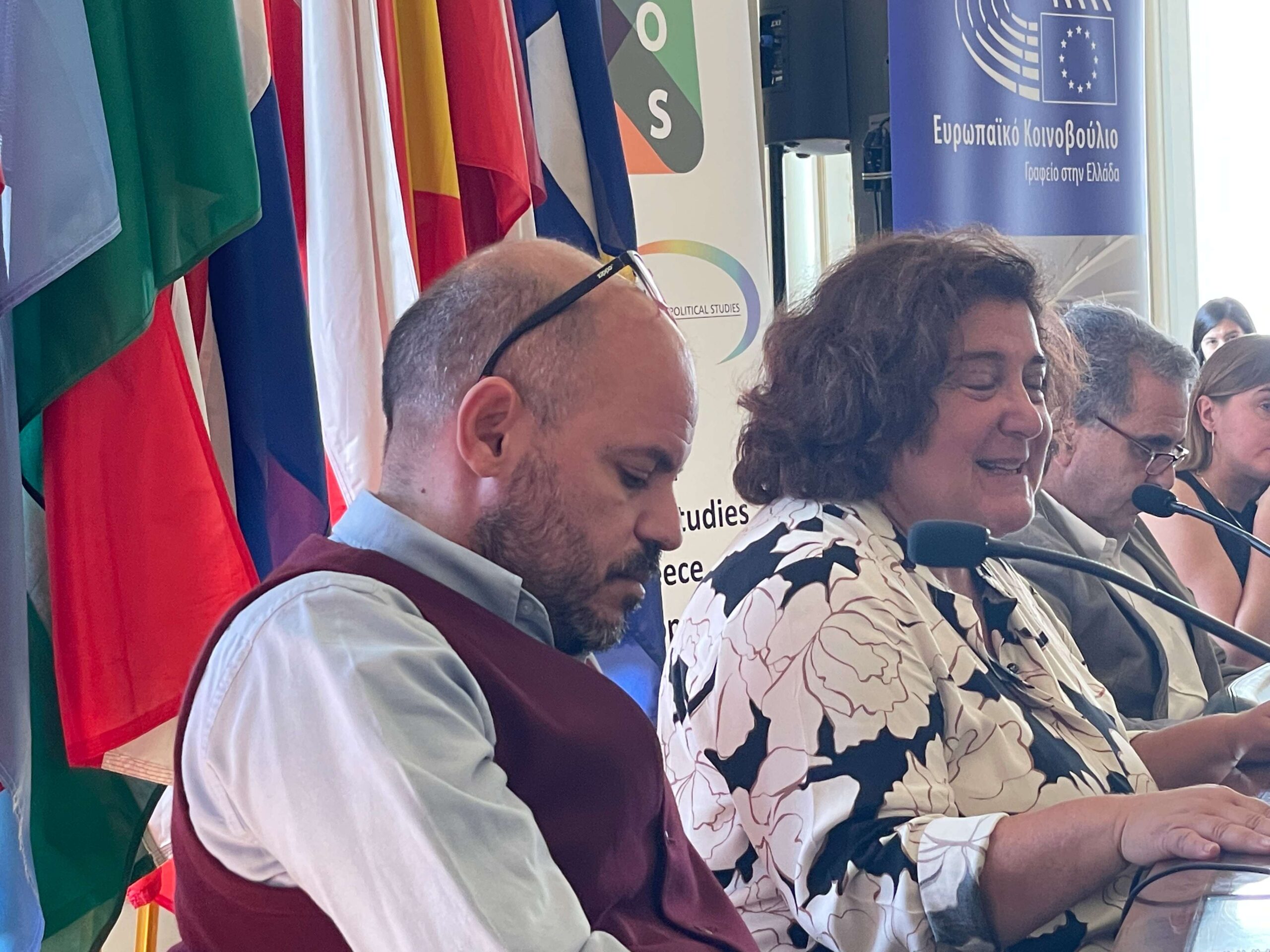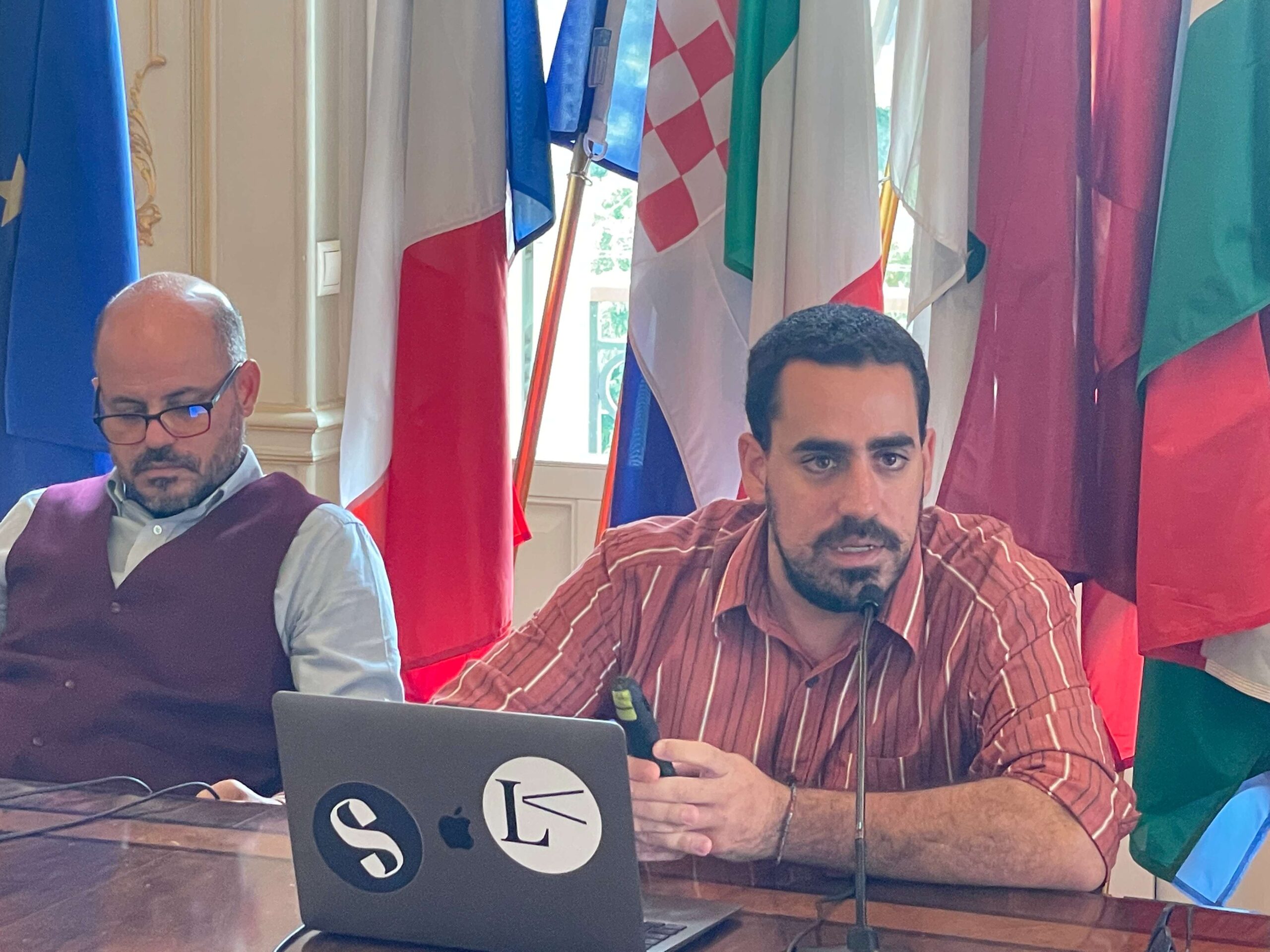Symbiosis-School of Political Studies in Greece, affiliated to the Council of Europe Network of Schools embarked on the “Information Disorder: Understanding propaganda techniques during a war infodemic” project from July to October 2022, in Thessaloniki and Athens. The aim has been to support participants in developing their understanding on the sources of misleading and/or false information and to activate critical thinking and media literacy skills in recognizing and responding to these phenomena, including by making their own stories. The project has been supported by the European Cultural Foundation

Information disorder during a war infodemic
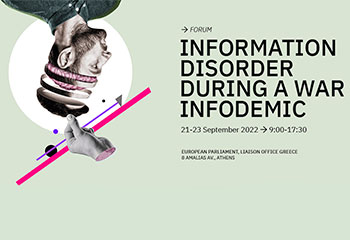
Thessaloniki workshop
On July 1-3, 2022, the Thessaloniki Workshop “Information Disorder: Understanding propaganda techniques during a war infodemic” involved presenters and facilitators from Greece, Ukraine, Cyprus/UK and Serbia focusing on the ongoing “war infodemic” and on countering multiple threats of disinformation, misinformation, propaganda filter bubbles and fake news promoted through media, following the invasion in Ukraine.
Stories of people experiencing the war, fleeing from harm, suffering trauma and displacement, all form part of how the war is perceived, as well as fought. Further, how political communication is designed and carried out, how political parties develop and defend positions, needs to be unpacked. As the world is witnessing the suffering of Ukraine, yet also many other parts of the world, with millions displaced and seeking safe refuge, news, language, and narratives are crucial to push for a culture of solidarity, freedom of information and expression and for creating safe and brave spaces, particularly for those displaced. The risk of being exposed to information disorder without actively recognizing how it might influence attitudes, knowledge, emotions and behaviours is dramatically increased and exacerbated during periods of crisis.
Ukrainian refugees, diaspora communities and locals, discussed how to critically consume media and information and to raise their own voices through alternative media. The workshop enhanced participants’ skills in recognizing disinformation and use of social media; discussed good practices for responsible reporting during an infodemic; and explored story-telling techniques and tools. Stories started been weaved.

Culture of Solidarity Fund – Ukraine special edition
Introduced by the European Cultural Foundation (ECF) in 2020, the Culture of Solidarity Fund was originally set up as a corona-response mechanism for pan-European cultural initiatives. Established as a public-philanthropic partnership fund, it supported nearly 100 cultural projects that contributed to maintaining and reinforcing European solidarity and the idea of Europe as a shared public space during the pandemic lockdowns.
Today, the war in Ukraine has put new relevance to our Culture of Solidarity mission and calls for funding urgent European and cultural action more than ever before.
With pooled resources from a group of European co-funders, the Culture of Solidarity Fund was relaunched as a pan-European effort right at the beginning of the war to respond to local cultural emergency needs. As a result of their long-standing programmes work in Ukraine and Eastern Europe, the team of the Culture of Solidarity Fund and its partners have relied on a widespread network of cultural initiatives in Ukraine to identify and answer such immediate emergencies.
The Culture of Solidarity Fund has financed more than 70 projects with more than 1 million Euros. Thanks to our many European partners and their contributions the Fund will continue to review the many proposals already received.
Thessaloniki photos
Athens forum
Then, from 21st to 23rd September the Athens Forum “Information disorder during a war infodemic” was hosted by the European Parliament, Liaison Office Greece. The Heinrich Böll Stiftung, Thessaloniki, the Council of Europe and InsideStory as a media sponsor, supported the event further.

Experts and journalists from Greece, Ukraine, Russia, Lithuania, Turkey and Italy, displaced persons, civil society advocates, humanitarian workers, media workers and students discuss on how, fueled by politics, economics and history, the global take on the war in Ukraine has varied from region to region, particularly given the role that (dis)information has played in influencing these views. Discussions focused on how misinformation plays part in and is part of the war, mechanisms of misinformation, unfolding political narratives, challenges in reporting from the field, debunking the phenomenon in the media, including social, and discussing ways forward, including news checking. How information is diffracted and multidimensional, mediased in unprecedented extent, serving strategic agendas and controlled yet at the same time spiraling out of control. How narratives on the war/s invariably are abundant and differ.
The right to freedom of expression and information constitutes one of the essential foundations of democratic society. In conflict situations and wars, the role of the media is critical in providing the public with accurate and timely information. Trustworthy news and images can contribute to the protection of civilians and conflict prevention, bring to the attention of the international community the horrors and reality of conflict and expose violations of human rights and international humanitarian law. As a consequence, the work of those informing and communicating in conflict zones is fraught with dangers: denial of access, censorship, harassment, arbitrary detention and attacks are alarmingly frequent. As others who decide to work in conflict areas, journalists take consciously a special risk by working in contentious areas and on contentious topics. Their choices in reporting, their capacity in selecting their stories and in checking facts, all impact upon the unfolding events.
Three Reports from the Forum
Can ethics, standards and liberties fight disinformation?
Read reportHow narratives, mechanisms and media are fueling Information Disorder
Read reportThe battle against Information Disorder is fought on the ground
Read reportConflict situations, including authoritarianism, are also often a fertile soil for mass disinformation campaigns intended to undermine the proper understanding of the developments, as well more generally, peaceful security and democratic processes. Developing tools to protect democracy more effectively from “information weapons”, while preserving freedom of expression and freedom of the media both in the countries involved in the conflict and more widely, seems to be a priority for a range of actors, from multilateral international organizations to think tanks and the media themselves in a largely unregulated universe.
During the project, participants engaged in exploring different views and in presenting voices unheard. Interviewing displaced persons, uncovering difficult dilemmas, investigating causes and long held beliefs, as well as providing space to experts to revisit statements and ideas, challenging the blacks and whites, has been the backbone of the initiative, a backbone hopefully strong enough to hold us standing during stormy winters.
Athens photos
Information disorder during a war infodemic
From 21st to 23rd September the Athens Forum “Information disorder during a war infodemic” was hosted by the European Parliament, Liaison Office Greece. The Heinrich Böll Stiftung, Thessaloniki, the Council of Europe and InsideStory as a media sponsor, supported the event further.
Experts and journalists from Greece, Ukraine, Russia, Lithuania, Turkey and Italy, displaced persons, civil society advocates, humanitarian workers, media workers and students discuss on how, fueled by politics, economics and history, the global take on the war in Ukraine has varied from region to region, particularly given the role that (dis)information has played in influencing these views.

Experts and journalists from Greece, Ukraine, Russia, Lithuania, Turkey and Italy, displaced persons, civil society advocates, humanitarian workers, media workers and students discuss on how, fueled by politics, economics and history, the global take on the war in Ukraine has varied from region to region, particularly given the role that (dis)information has played in influencing these views. Discussions focused on how misinformation plays part in and is part of the war, mechanisms of misinformation, unfolding political narratives, challenges in reporting from the field, debunking the phenomenon in the media, including social, and discussing ways forward, including news checking. How information is diffracted and multidimensional, mediased in unprecedented extent, serving strategic agendas and controlled yet at the same time spiraling out of control. How narratives on the war/s invariably are abundant and differ.


Learning
Experts’ Interviews
Workshop Materials
Stories
Video stories
Sasha Novikova, Athens

Ukrainian community in Greece showed unbelievable and hopeful strength
Flavius, LOGS Timisoara

How we support Ukrainian refugees in Timisoara
Vladimir, from Lviv and Kyiv

Being Russian, I never had problems in Western Ukraine
Sofia from Moscow

The words «Never again» should belong to all wars
Ruslan from Russia

Russians do not support this war, we are against it!
Olena Yurkina from Kyiv

Almost every morning our children ask us “when will we go home?”
Leonid, deacon from Moscow

For serving in church it is important not to lie
Heorhiy Chizhov from Kyiv

We still hope for a quick victory and a return home
Halyna Shvets from Mariupol

When I name the city where I came from, people usually say «we are so sorry»
Artem from Tver

I stopped being ashamed of my citizenship only after volunteering at the Polish-Ukrainian border
Aniselle from Kyiv

I’m even afraid to imagine with what kind of trauma our children are left
Aleksey from Russia

I didn’t intend to leave Moscow
Hanna Oliynych, Athens

I’m thinking, what is it all for?!
Written stories
Anna, Kharkiv, Ukraine
Russians began to bomb Kharkiv literally from the first day, and by March 1 it became clear that it was impossible to stay there anymore. All my friends who could move and had cars left the city. Some of them left even without documents. I left because everything went out and it became impossible to stay at home. It was a winter, minus 10 degrees, but there was no electricity, no water, and a heating was very weak. Food stopped being delivered to the my part of the city due to the shellings, the looting was crazy, the market and shops were destroyed.
I didn’t expect there would be a war. At 5 am when Russians started shooting I thought it was fireworks. I didn’t understand why everyone started to phone me at 7 am. My brain couldn’t accept how this war was possible.
The evacuation from Kharkiv was like in 1941. People could not get onto the train for 2-3 days. There were laws of survival, not goodwill. Everyone was for himself, everyone was pushed away.
I left the city by car because my company took me out. We got to the Lviv region for almost 4 days, and it was very pleasant.
On March 3, when we left, there was still no clear understanding of the mechanisms for helping refugees. It seemed that we were not expected in other countries, so we thought to stay in Uzhgorod or Lviv, but the overcrowding there was already crazy. It was impossible to rent anything, only to stay in the centers for migrants. Our friends went to Montenegro, and we went with them.
Several things struck me this month. First: how everyone was helpful in Uzhgorod, how well they have organized a volunteer reception there and softened the inner feeling of trouble. Second: how we were met in Pristanište, it’s just some kind of fairy tale. When we came to get acquainted, I realized that live here together with many Russians who also fled from their country. It surprised me. We, Ukrainians, were saving ourselves, our animal instinct just turned on to run somewhere where they don’t shoot. But the Russians turned out to have such a level of self-awareness that they could leave their homes and understand the situation in advance. The Russians here said that they were uncomfortable in front of the Ukrainians, but it seems to me that they accomplished a greater feat by leaving. I wouldn’t be able to do that. When they started shooting, I figured out that it was scary, and in their place I would unconsciously cling to what I have.
February 24 showed that Kharkiv is no longer as pro-Russian as it used to be. It was on February 24 that we felt ourselves Ukrainians, plus by 2022 those children who do not know what the Soviet Union was have grown up. My daughter tells me that if Russia is in Kharkiv, she will not return. I knew pro-Russian people in Kharkiv, for example, a girl from Luhansk who married my cousin. But she was pro-Russian until the bombs flew, and now her opinion has changed. When the destruction began, those who hesitated in Kharkiv became pro-Ukrainian, because it is impossible to be on the side of the aggressor.
But the fact that Russian soldiers were not greeted with flowers was not due to the opinion of the population, but to those people who organized a rebuff. Otherwise it would be like in Kherson.
When I come across an extreme opinion about Russia or about Ukraine, it is equally bad for me, because humanity is lost in this. I understand that these atrocities force the Ukrainians to be aggressive in response. Thank God, I didn’t lose anyone, so it’s easier for me, but I need to try to refrain from aggression in the dialogue. I’m scared for the psyche of people, I understand that the consequences of the war will be felt for a very long time, I can’t imagine when people will be able to start communicating.
I separate the Russians from their government because I proceed from human qualities. No opinion is worth spilling blood. A Russian who advocates that there should be no war is as close to me as a Ukrainian.
Irina, Kharkiv, Ukraine
We stayed at our apartment till the last. We did not want to leave. We lived in the district of Saltovka which was heavily bombed, and on March 3 our house was hit. At first we went to hide to the basement, but it was terribly uncomfortable there, because it was not adapted as a bomb shelter. So later we sat in the apartment in the corridor – we were told that it was safer.
When the shelling started that day, we were in the kitchen preparing food. As always, when it started, we ran into the corridor, and this time we also ran there.
But this time the first floor of our house was hit (we live on the second). Everything flew terribly: glass, debris, sparks. We were not hurt, the cat was then dragged out from under the bath.
At that time there was still heating, but then both it and the light were turned off. It was -20°C in Kharkiv, that is, it would be unrealistic to live there, we would freeze. A few minutes after the rocket hit we grabbed the first things that came across, not even bags but “alarming” backpacks with documents, and left. On the street, we accidentally met volunteers who had just arrived at our house and asked them to take us somewhere, at least a little further from this area. They took us.
While we were leaving, the artillery reloading ended, and we were again covered in the car. It’s hard when a child screams… when the windows in the car fly, the car shakes, people nearby lie dead or injured. We, another woman, and a wounded man, whose arm was torn off, climbed into the volunteers’ car. Whom they could capture, they took – and went. They couldn’t help everyone…
We returned home three days later for things, because we didn’t take anything at all right away. Everything got worse there. Wires, poles, trees – everything is lying around, the houses are burned. At that time, the bombing continued, and it was very scary to go for things. We somehow grabbed some sneakers, pants, sweaters, and left. There are people who suffered terribly, whose relatives died, but we still got off lightly, we remained alive.
We didn’t think it was possible at all. Kharkiv is a peaceful city, there are civilians here. They didn’t think that cities could be bombed like this in the 21st century. Especially Kharkiv! It didn’t fit in my head. A lot of Kharkiv residents have relatives in Russia or friends, we are very intertwined.
I don’t understand at all what kind of Nazis are Russians talking about! For us the Nazis now came from Russia, they are worse than Hitler. Why are we Nazis? Because we have the Ukrainian language? And what should be the language in Ukraine? Actually it is a kind of idiotic. And now the “liberators” have “liberated” me from my home and peaceful life.
Our parents stayed on the other side of the city. They don’t want to leave. Of course, I want to pick them up. I am in touch all the time with my relatives, with my work colleagues who stayed there – who have elderly parents, who do not want to leave their husbands. In our house, dad says, people still live, many of them live in schools, in the subway, and they come home occasionally. But people in Kharkiv remain.
My husband is disabled, he has a spinal injury, he is on commission, so we were able to leave with him, otherwise I would not have gone anywhere. He works remotely, otherwise I don’t know where we would go. Nobody really needs us, and all this help is temporary.
We did not immediately leave Kharkiv – at first we lived with the volunteers who took us away. They said that they would not throw us out on the road, and took us to their home, where a large family had already gathered. There were parents from all sides, and sisters, and children, all in a row. We, as a group of 20 people, lived in a big house. When the planes came in, we slept, ate, and played Monopoly in the basement. There were also six cats, one chinchilla and someone had snails. Then a big Labrador arrived and sat in the garage.
We lived in such a friendly company for four days, and on March 8 we left by train through Kyiv to Lviv. I was very afraid and prayed that nothing would happen, because when my husband’s sister took away this child, there was some kind of hit at the railway station in Kyiv. There were 10 people in the compartment, we sat all night, but when one person got out in Poltava, it became expanse: we lay like a jack on the top shelf, periodically changed.
We came to Montenegro to visit friends. We traveled through Lviv, and while the documents were being processed for my husband, we lived with my sister in the Lviv region. There was a lot of refugees there, they lived in schools and kindergartens. Then we went to Slovakia and found out about Pristaniste via Facebook.
Olha, Kharkiv, Ukraine
I met the war in Kharkiv. At 5 am many friends started to phone me and tell that they were shooting not far from our house. I opened Telegram and for a long time could not believe that Russia had invaded Ukraine. A couple of days before such a thought seemed to me complete nonsense, something unimaginable. But Putin decided to do something which was scary even to think about. I heard and saw the war right from the window of my rented apartment.
No. This was not a “special military operation”. This was a full-fledged war against Ukraine and the people who live there. There is a lot of wounded and killed people every day. Lots of ruined destinies.
I did not dream and did not want to see the war. I did not want to participate in it. I did not want to watch her from the front rows and did not set myself the goal of becoming a war correspondent. Therefore on February 26, to the sound of hail, I left Kharkiv by train. The next day I was in Chisinau.
Since that time, I have met an incredible number of kind people who sincerely want to help. In Ukraine, Moldova, Romania, Serbia, Montenegro. When we were walking to the border in Mohyliv Podilskyi, the locals dissuaded us from leaving, inviting us to their place. In Moldova, as soon as we crossed the border, we were treated to borscht by gypsies. And caring people met me constantly, throughout our journey. This is something that is really very pleasing.
In Montenegro, I was sheltered by the Pristanište Foundation – within the framework of it, assistance is provided to refugees from Ukraine and anti-war migrants from Russia. And by the way, I want to talk separately about Russians. I think that Putin kills not only the inhabitants of Ukraine. Russia and Russians are being driven into the Middle Ages, finishing off the economy and freedom of speech. It is forbidden to speak and write about peace, it is forbidden to name war “a war”. I know that there are adequate Russians who try to go to rallies and pickets, who are immediately detained and tried for their civic position against the war. But unfortunately I know a sufficient number of people who believe that everything that happens is correct and natural. It’s also painful to watch.
Now I live in Montenegro. But I can’t find my place here. Neither the sea nor the sun pleases me. But I already manage to work – at first it was almost impossible, emotionally difficult.
They took away the life I loved. I hope all these bastards will answer for everything. F*ck the war!
Viktor, Kramatorsk, Ukraine
When the bomb fell, all my windows flew out, and it became scary. Only fools are afraid of nothing, so I had to leave. I am 64 years old, I installed anti-theft systems on cars and at my gome I left goods for 6-7 thousand USD. I fled without anything, the volunteers helped me a lot. I was driving here with other family from Kramatorsk as a car driver because they asked me to help. They promised me mountains of gold, accommodation and food, but when they arrived here, they said: “F*ck you, we don’t need you anymore.” I knew them from a more or less good side, but in response to this, I blocked them on the phone, and that’s it.
In Pristanište people gave me accommodation for two weeks, then they took me to the Bar, where they found free accommodation in some businessman’s house. It’s good that my pension still comes to my credit card, so at least I can buy some food. I will look for some job in Montenegro, but in general I will look at the situation. No one knows and no one can say what it will be like in Ukraine and what it will be like in Russia in the nearest future.
If the situation in Ukraine changes, then I will go back. In the meantime, I’ll try to find a job here, because no one looks at you if you don’t have a penny. It is a resort country, and during the season, even in the mountains, you can only rent something normal only for 300 euros. In general, people come here only with money, but the climate suits me here.
But many people are worse off. My son first stayed at home, but later he and his young wife had to move to Western Ukraine, because Kramatorsk now is like Stalingrad. We already know that the Russian army is not shy about anything, and this war has no rules.
I understand that in 2014 we had 50% to 50%, maybe even 60% to 40% in favor of Russia, but now there are only a few of them. Everyone who was for Russia fled, and now they are in Crimea or in DNR/LNR.
Now in the city there are only those who cannot leave, who has sick relatives in care. And maybe those who don’t understand that they stayed for death. Because you see what happened in Bucha and Irpen, what atrocities. Even animals don’t do that… As far as I understand, it won’t end quickly, there will be toffee. There are no negotiations anymore, therefore the situation will be solved only by force – either here or there. Or some miracle will happen.


